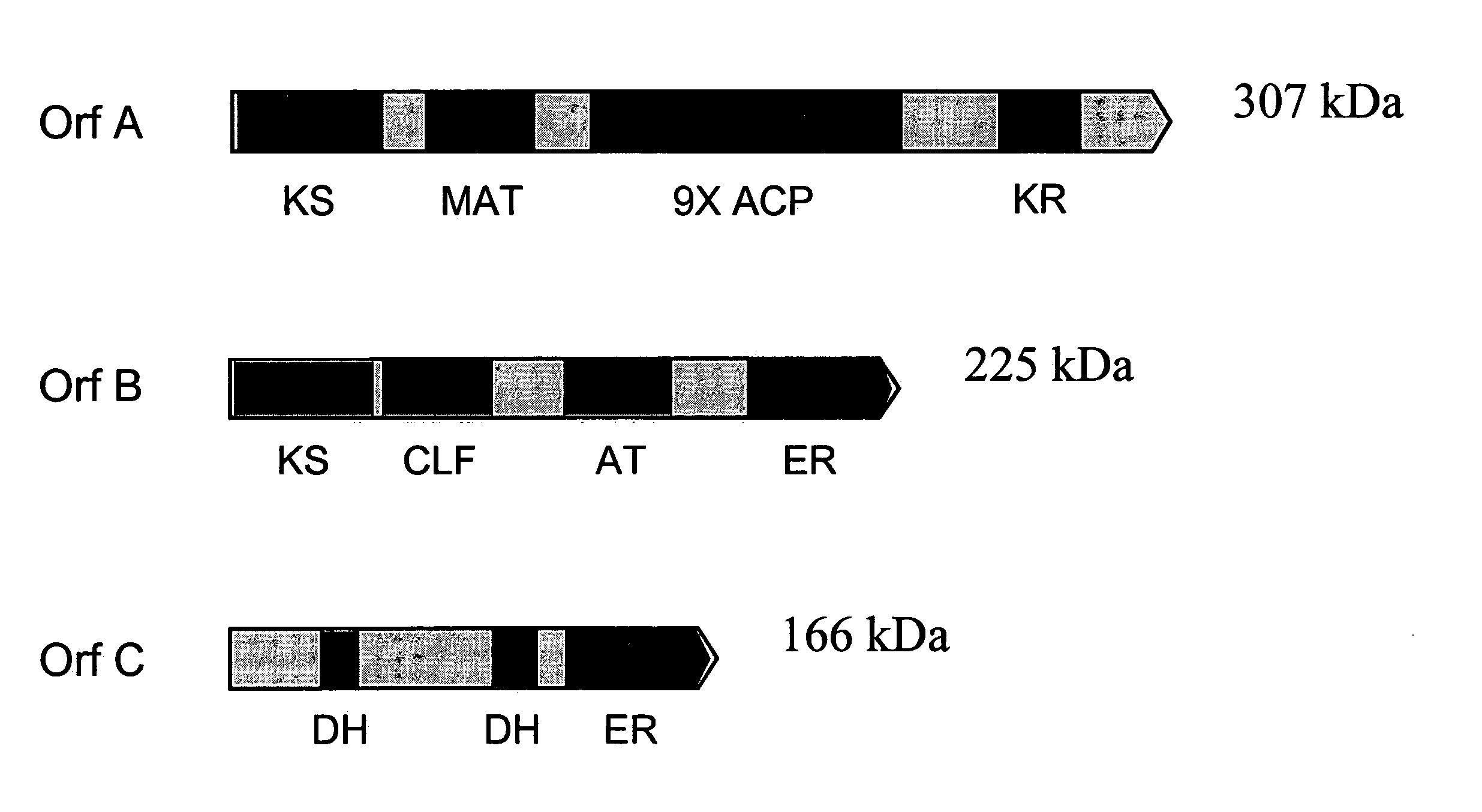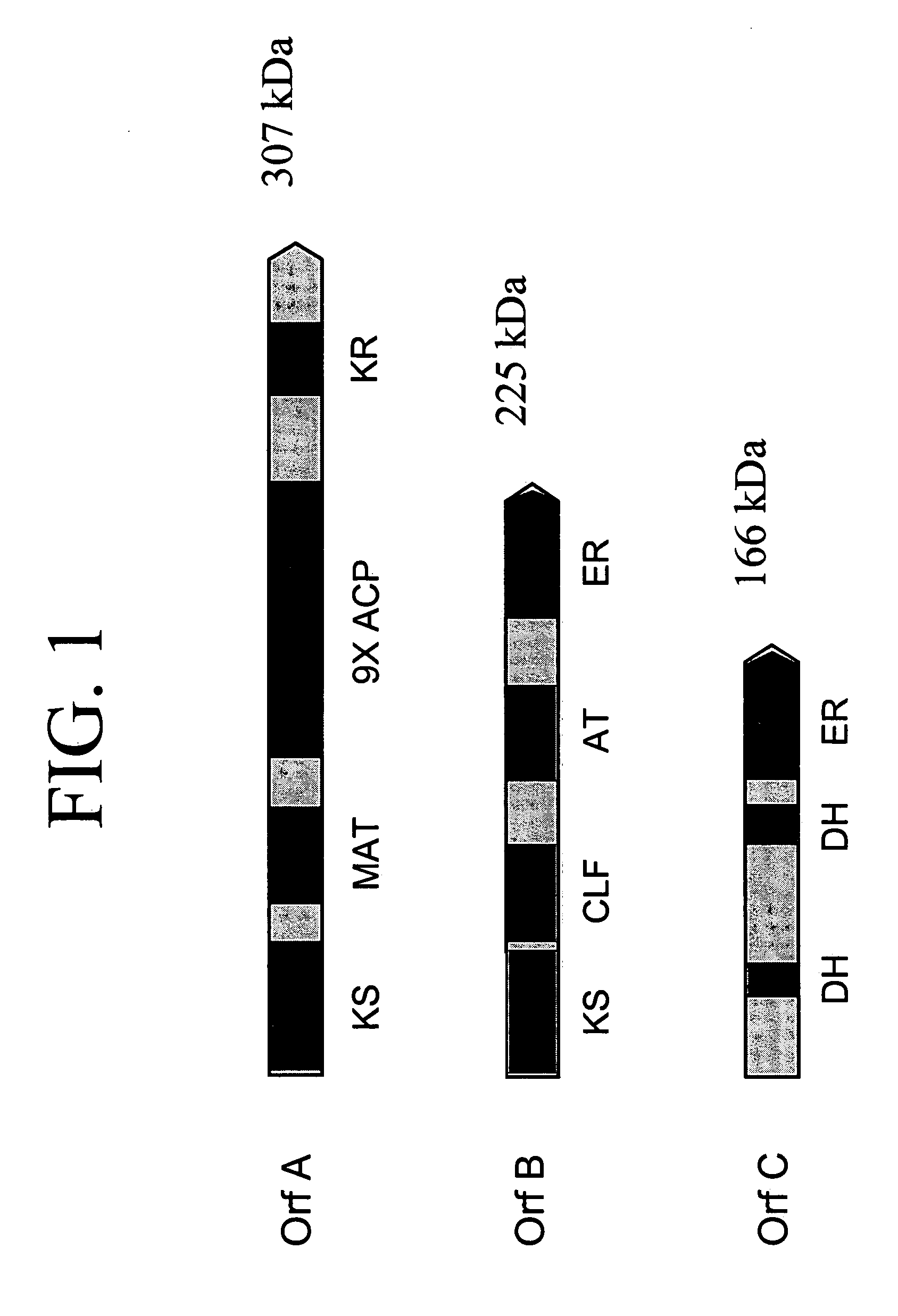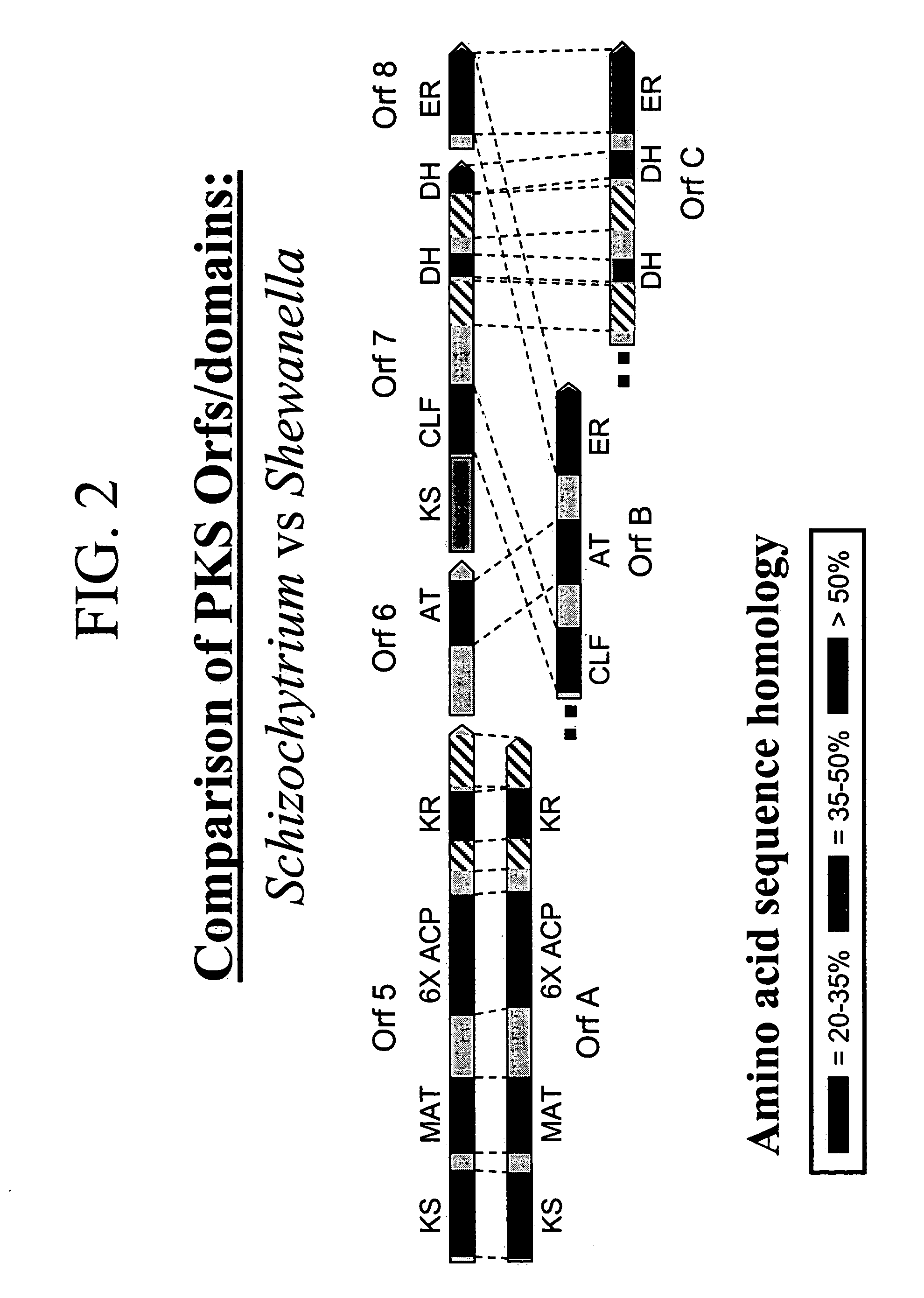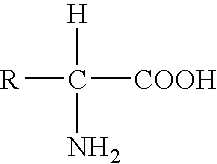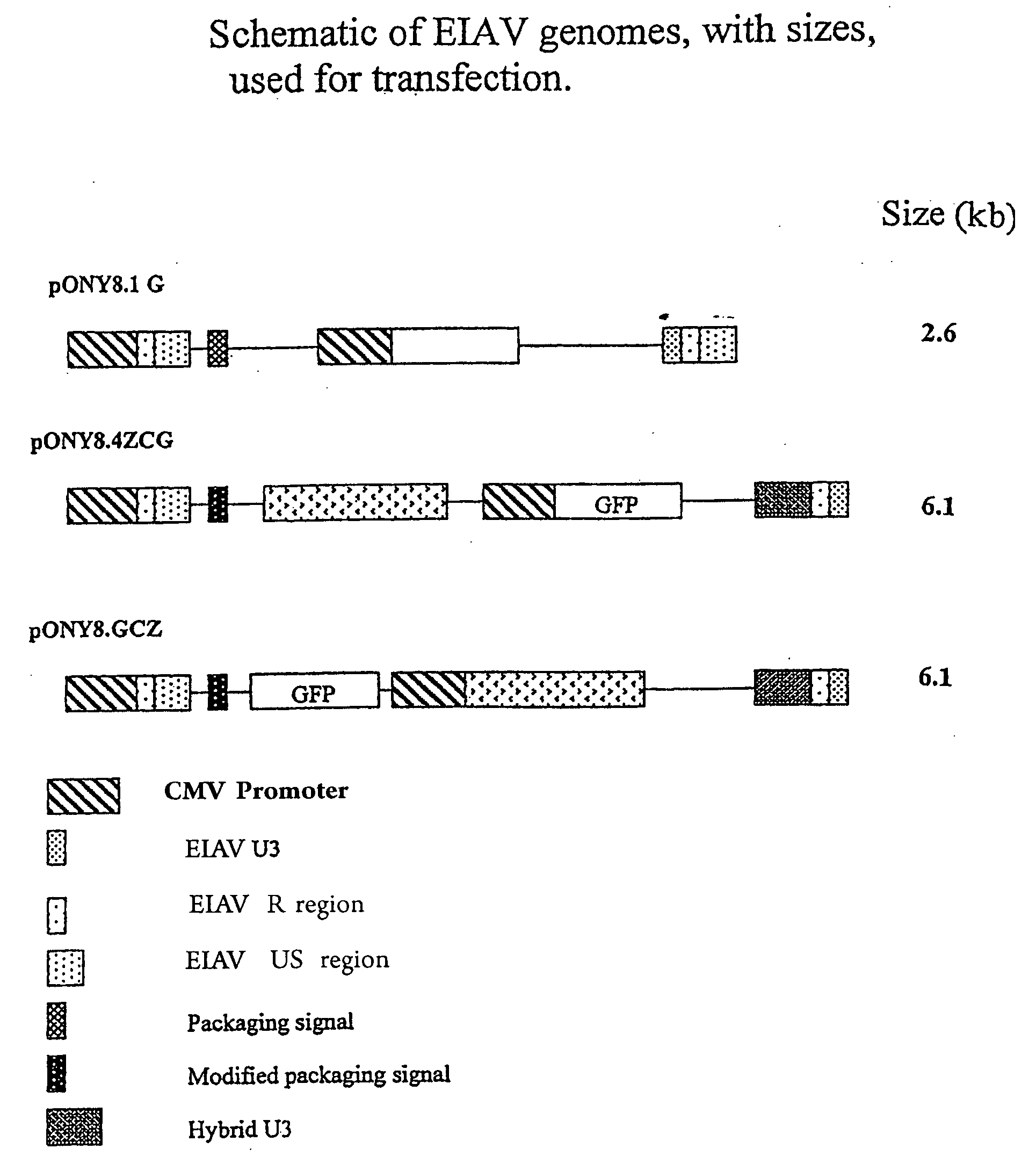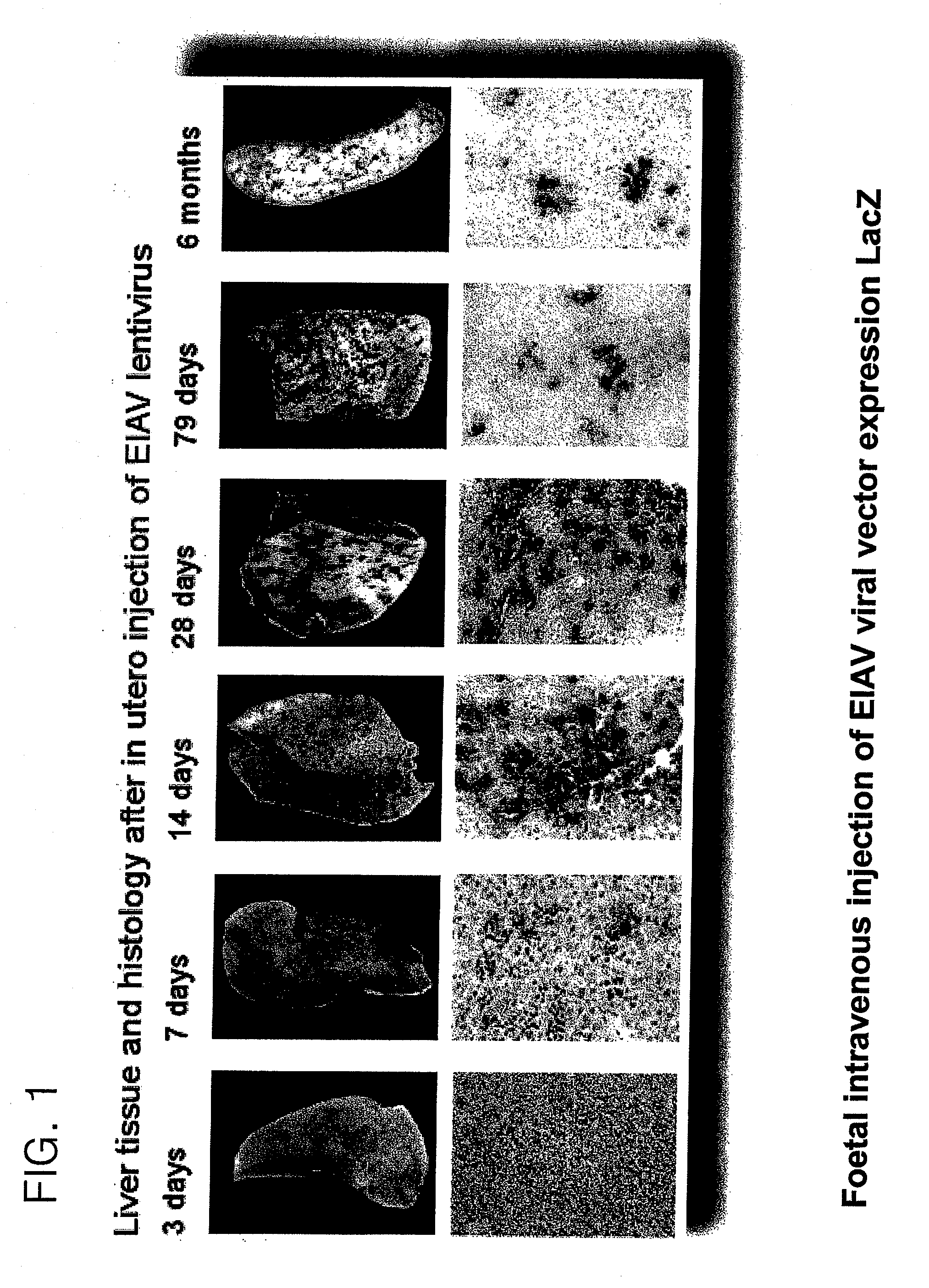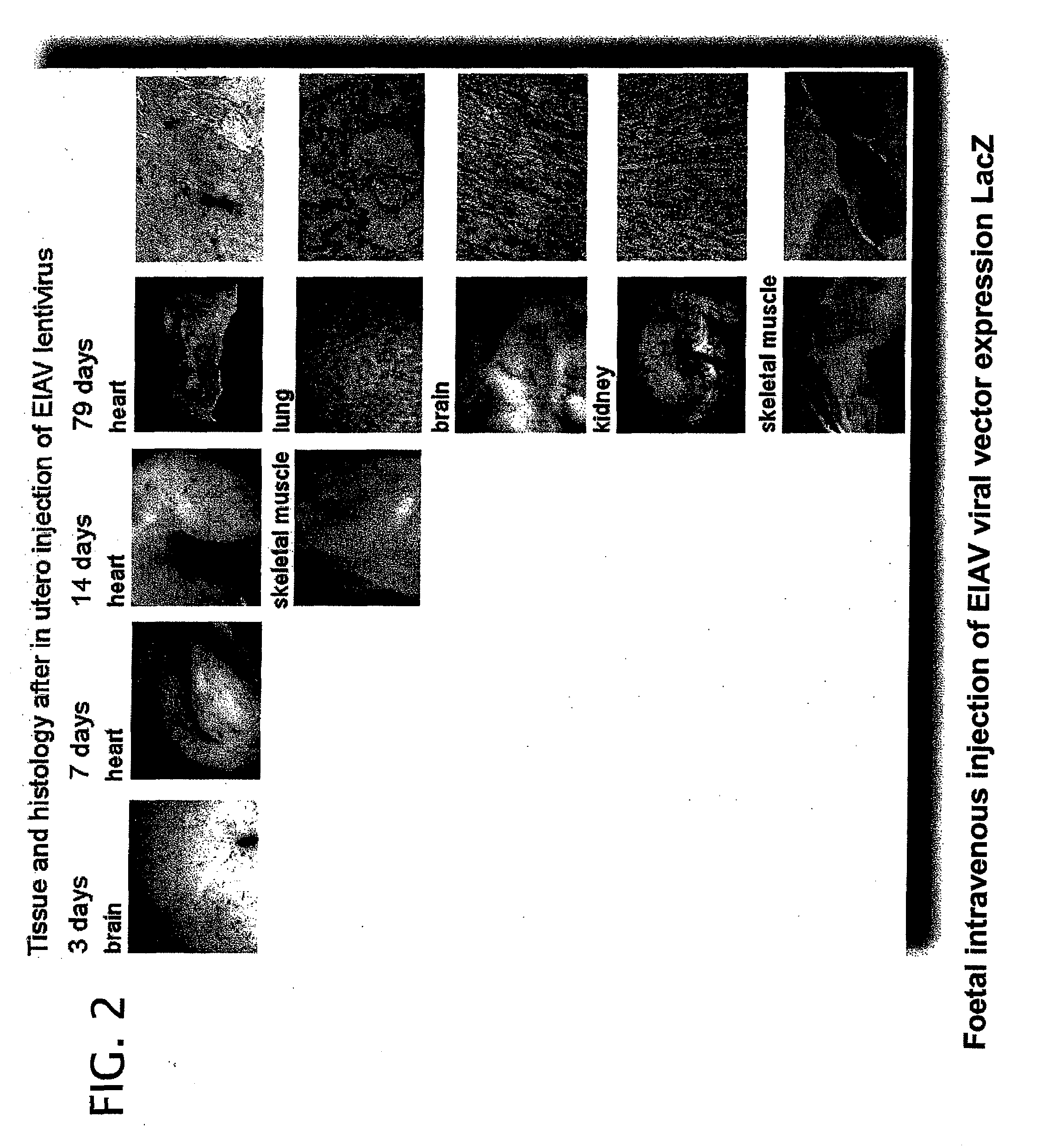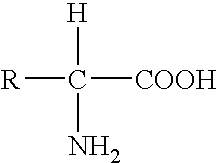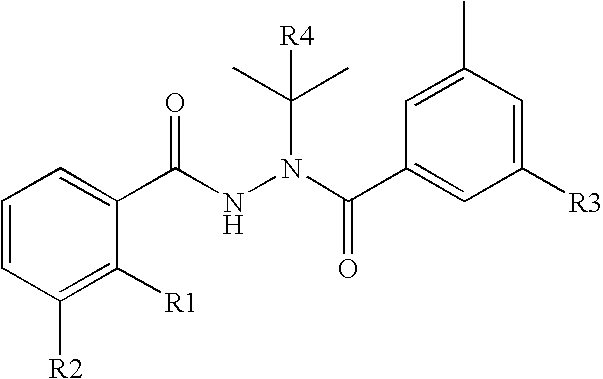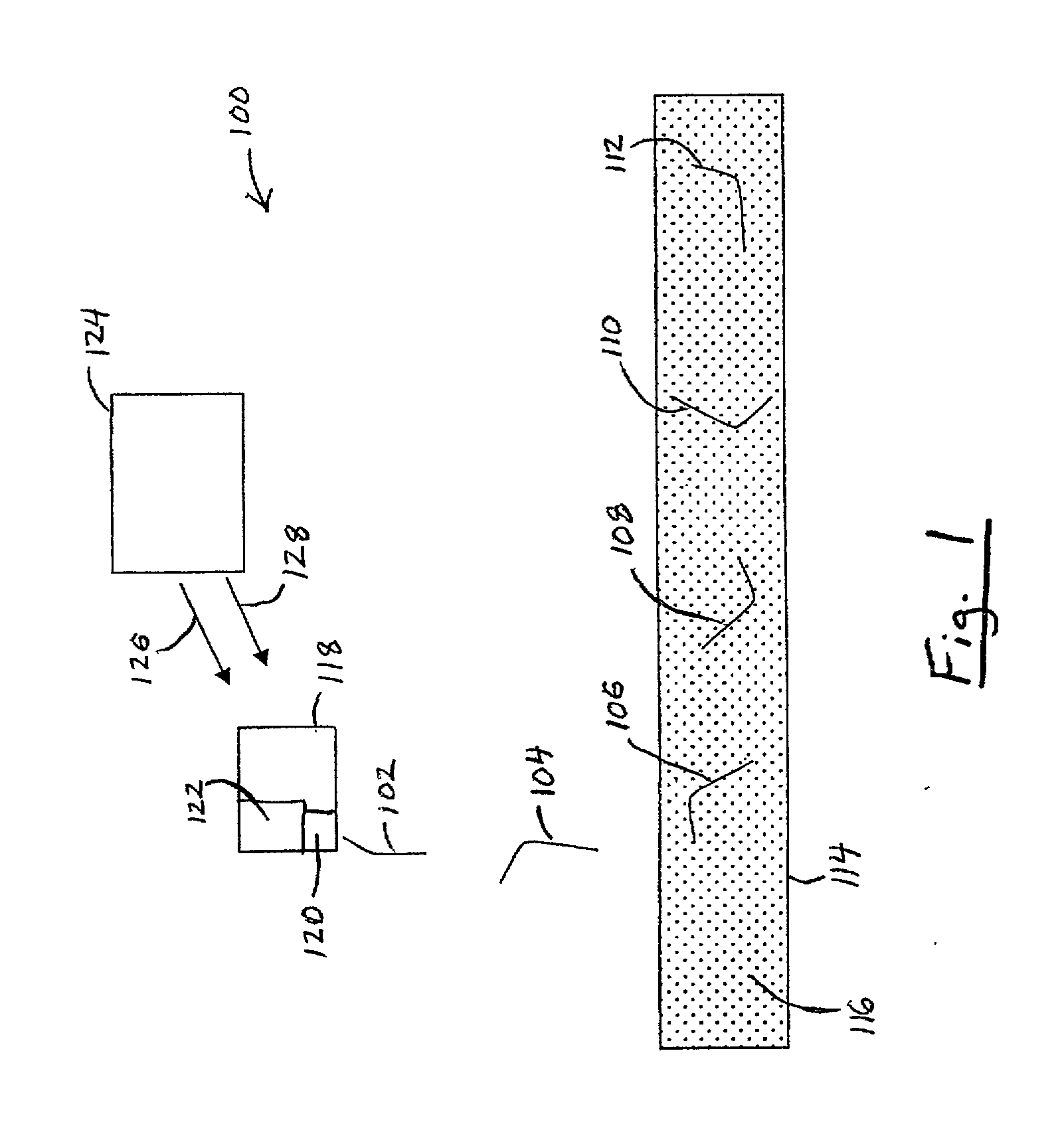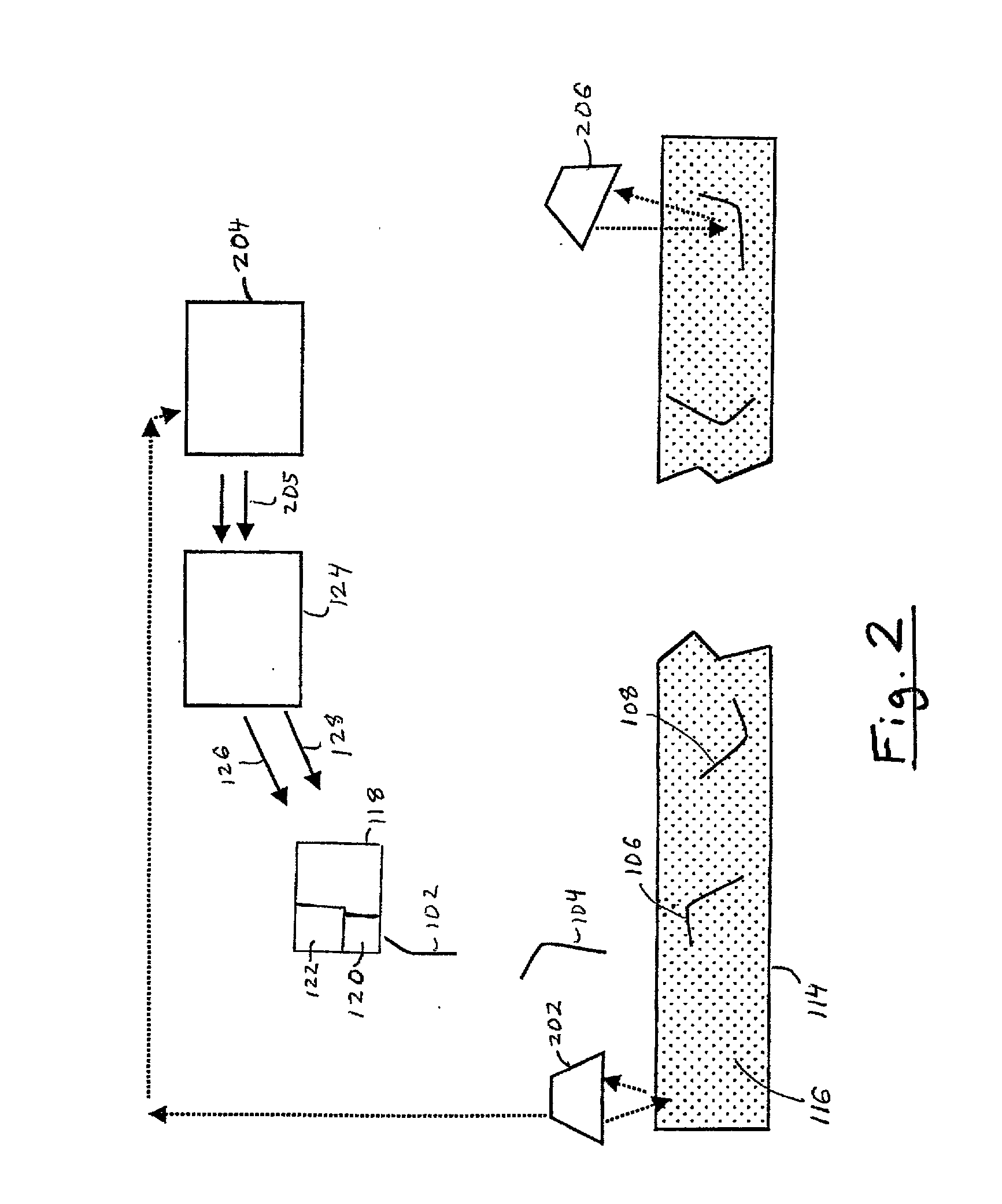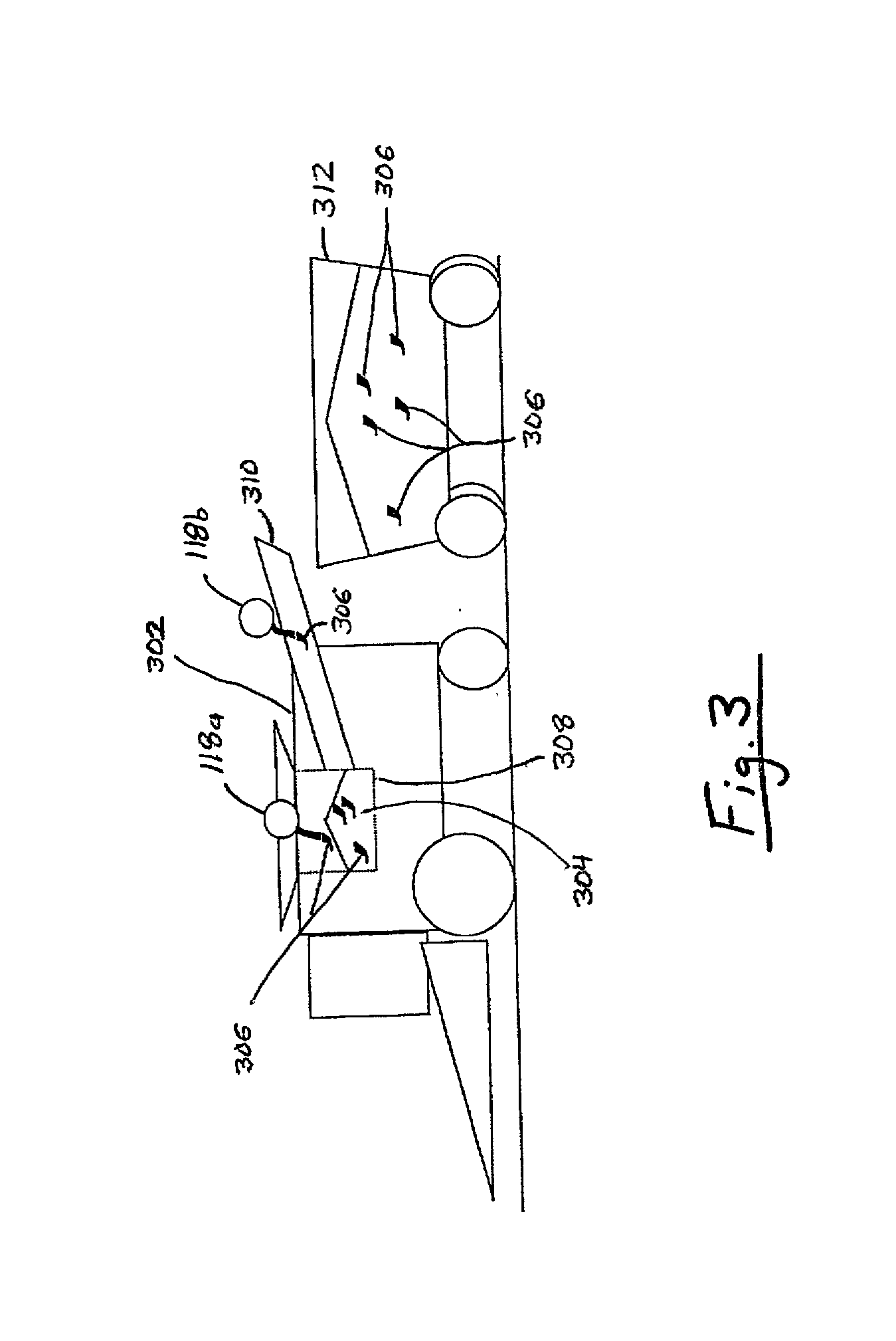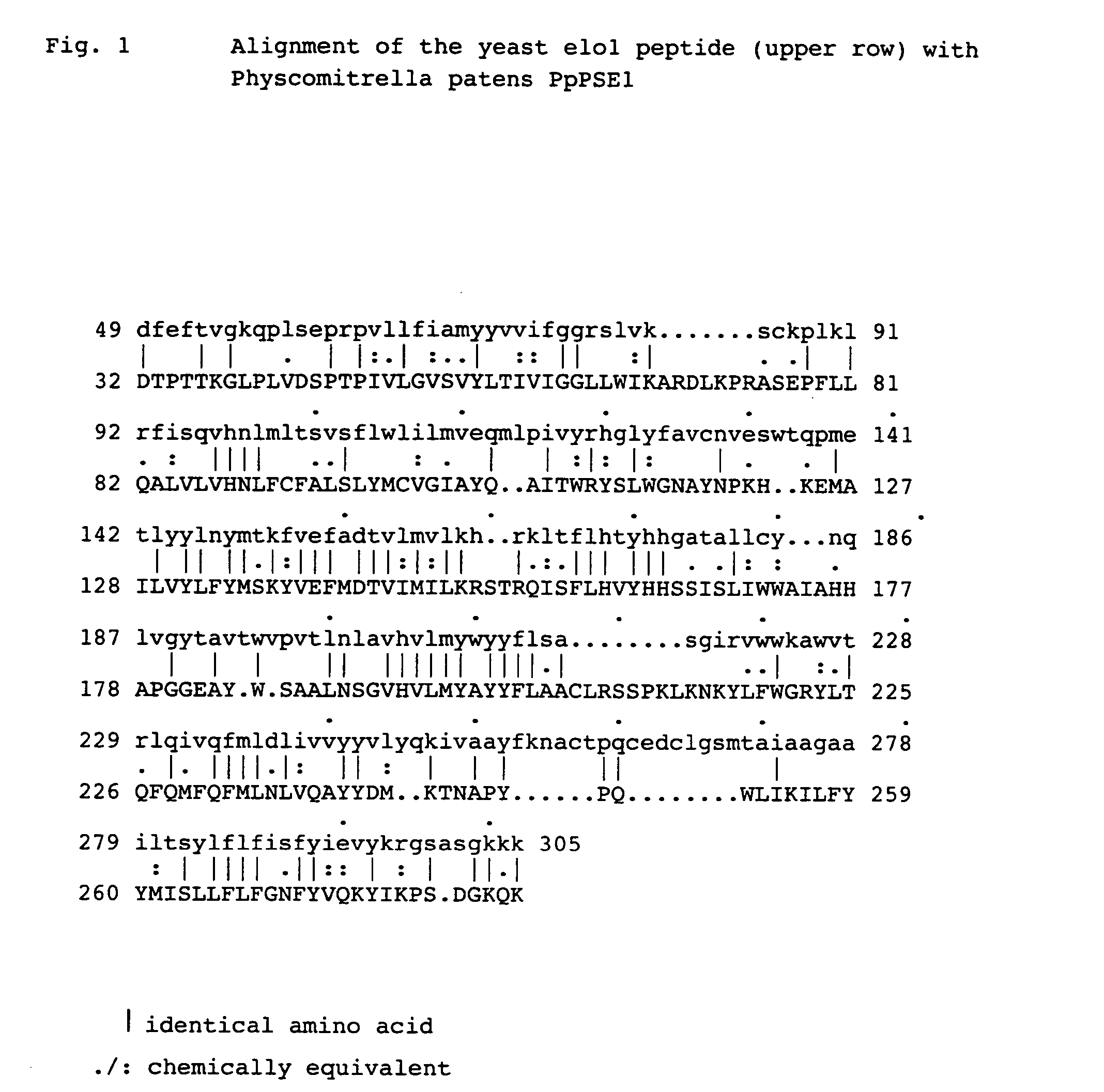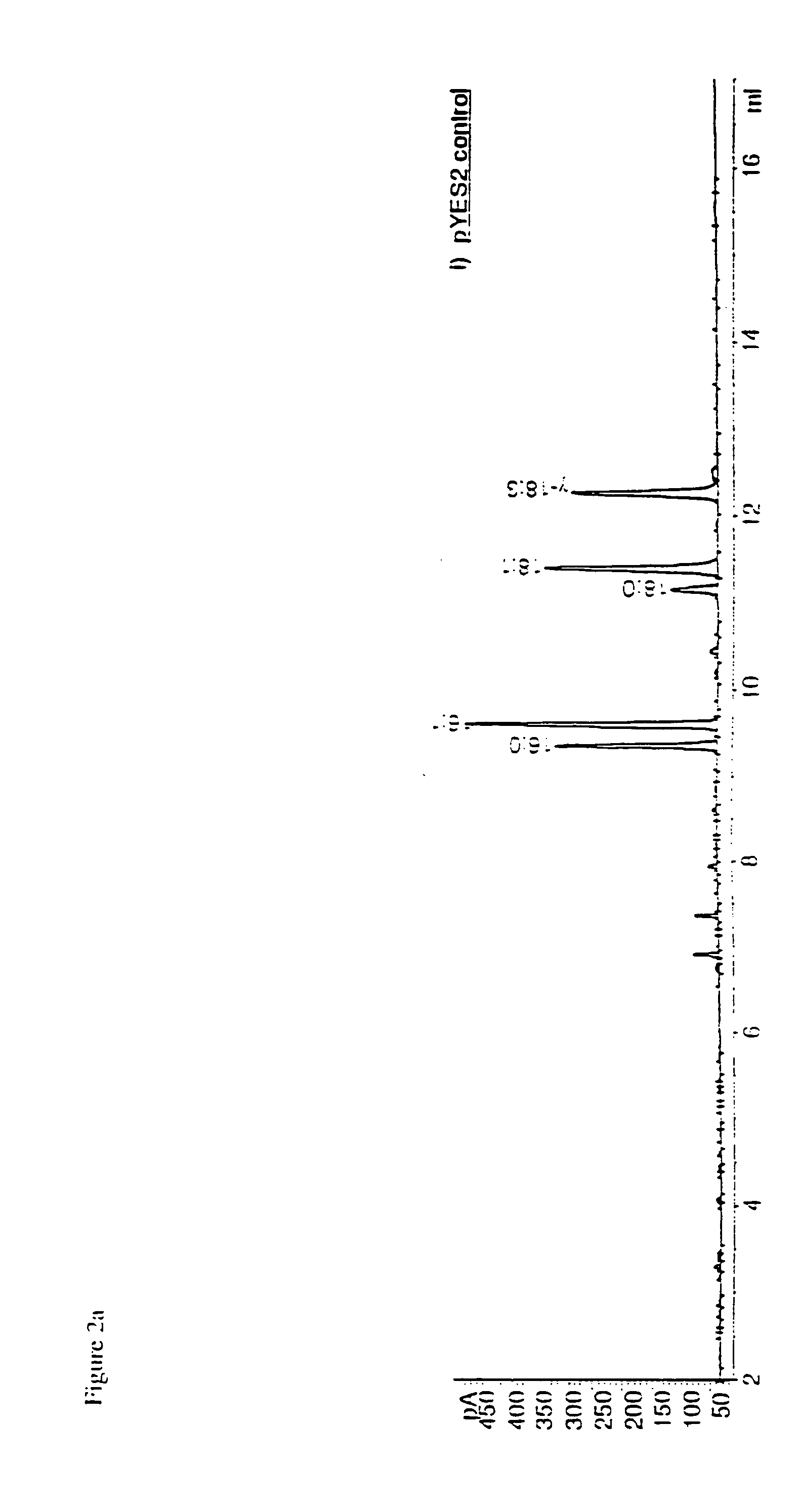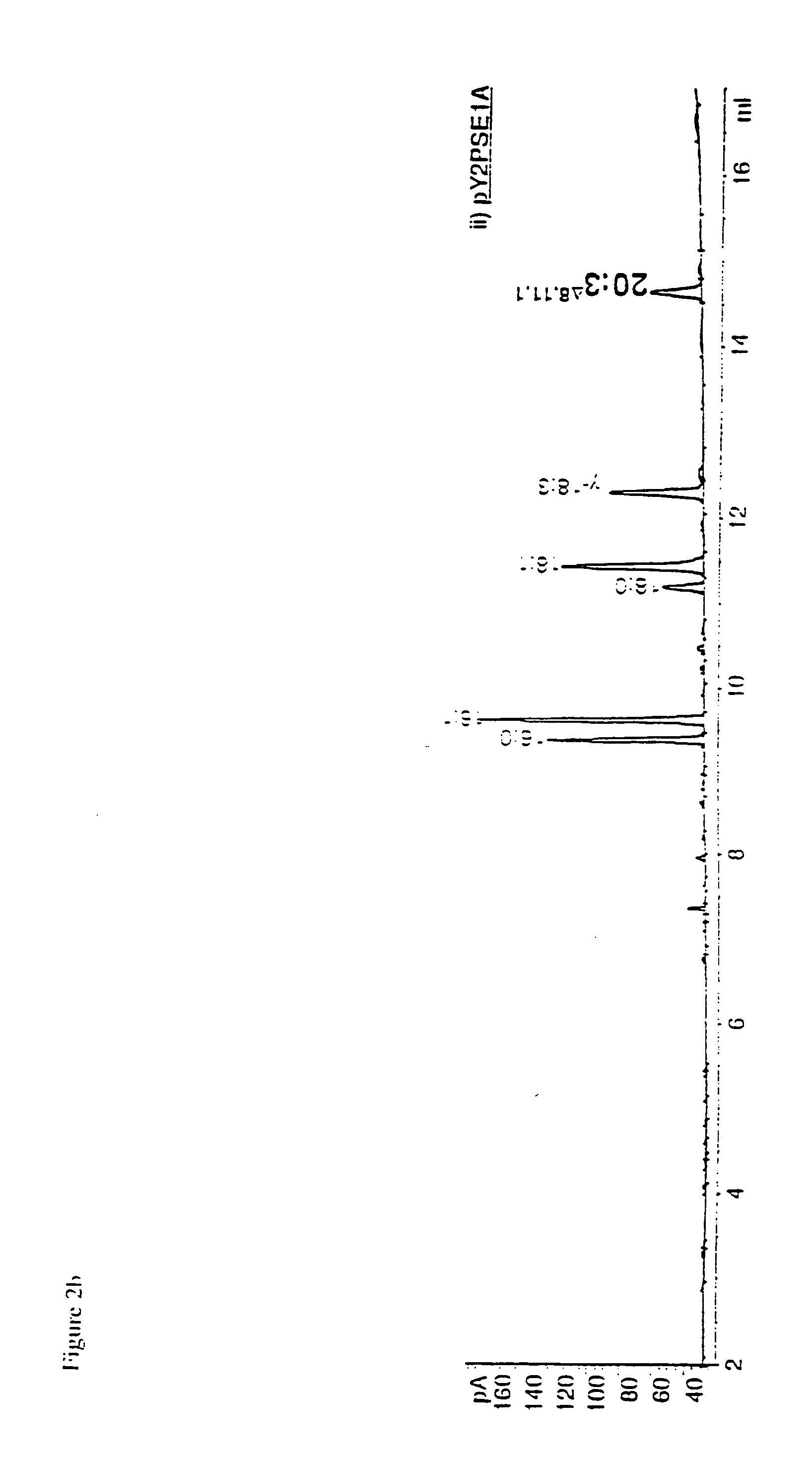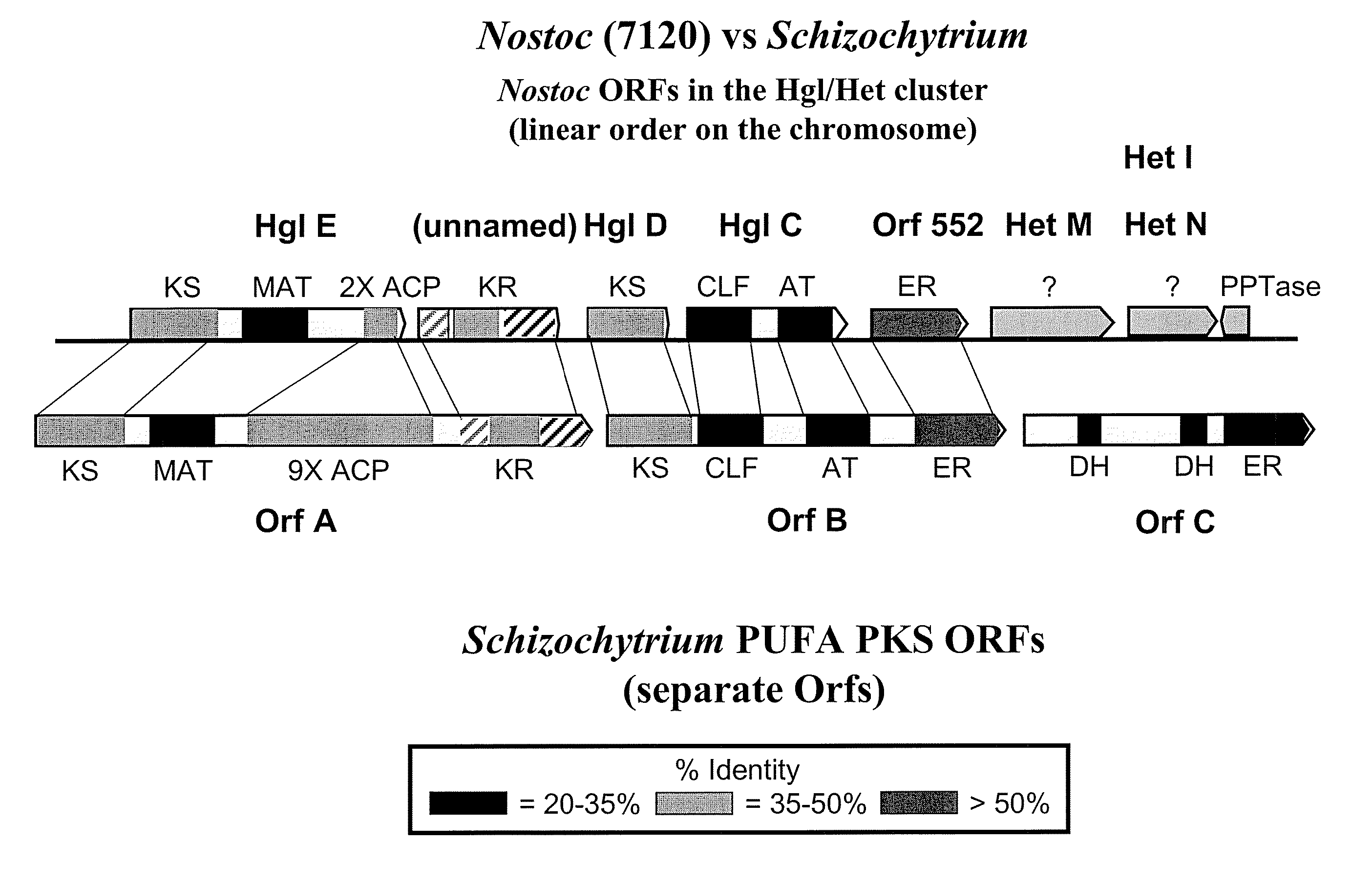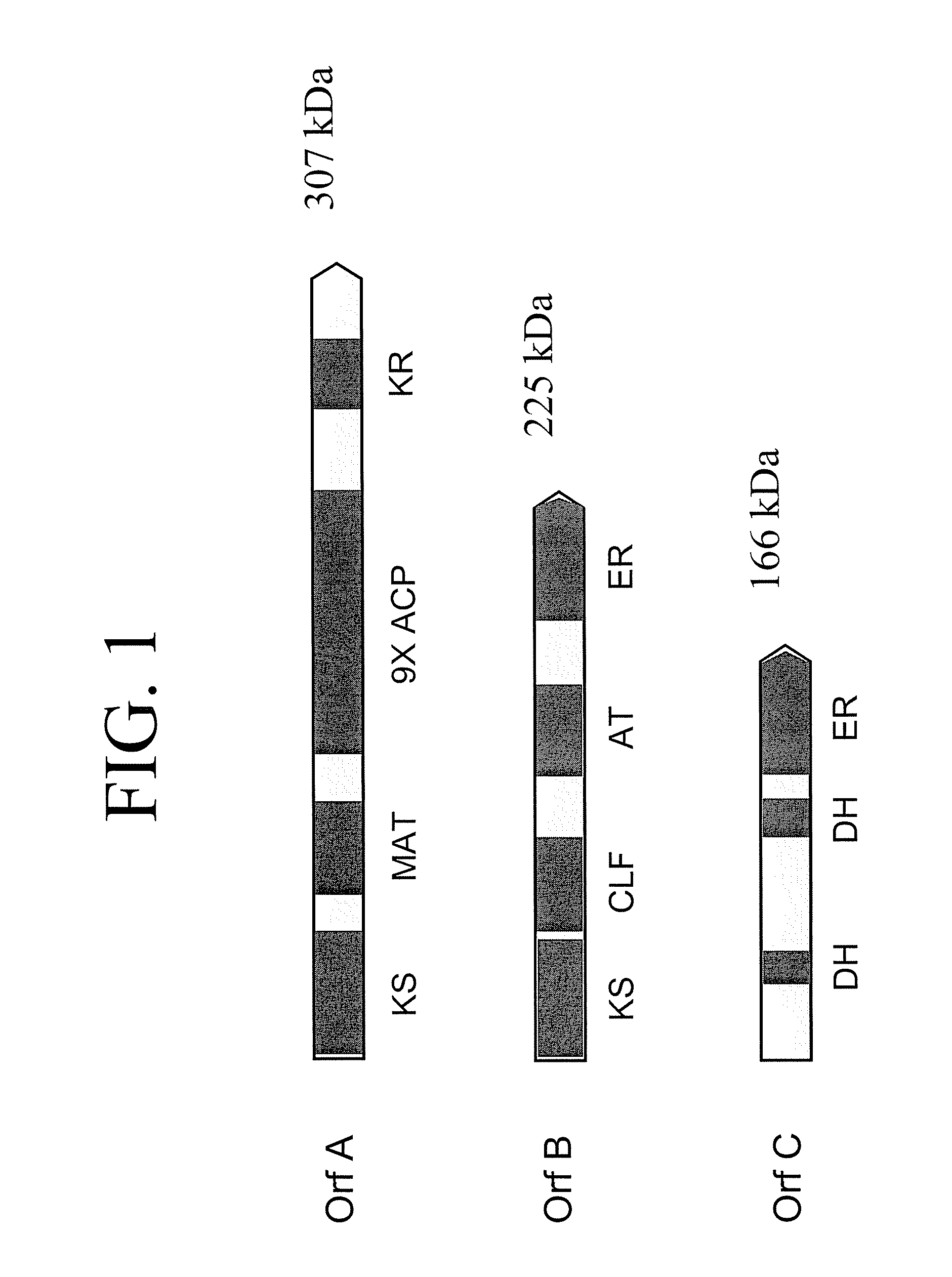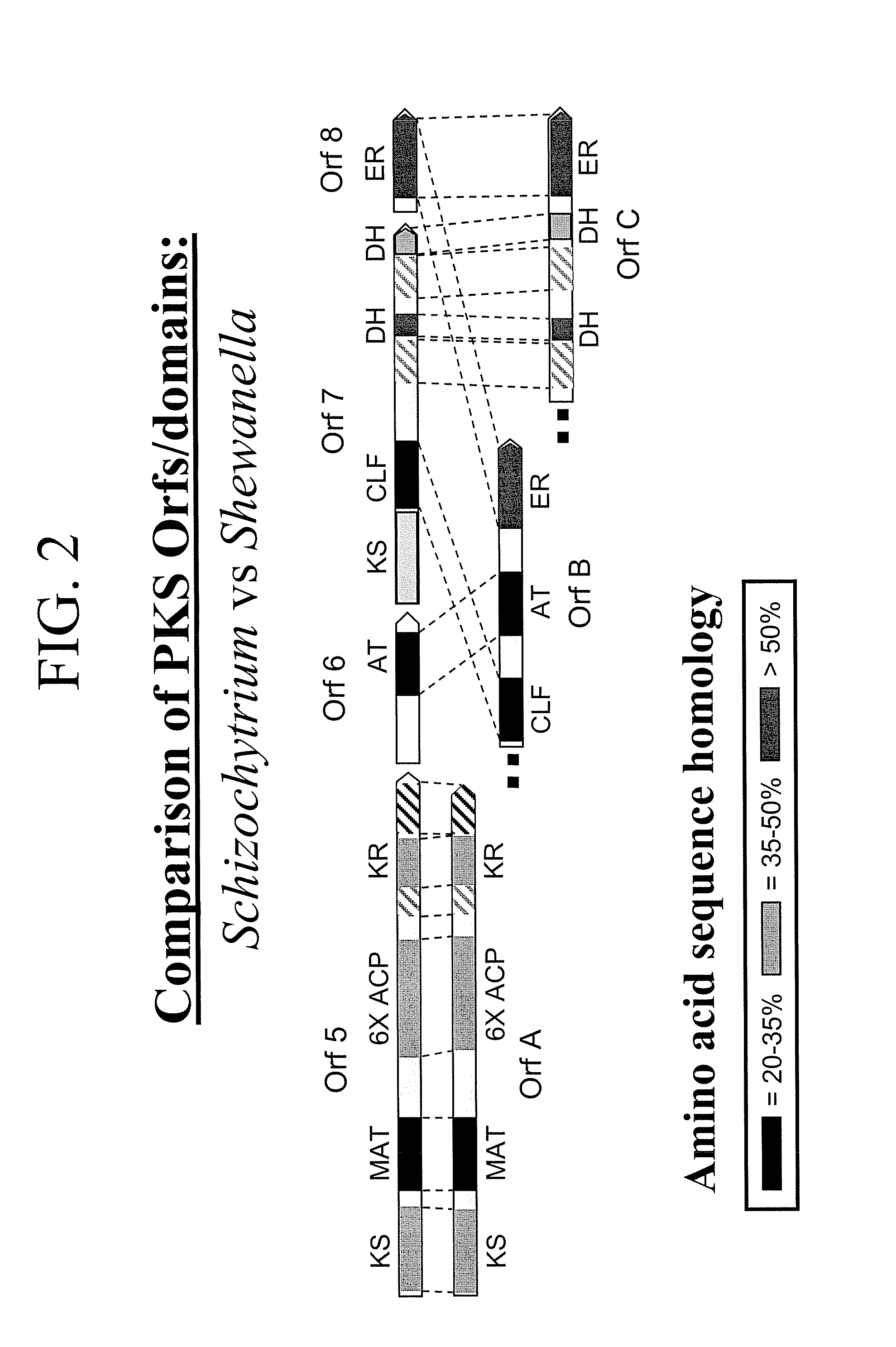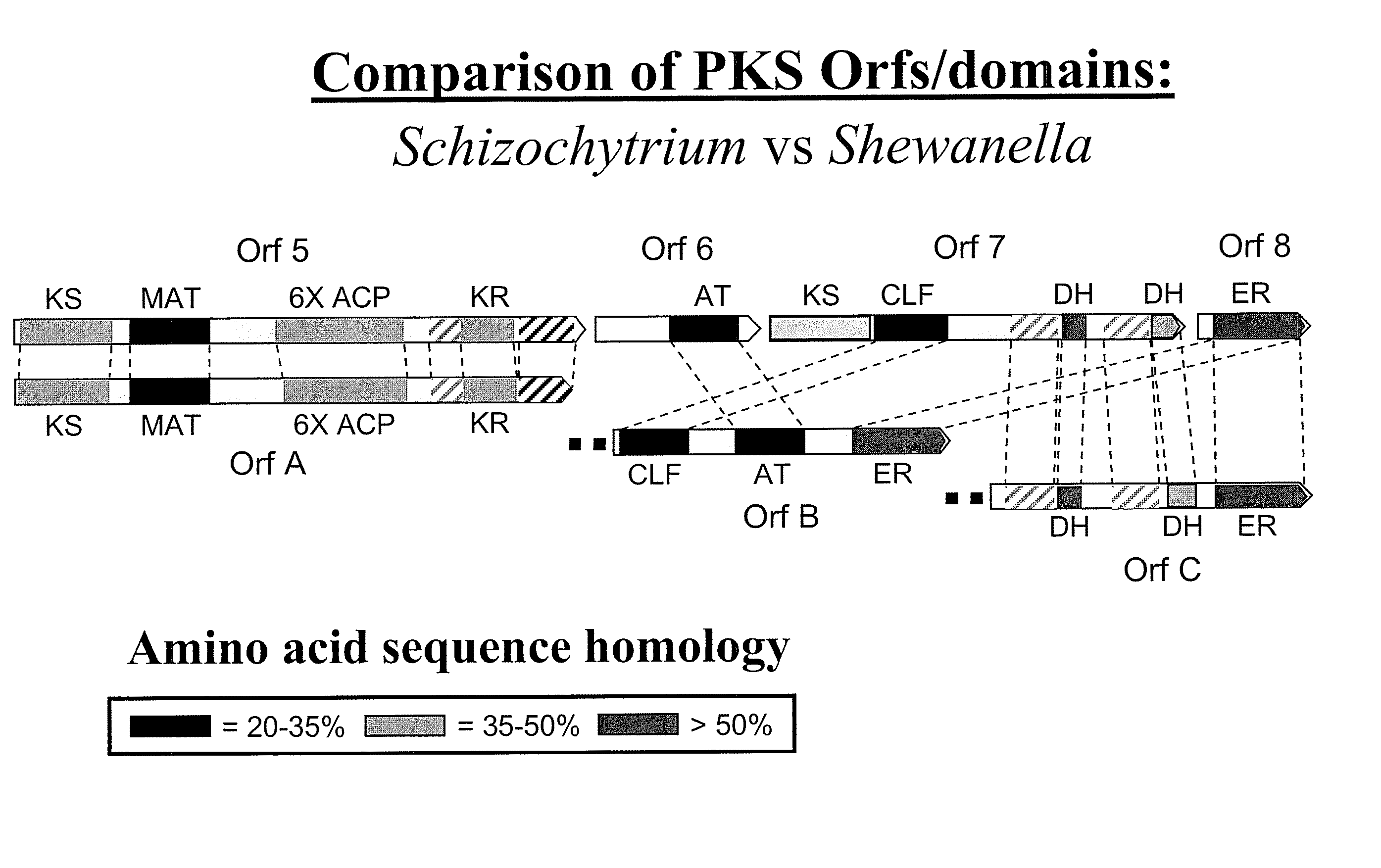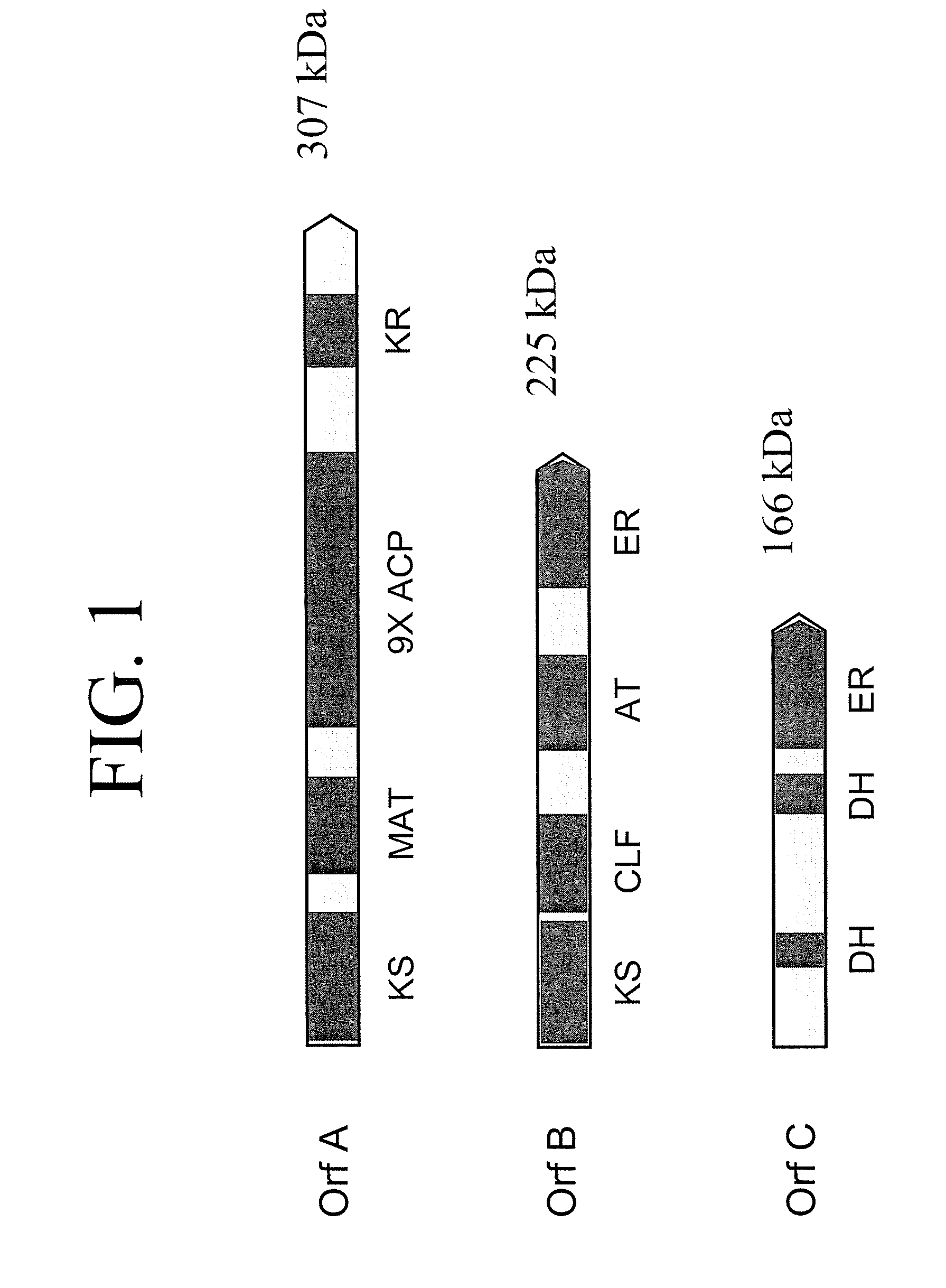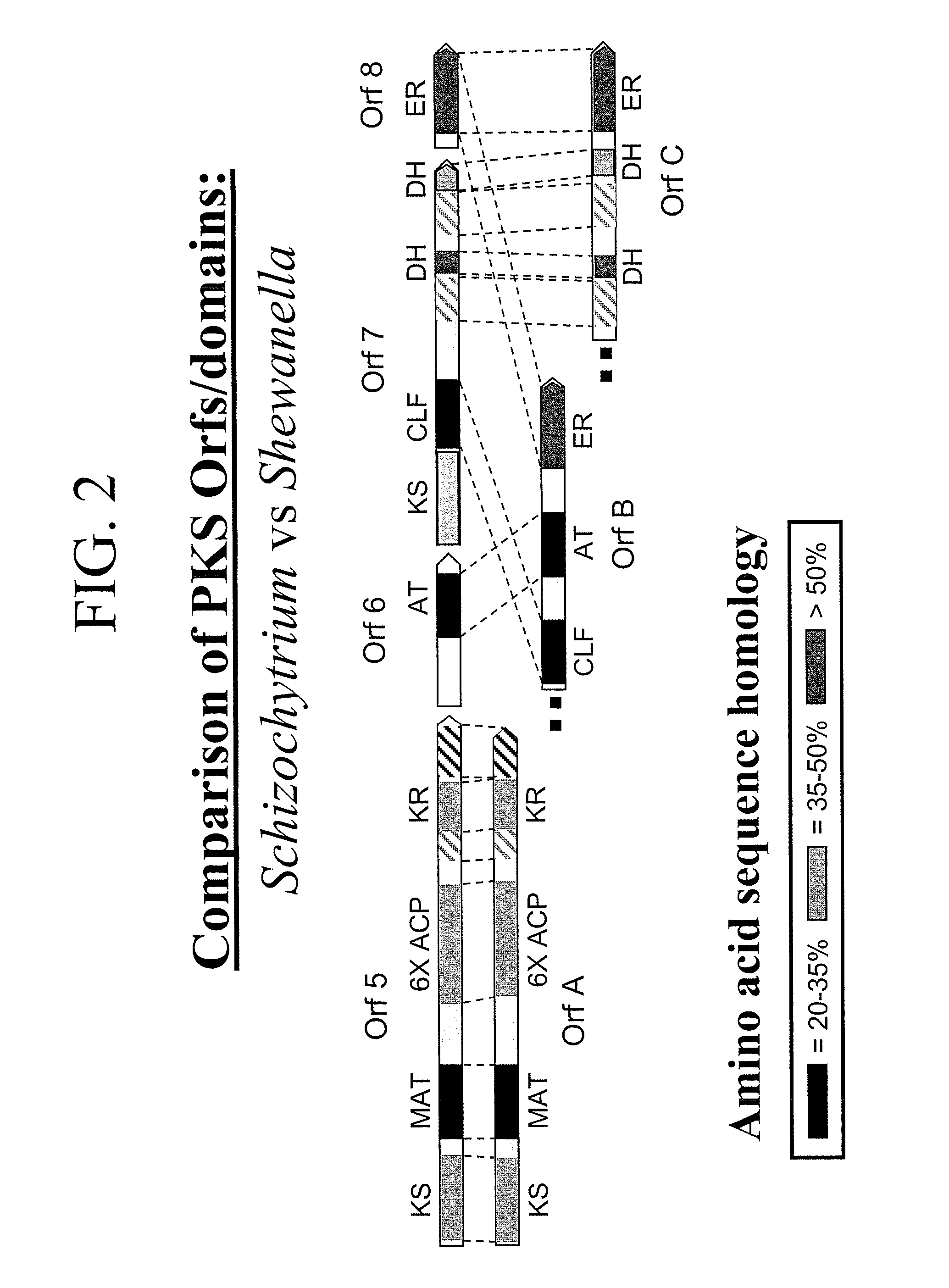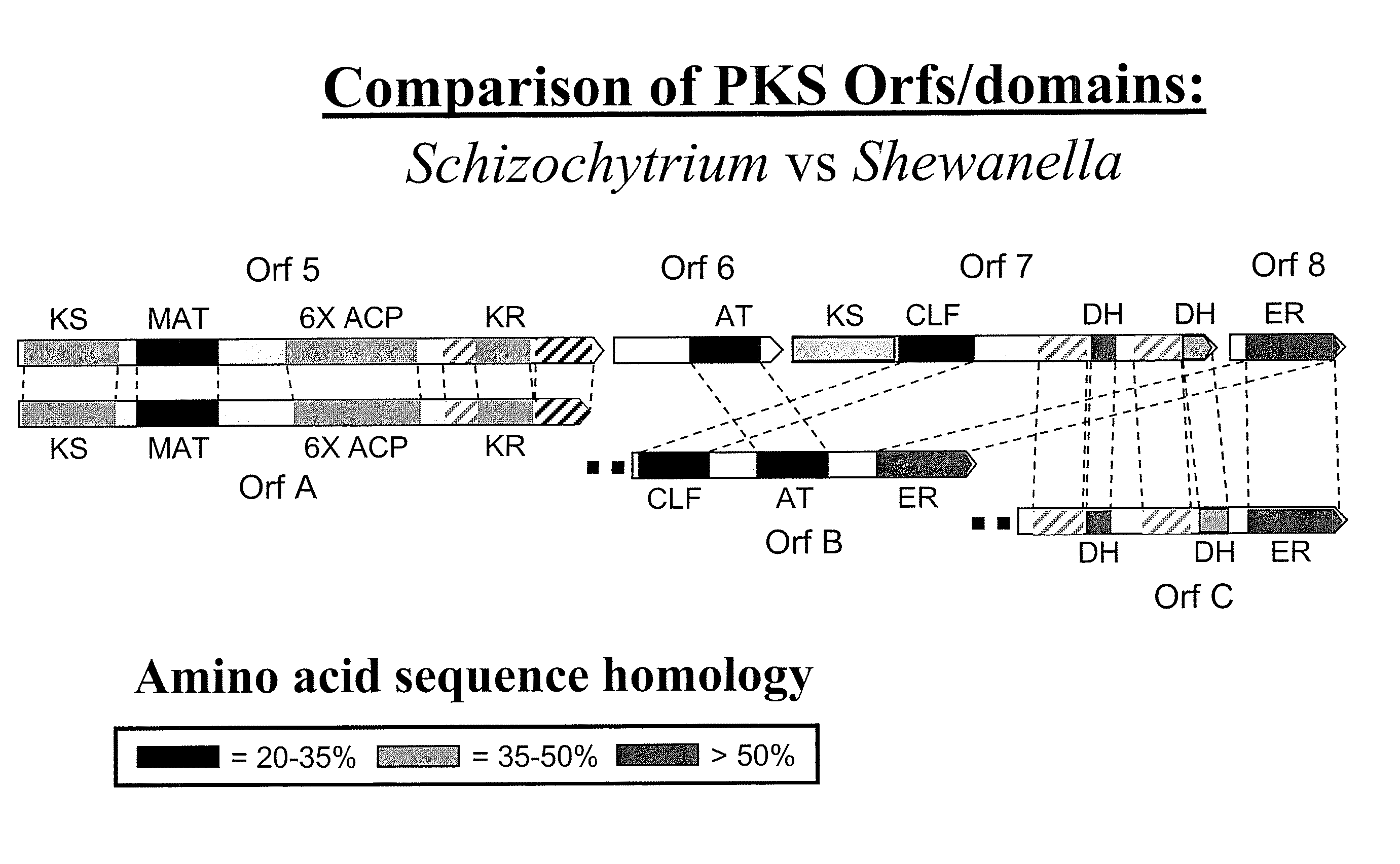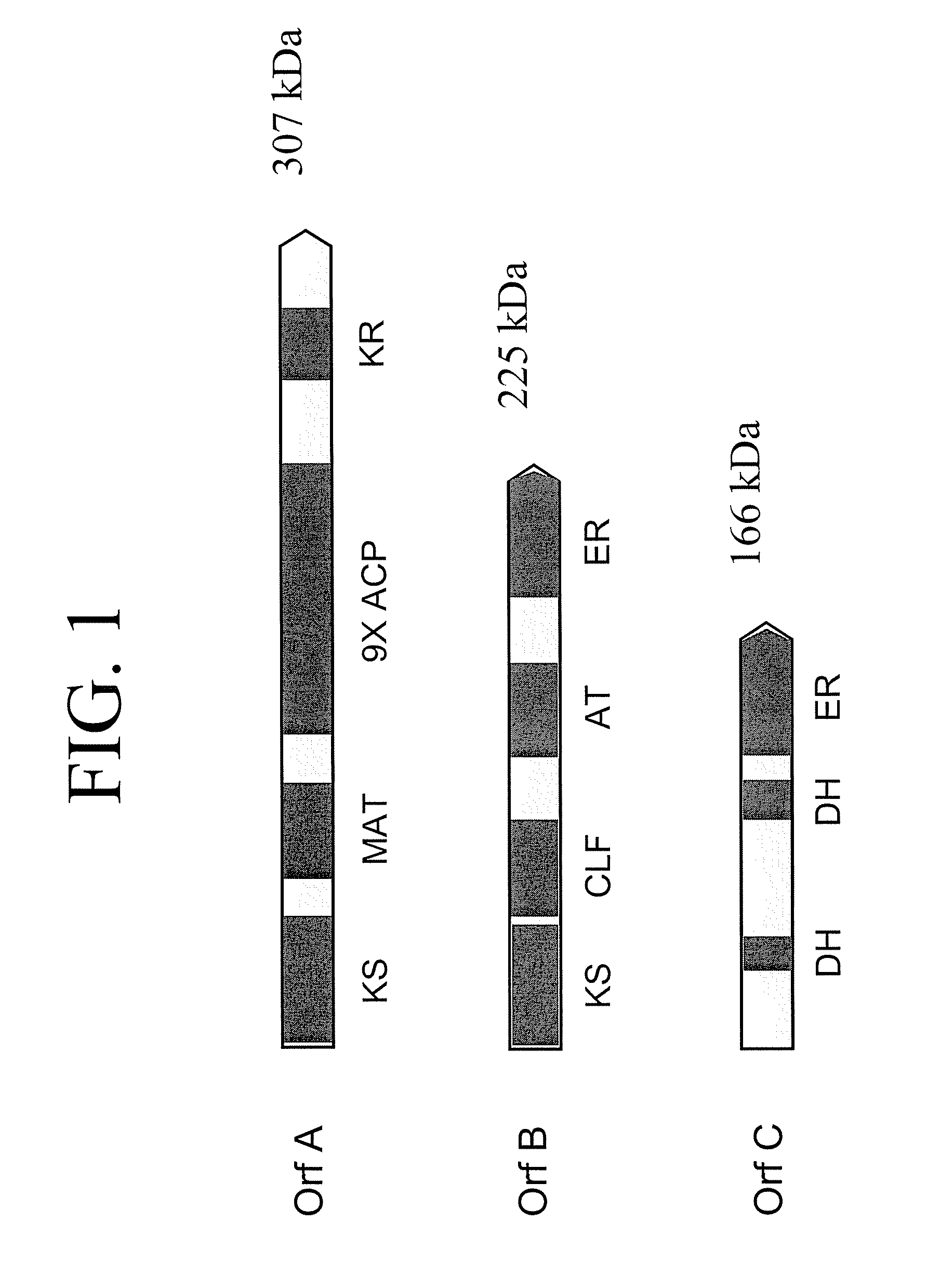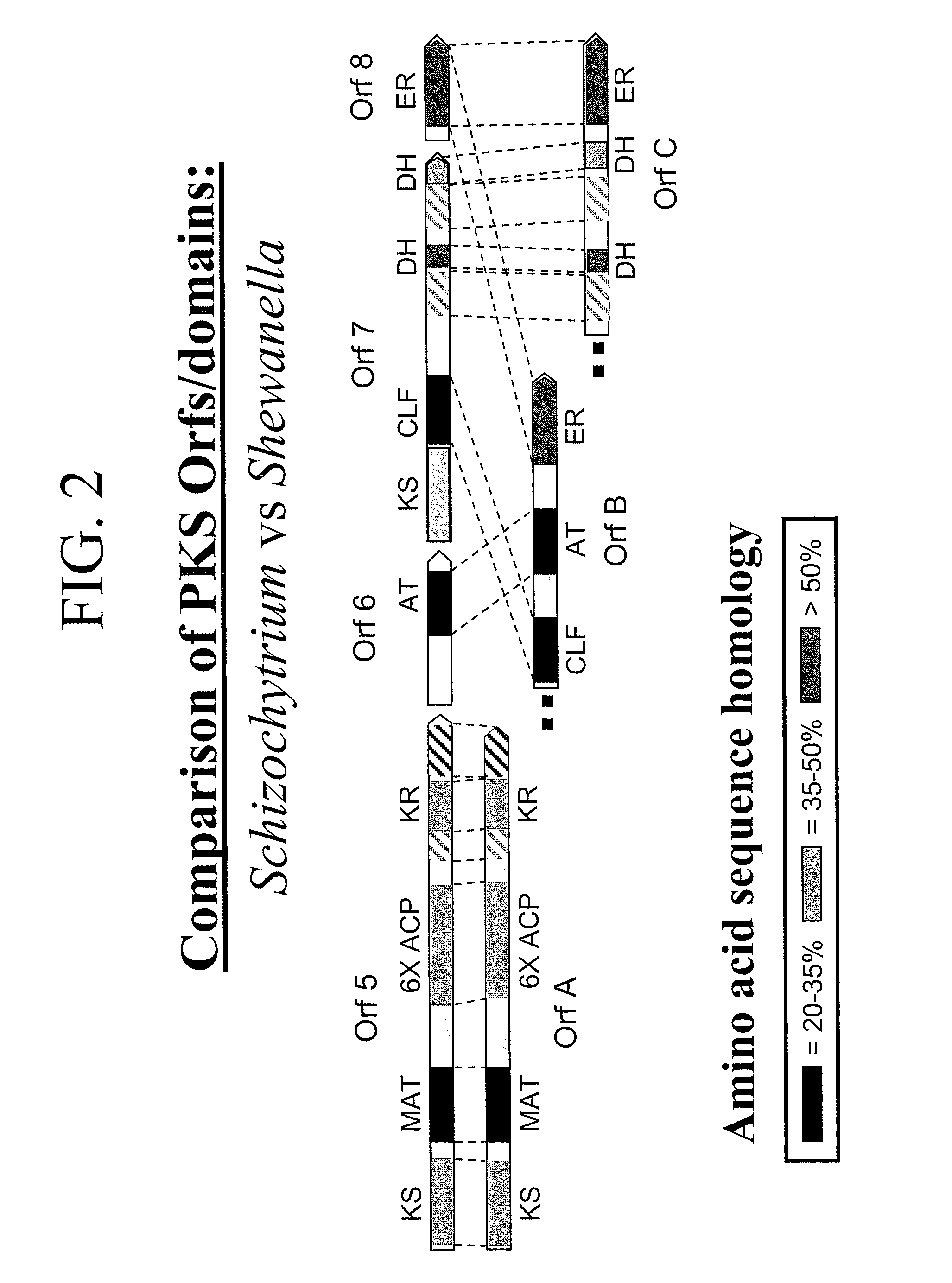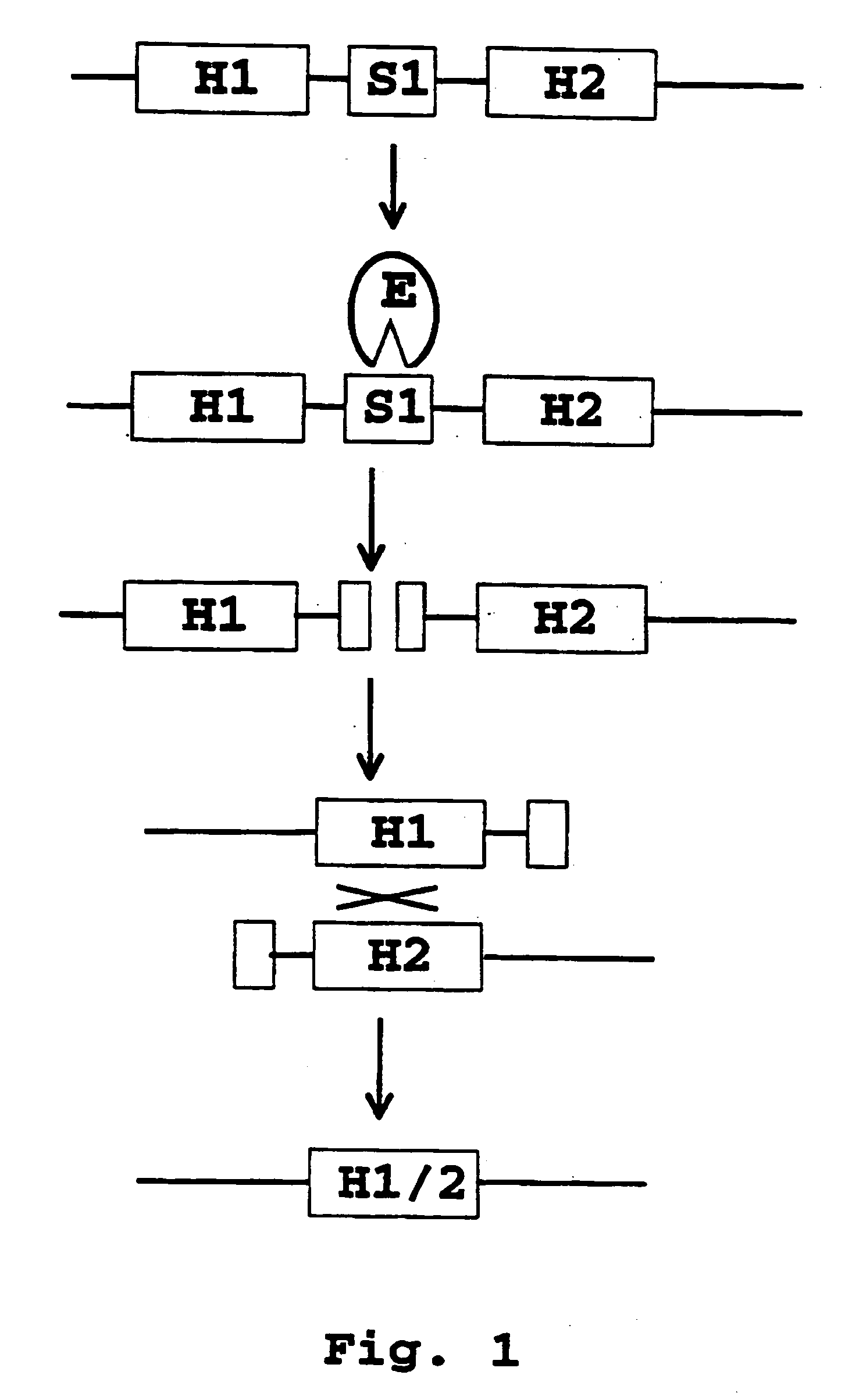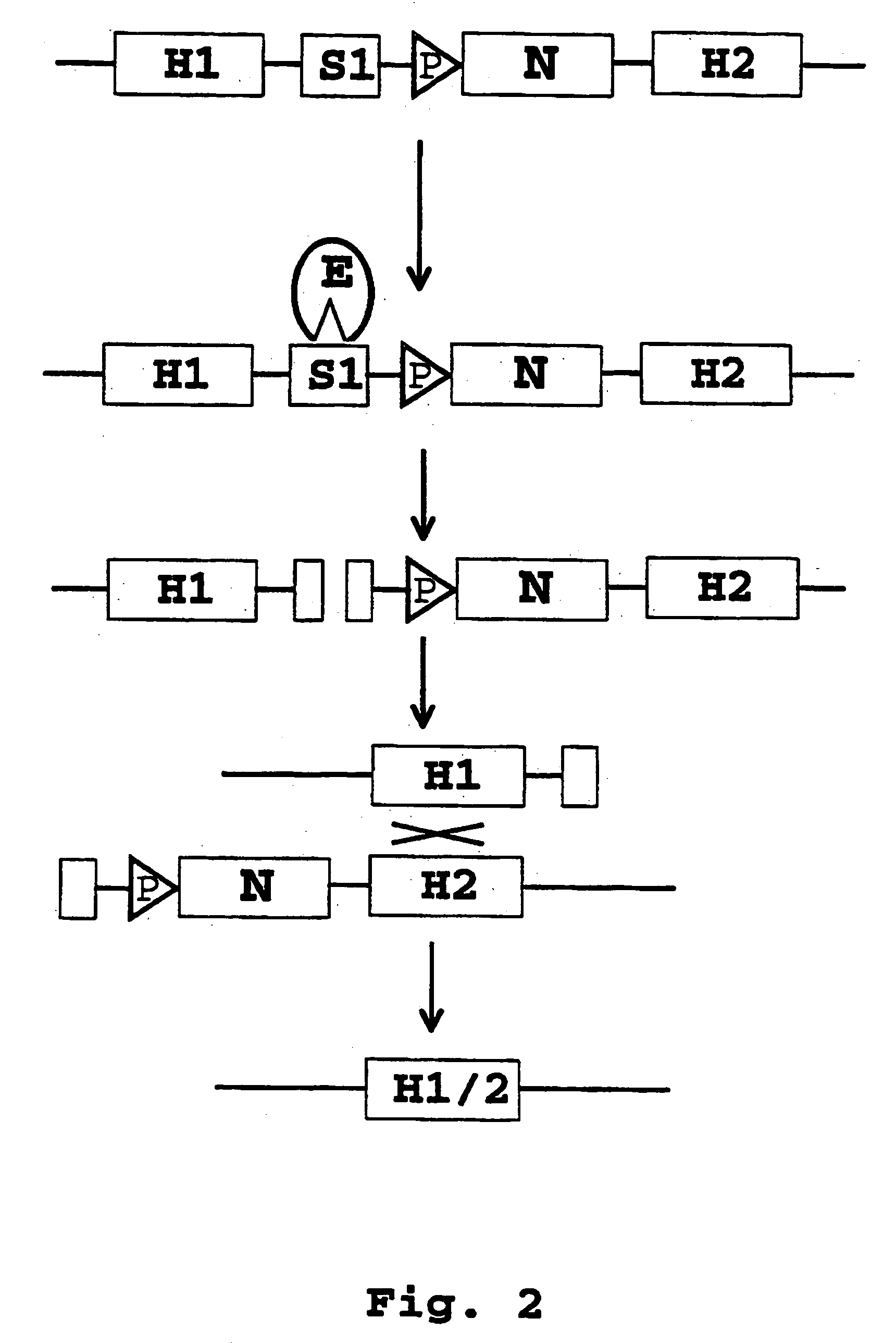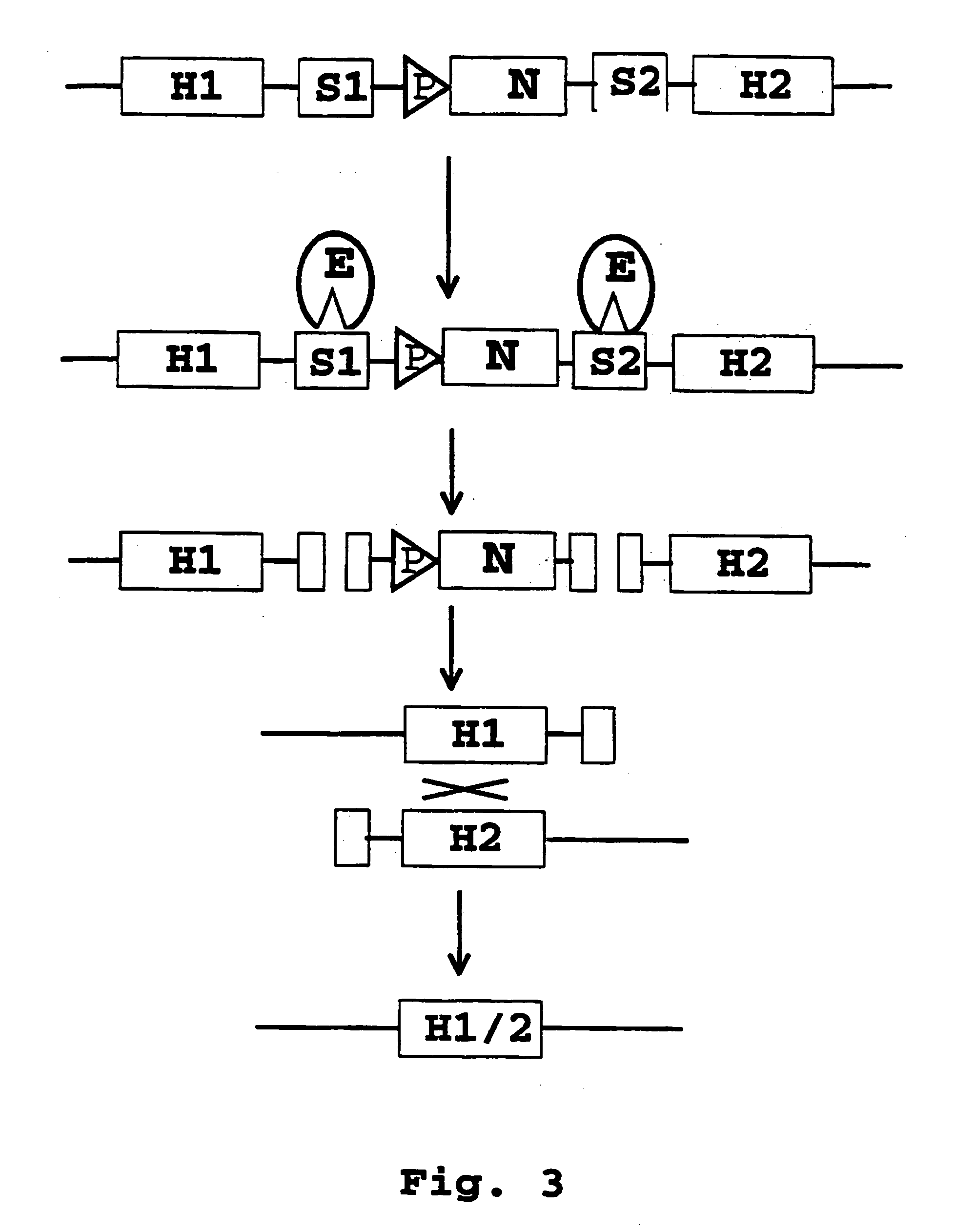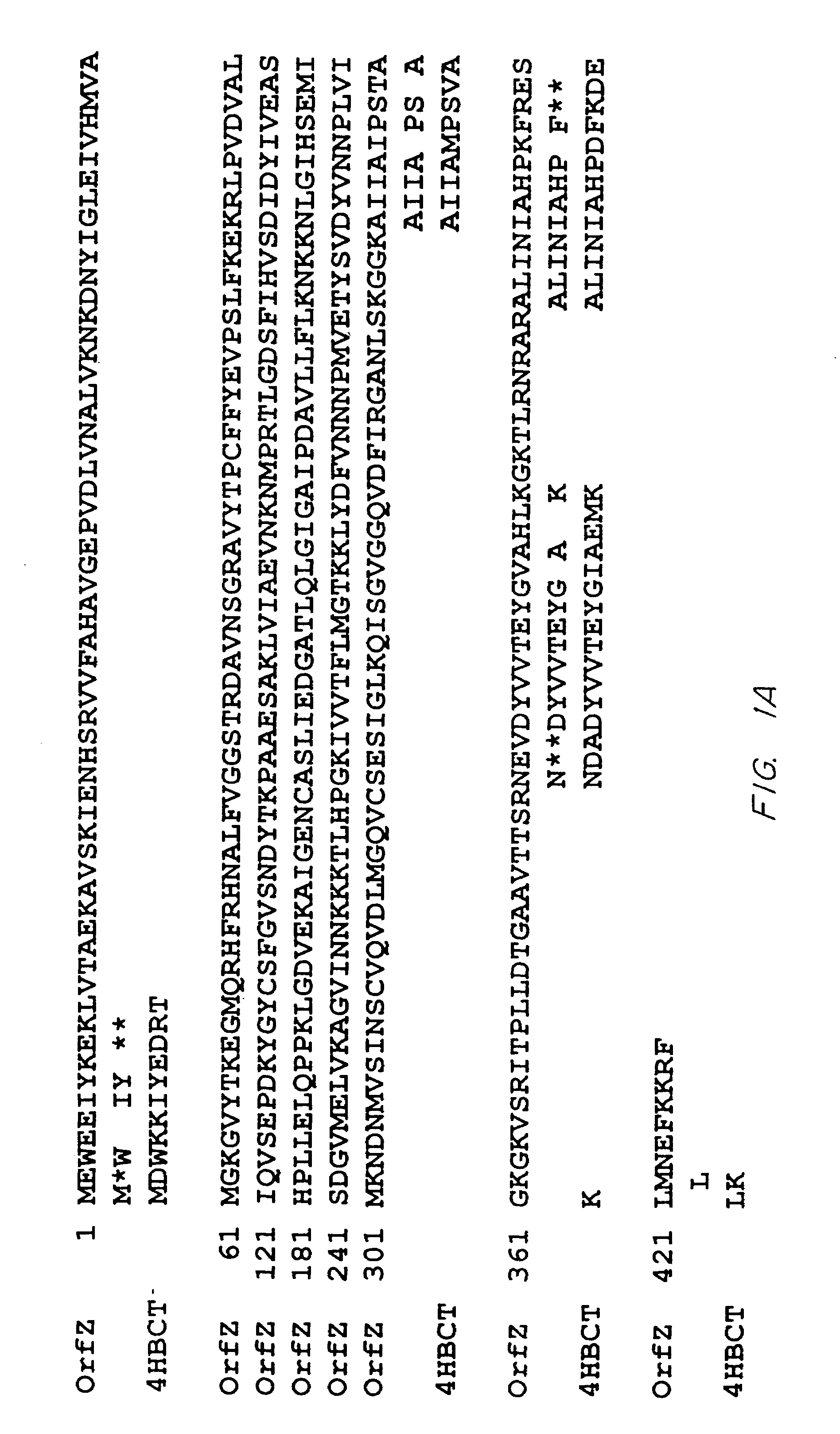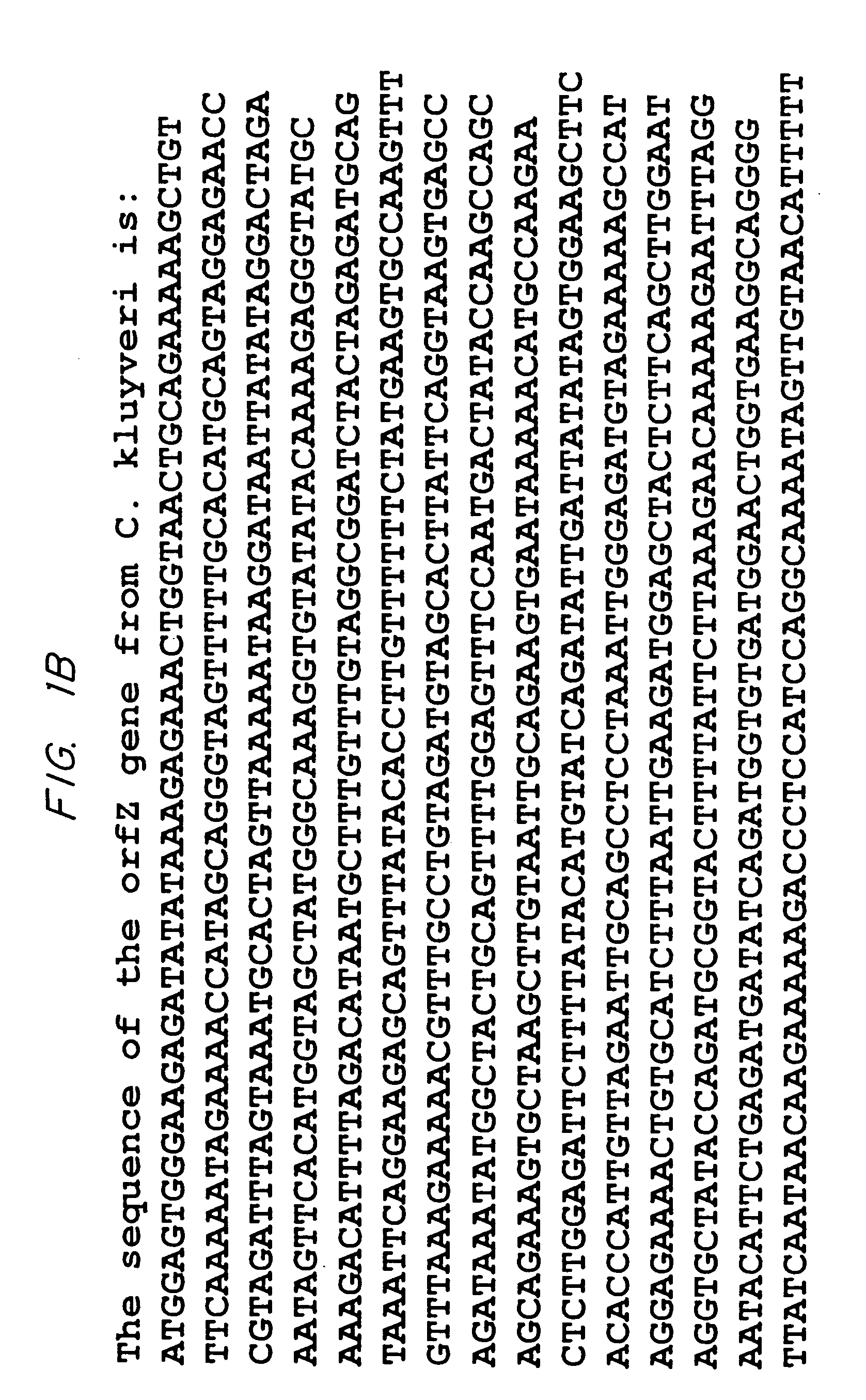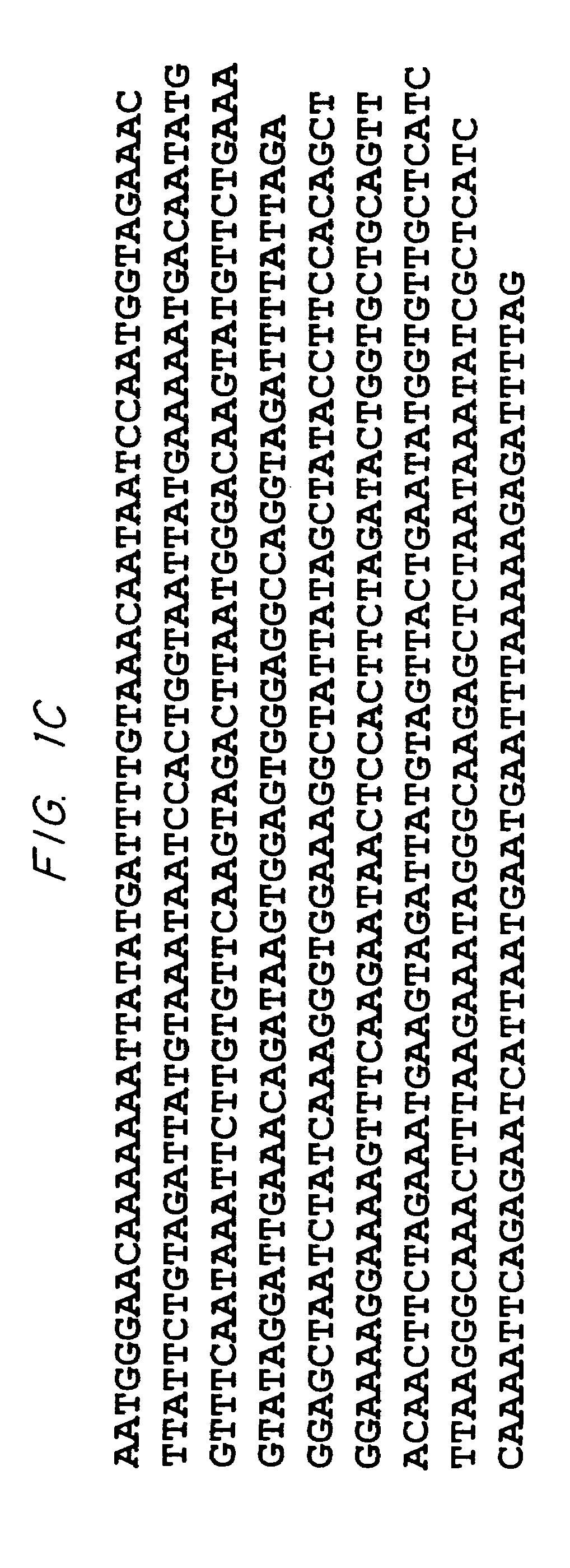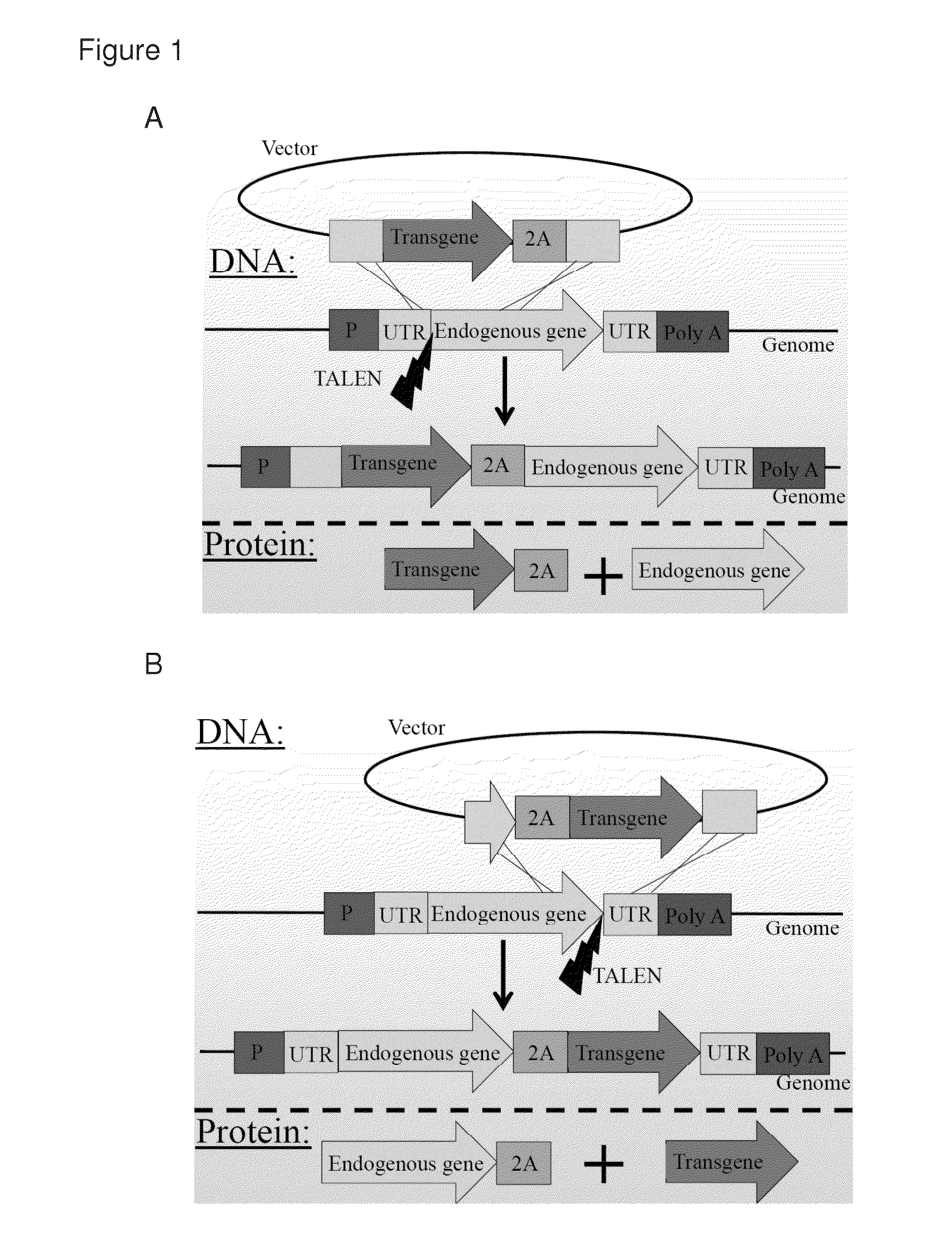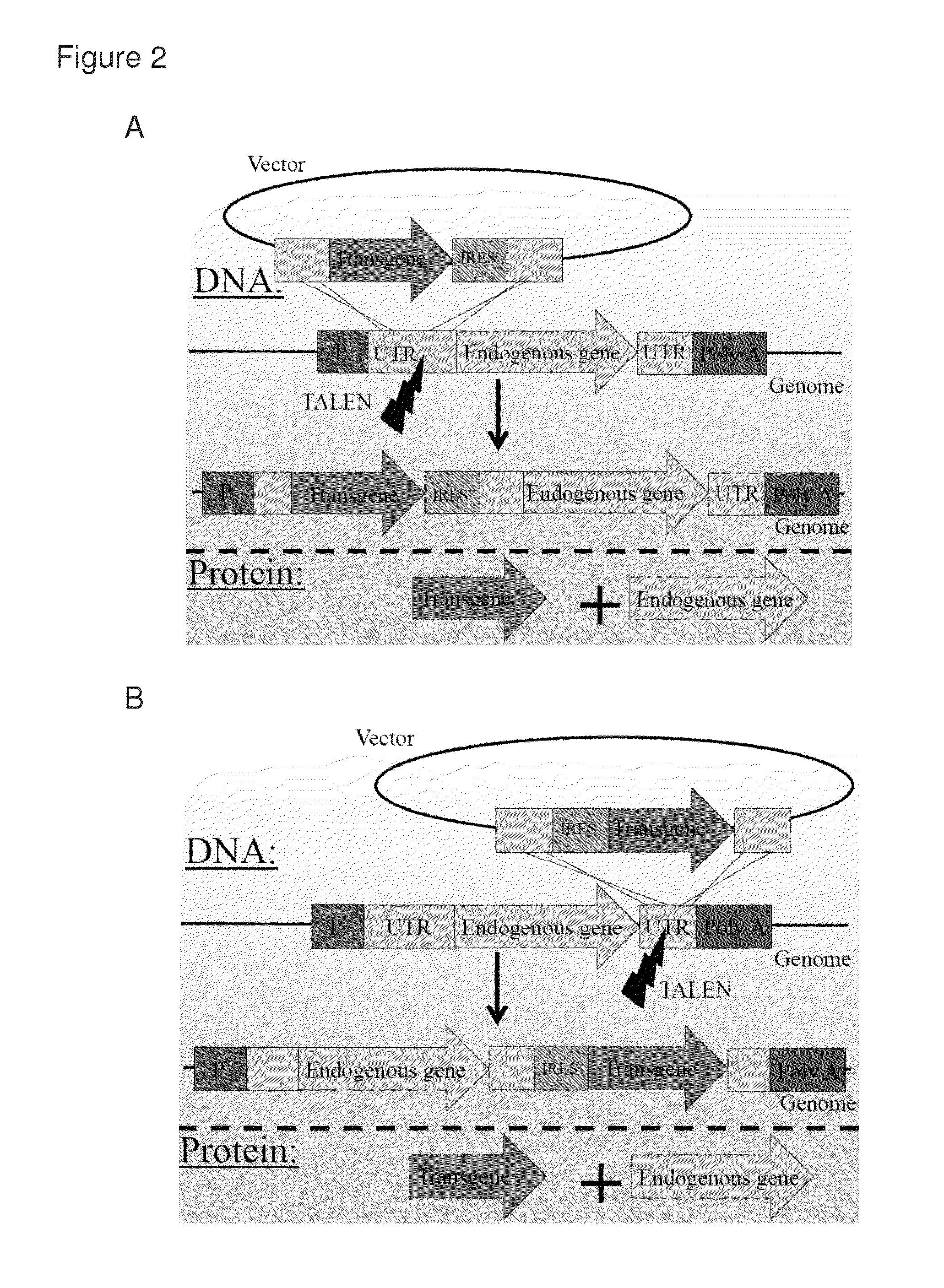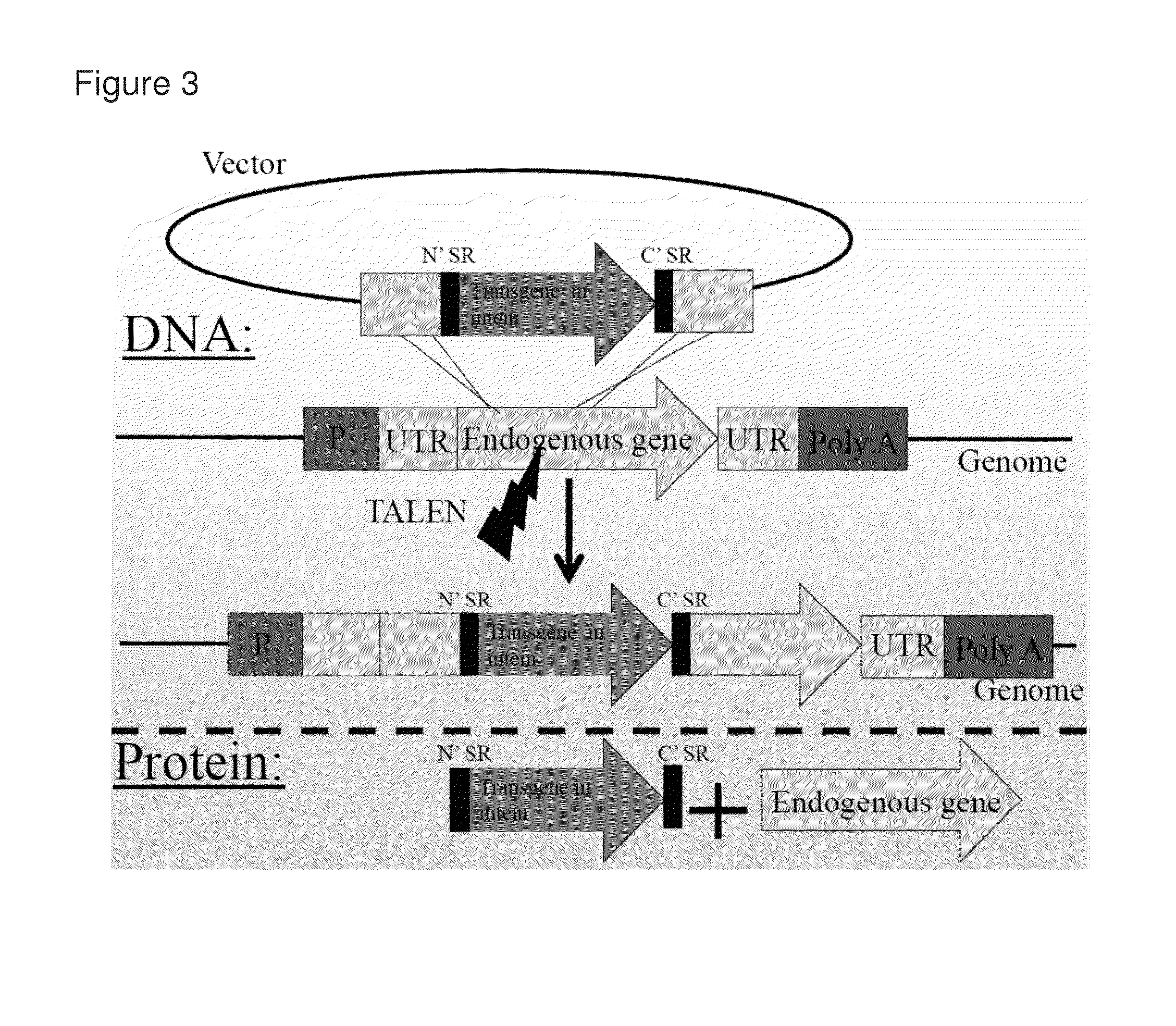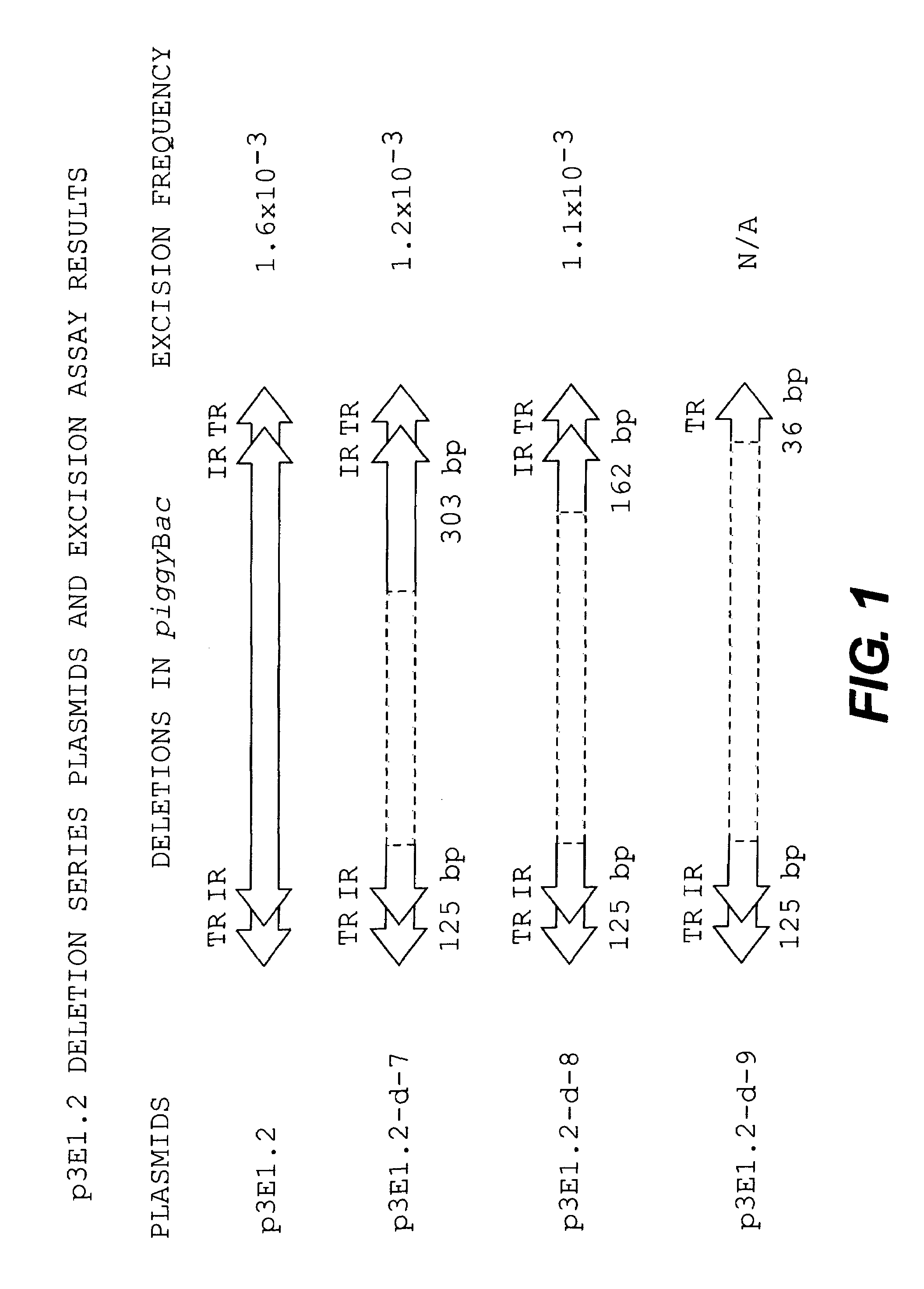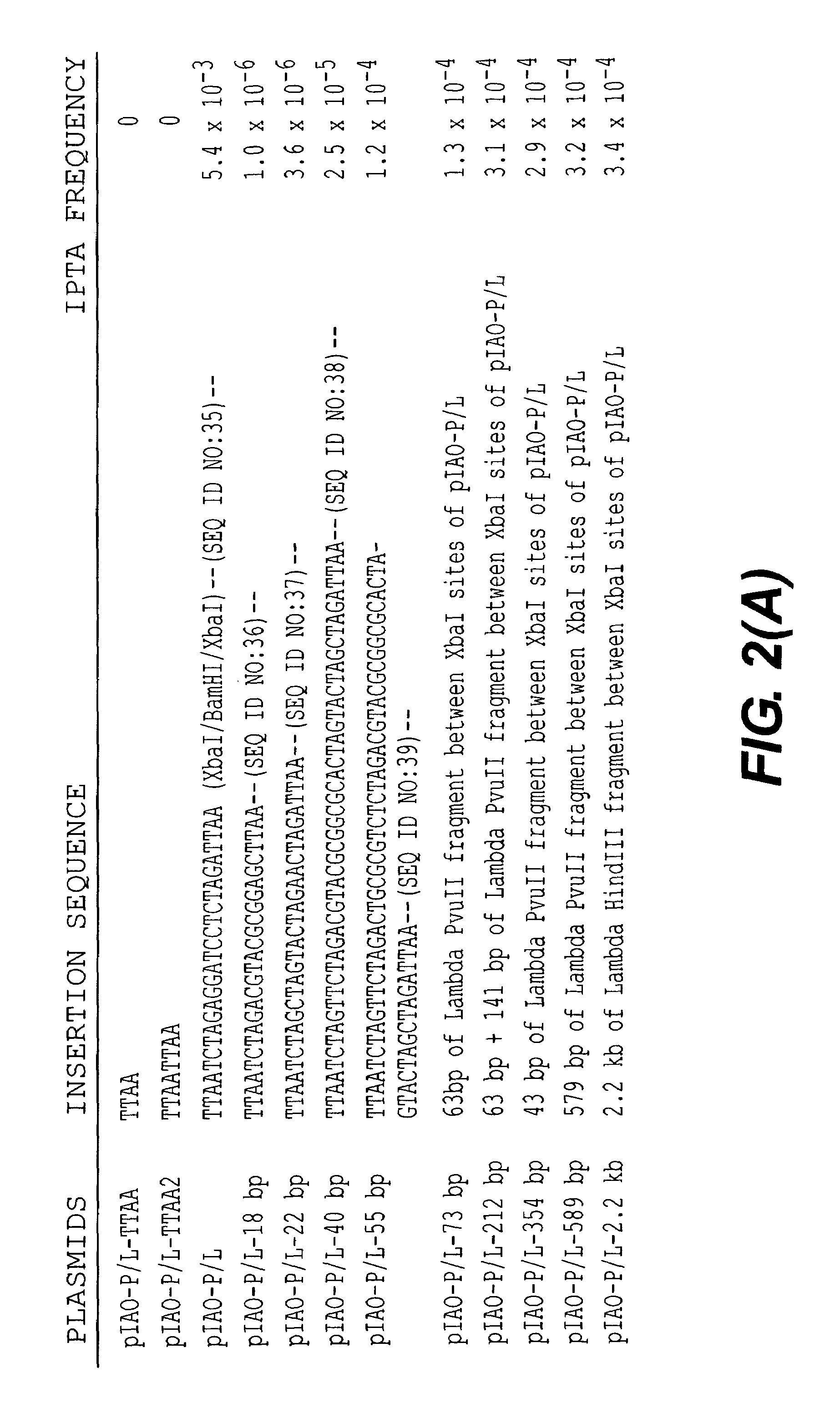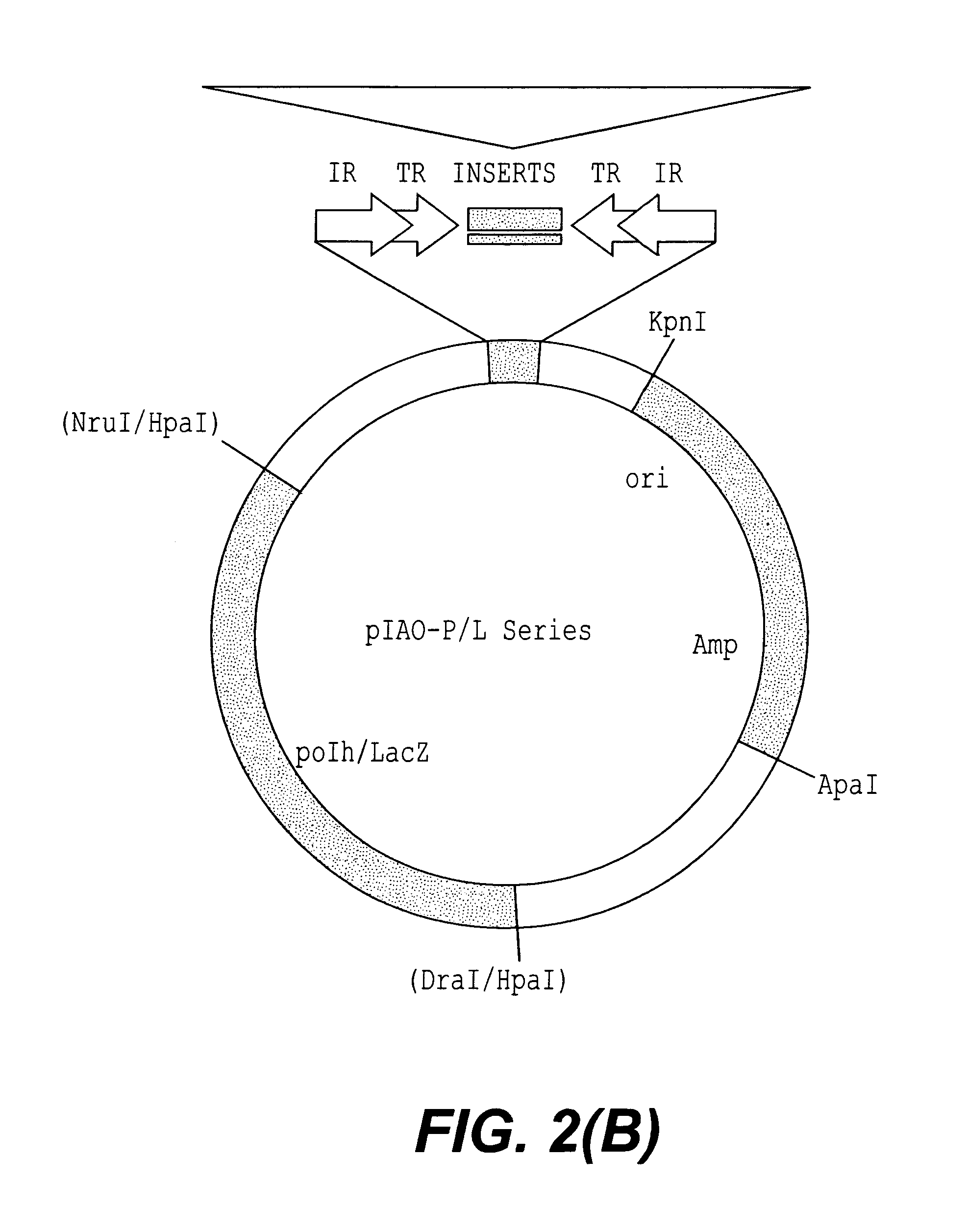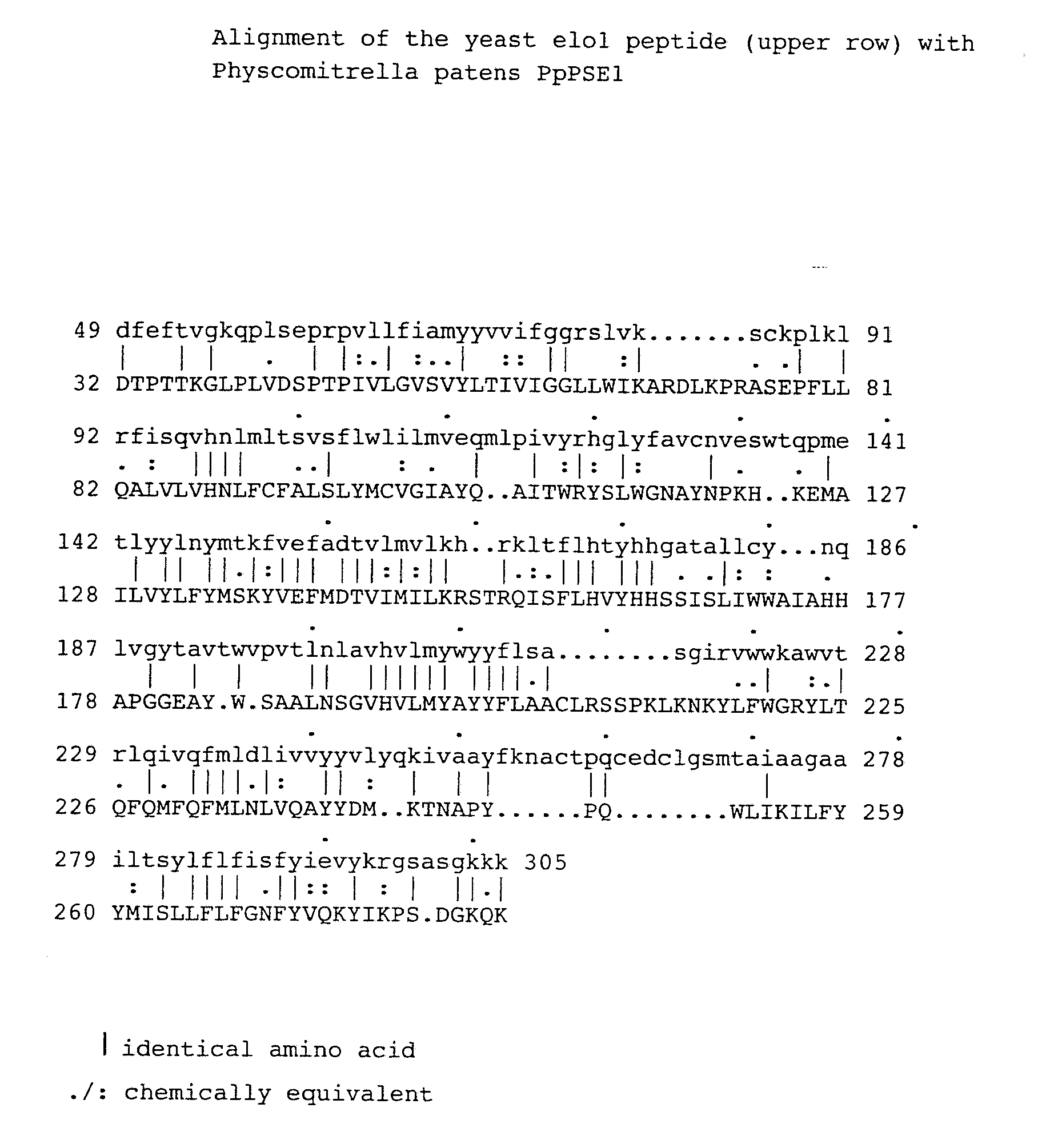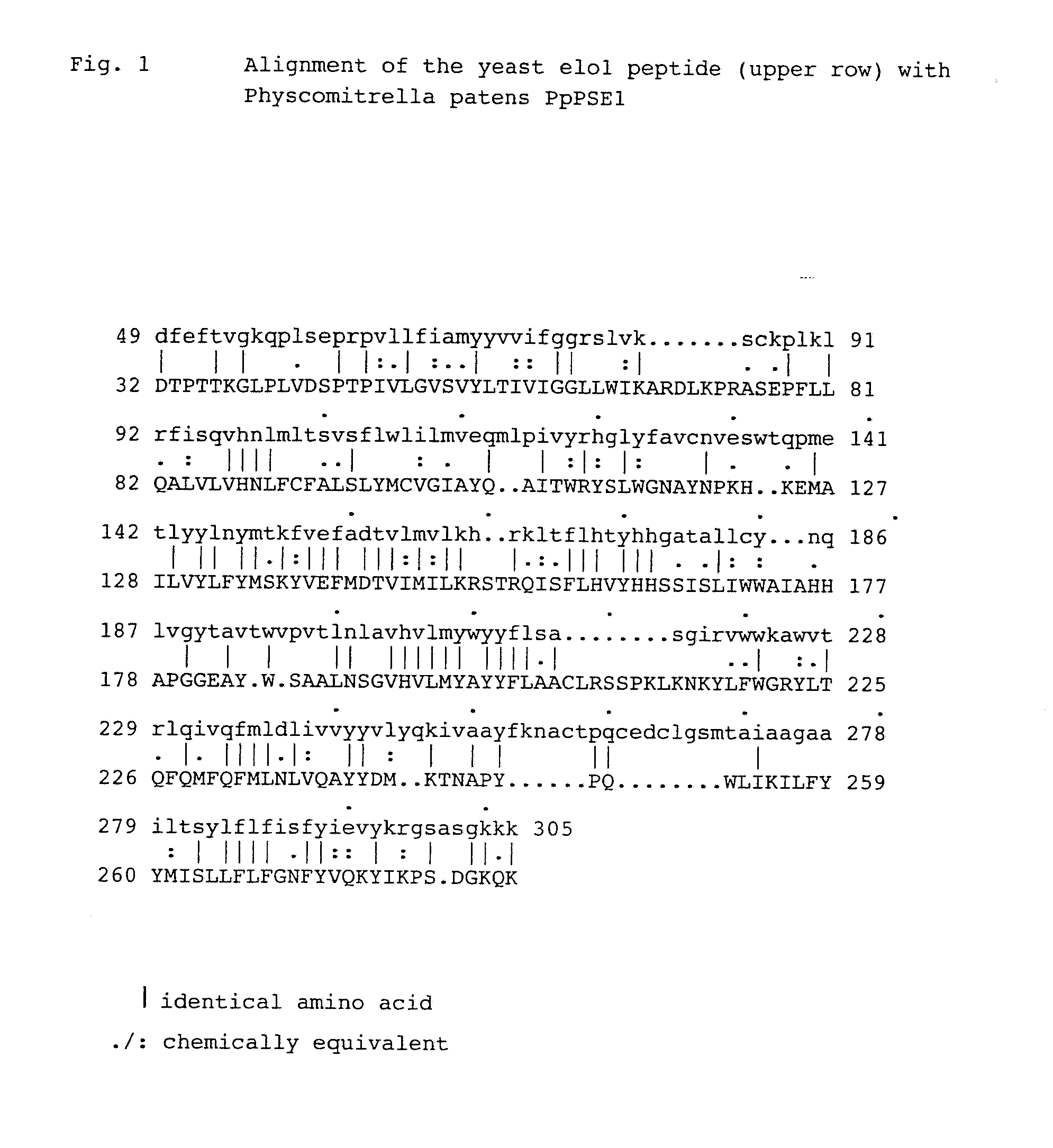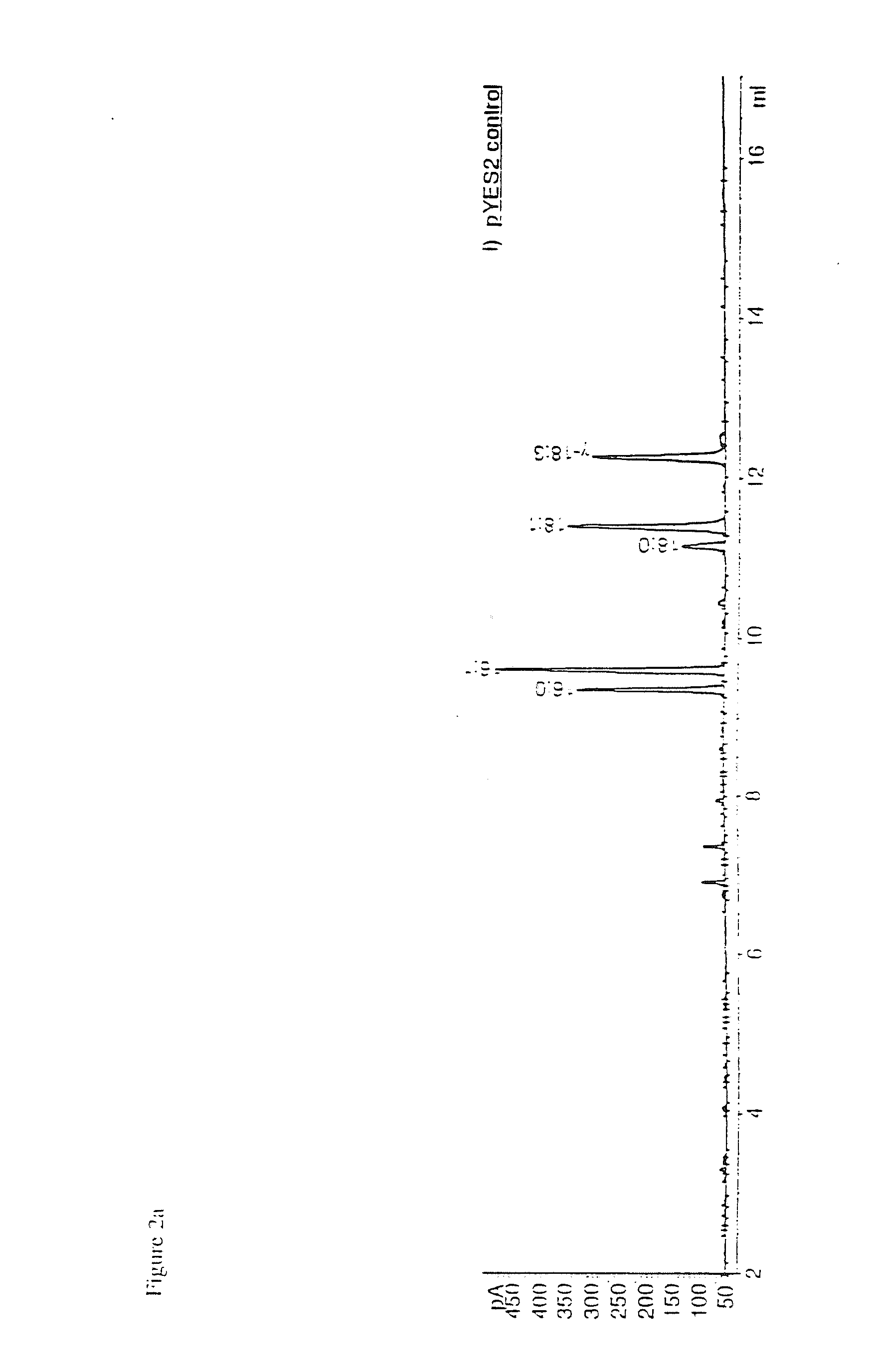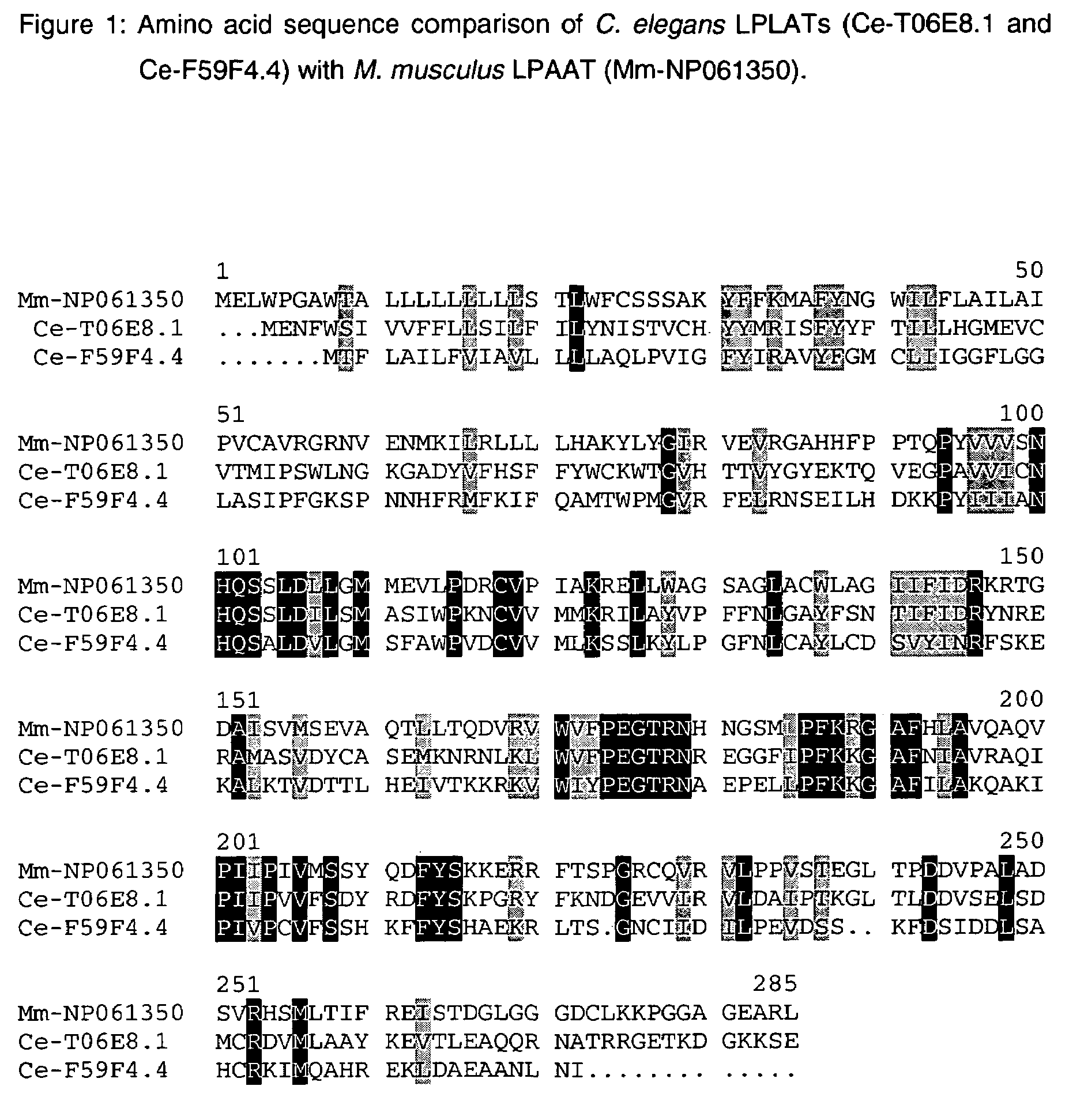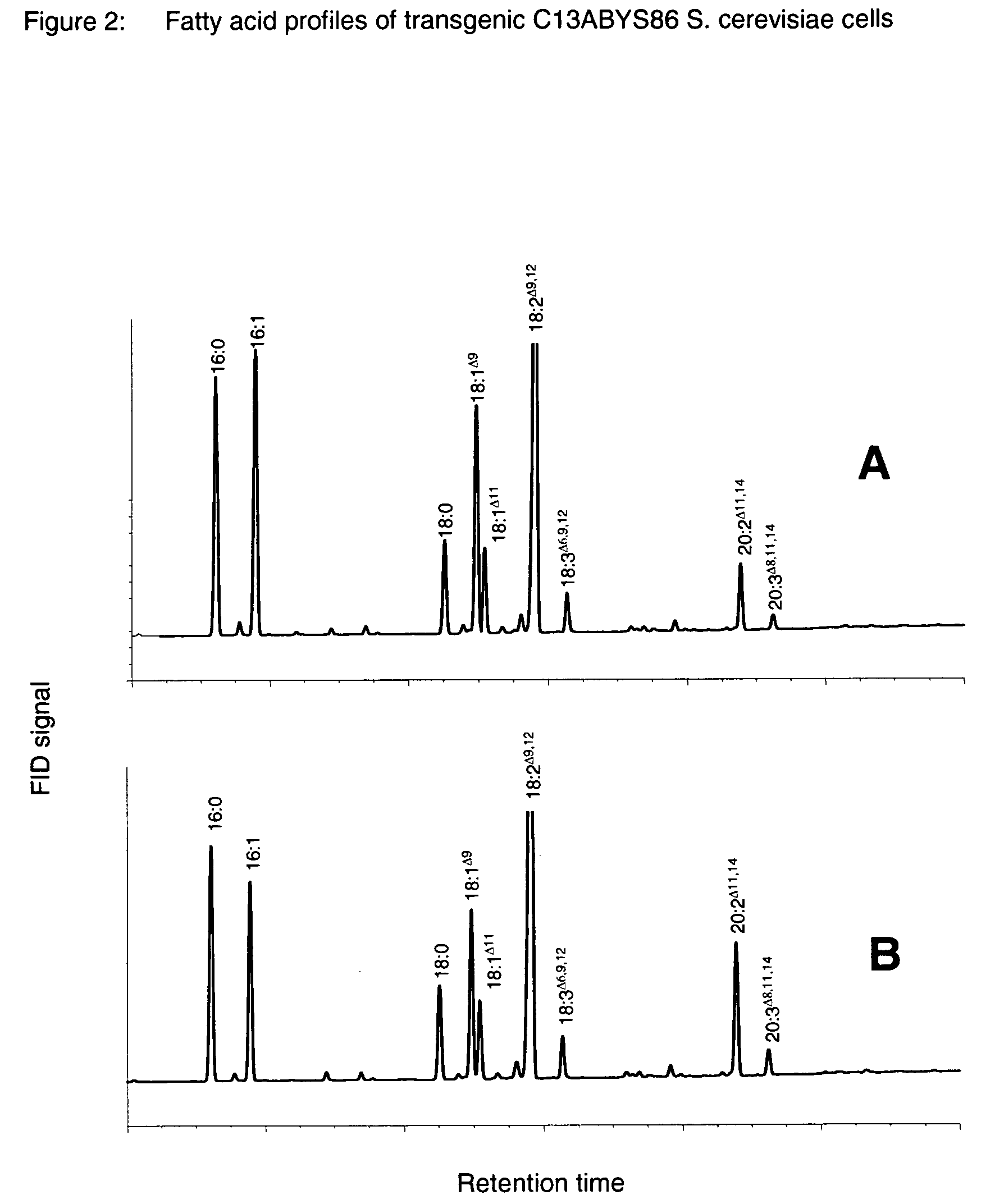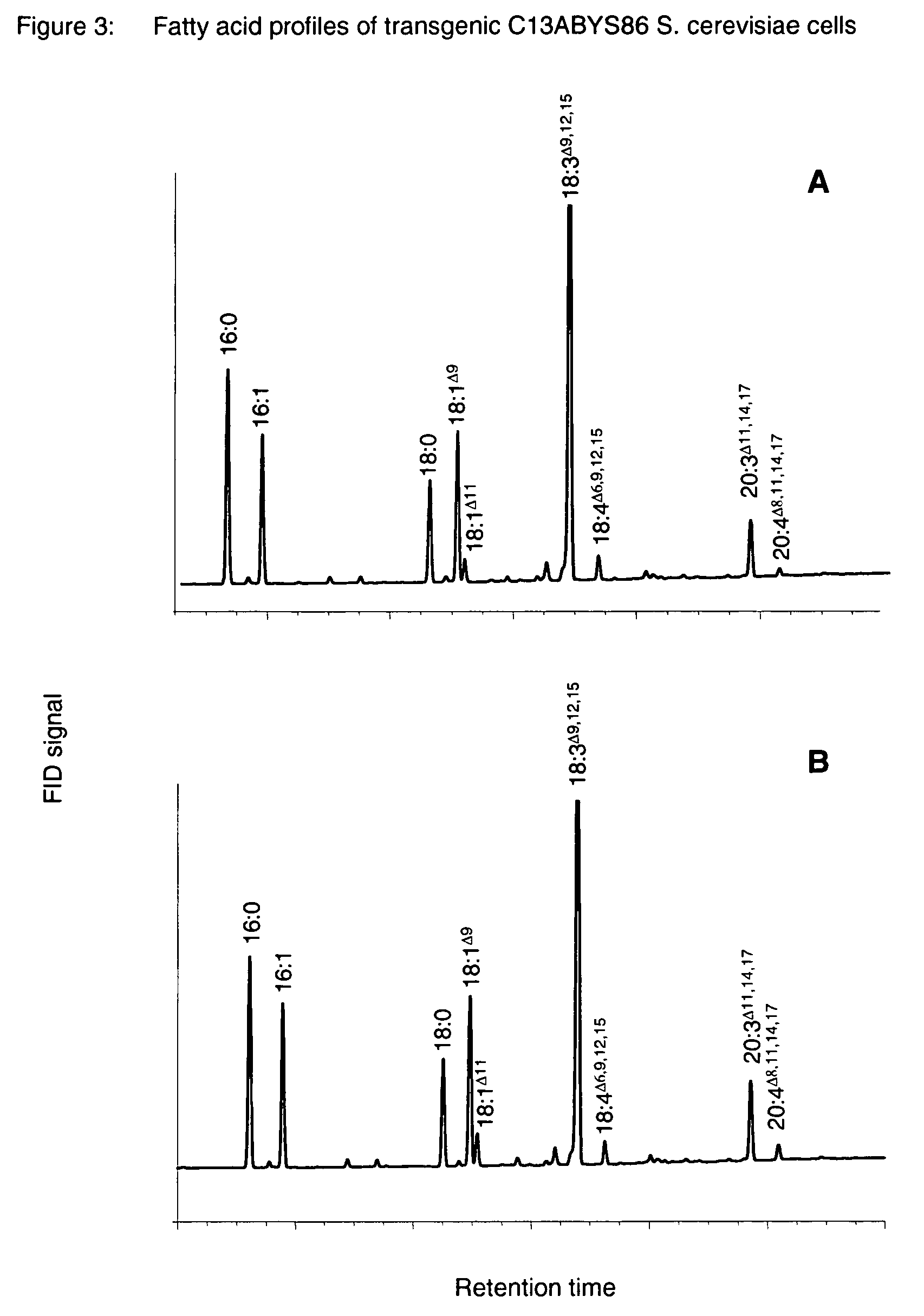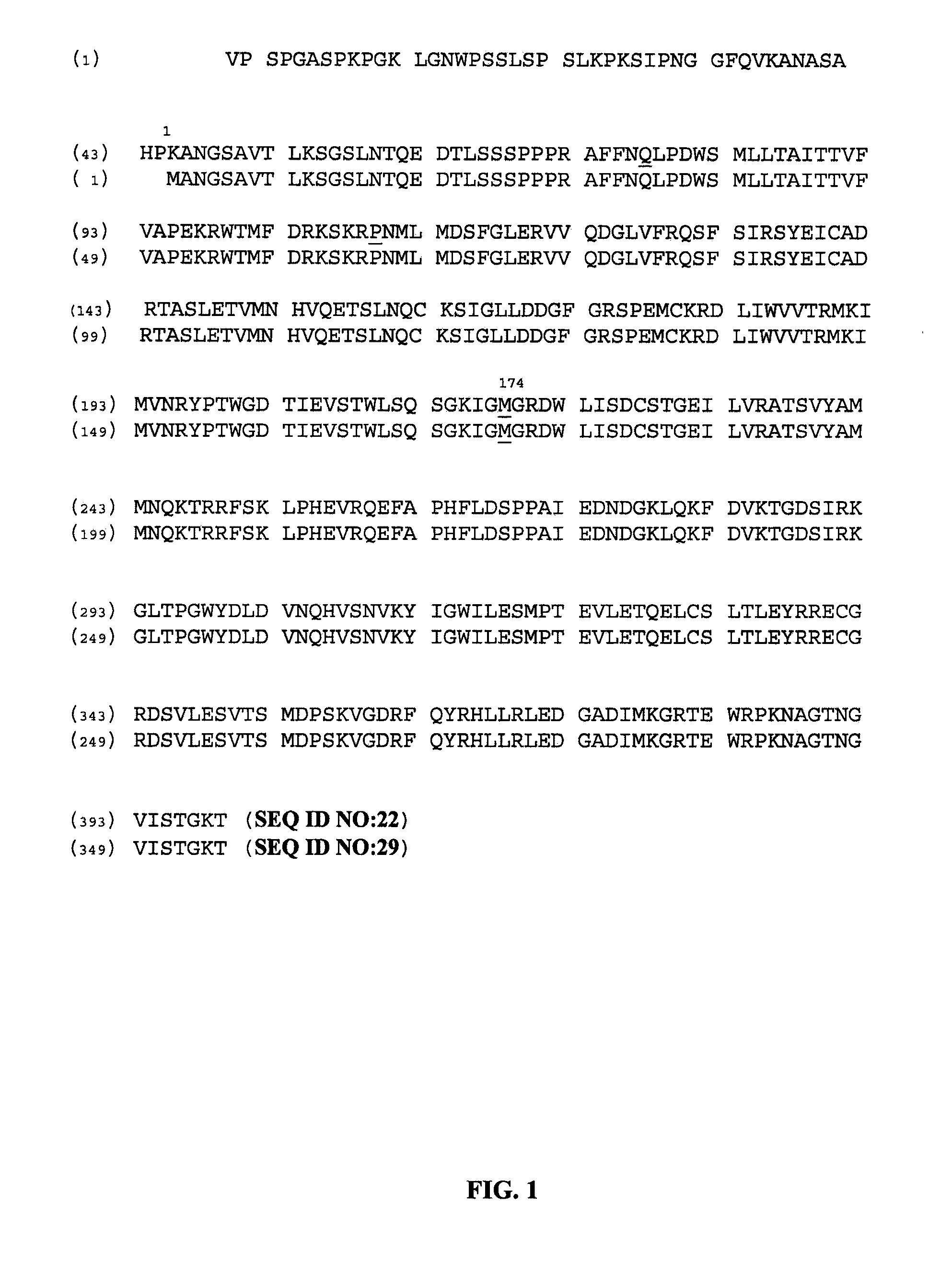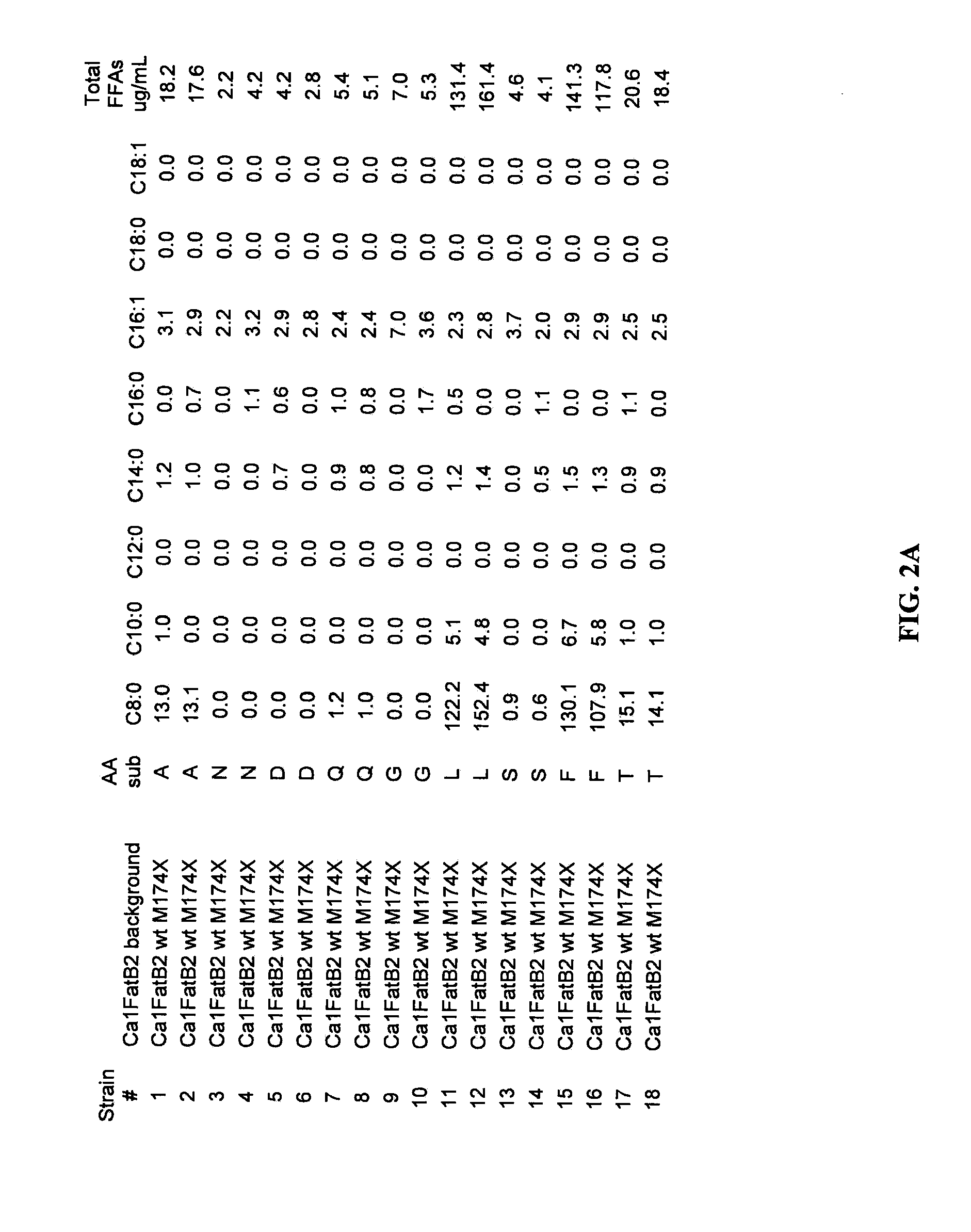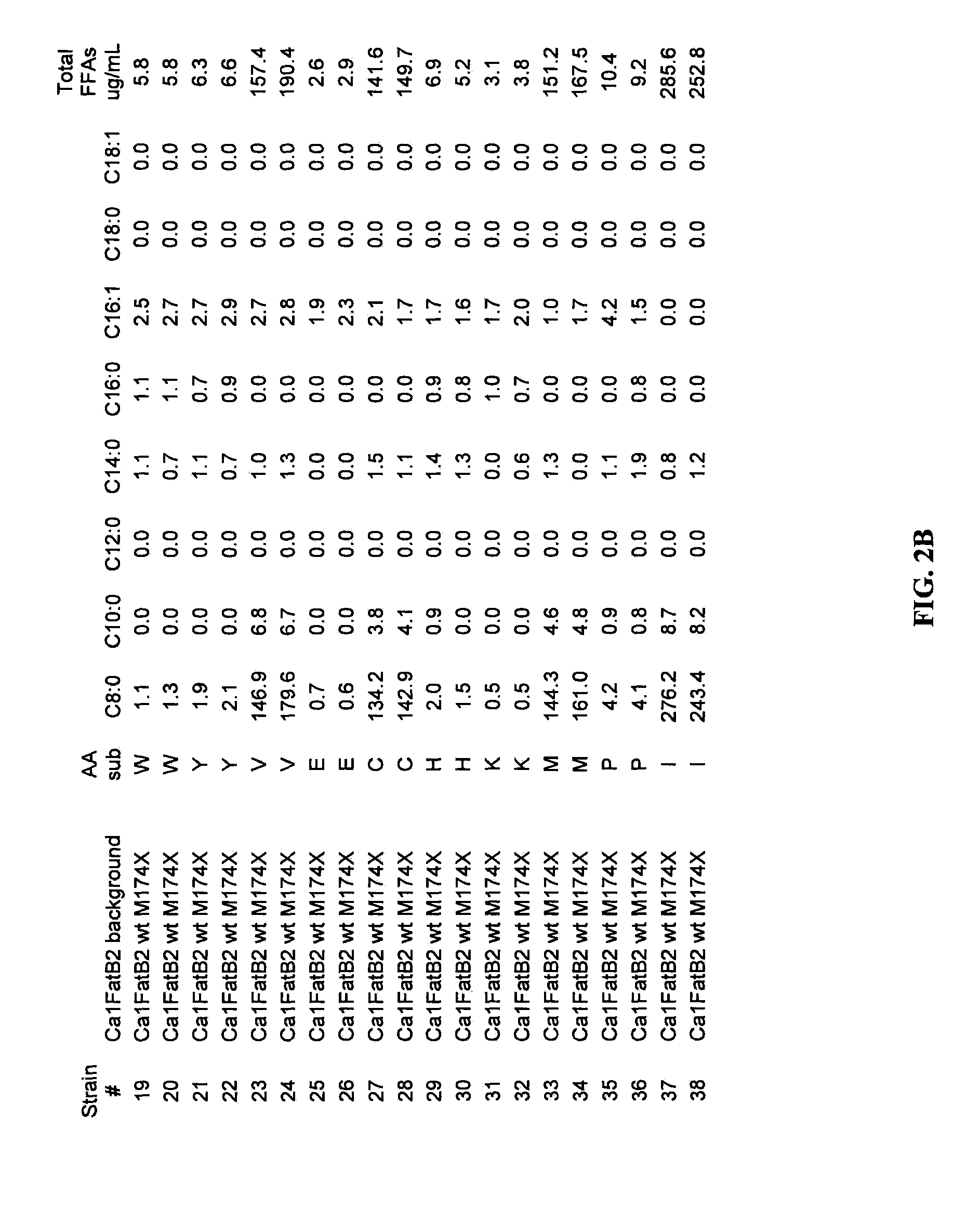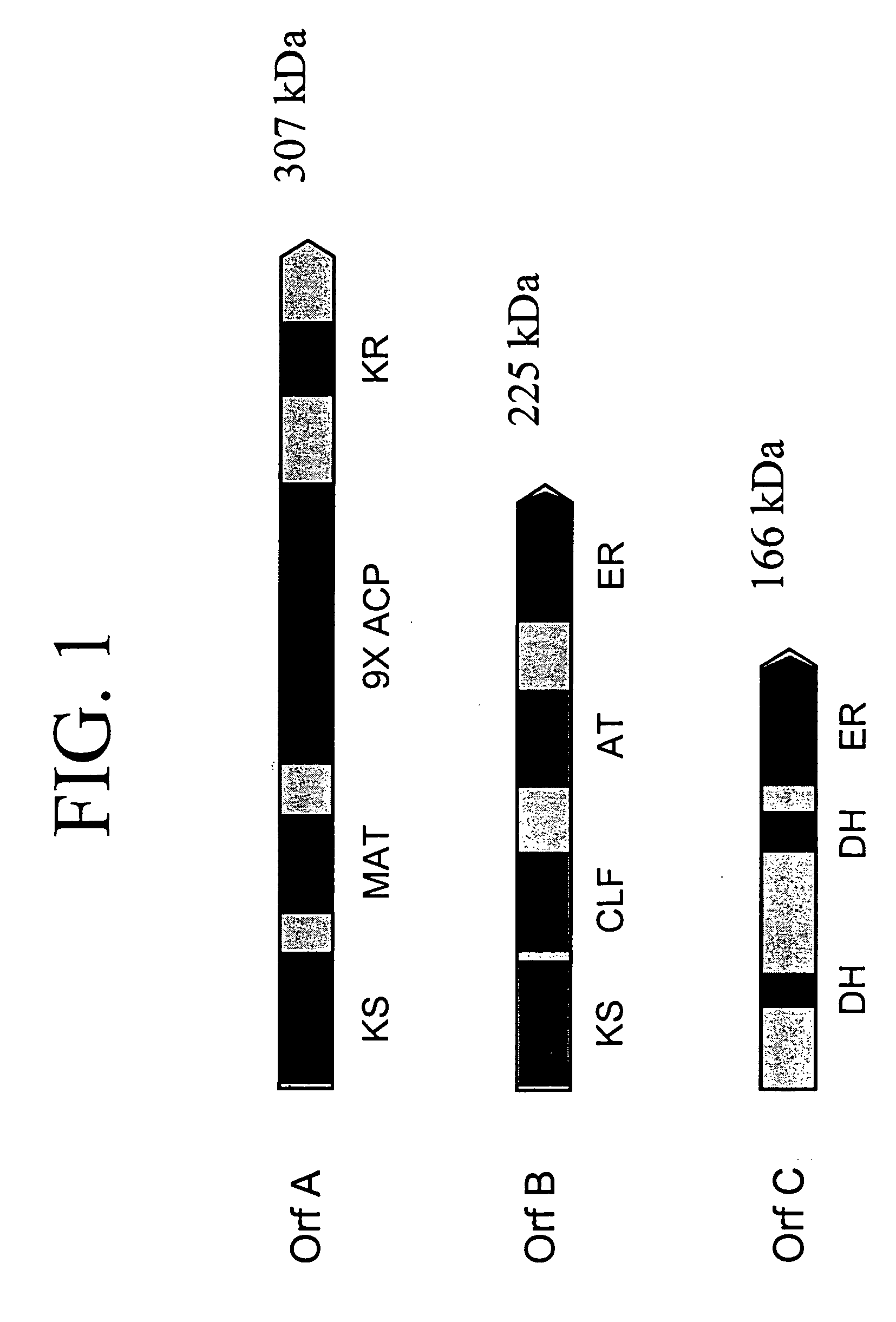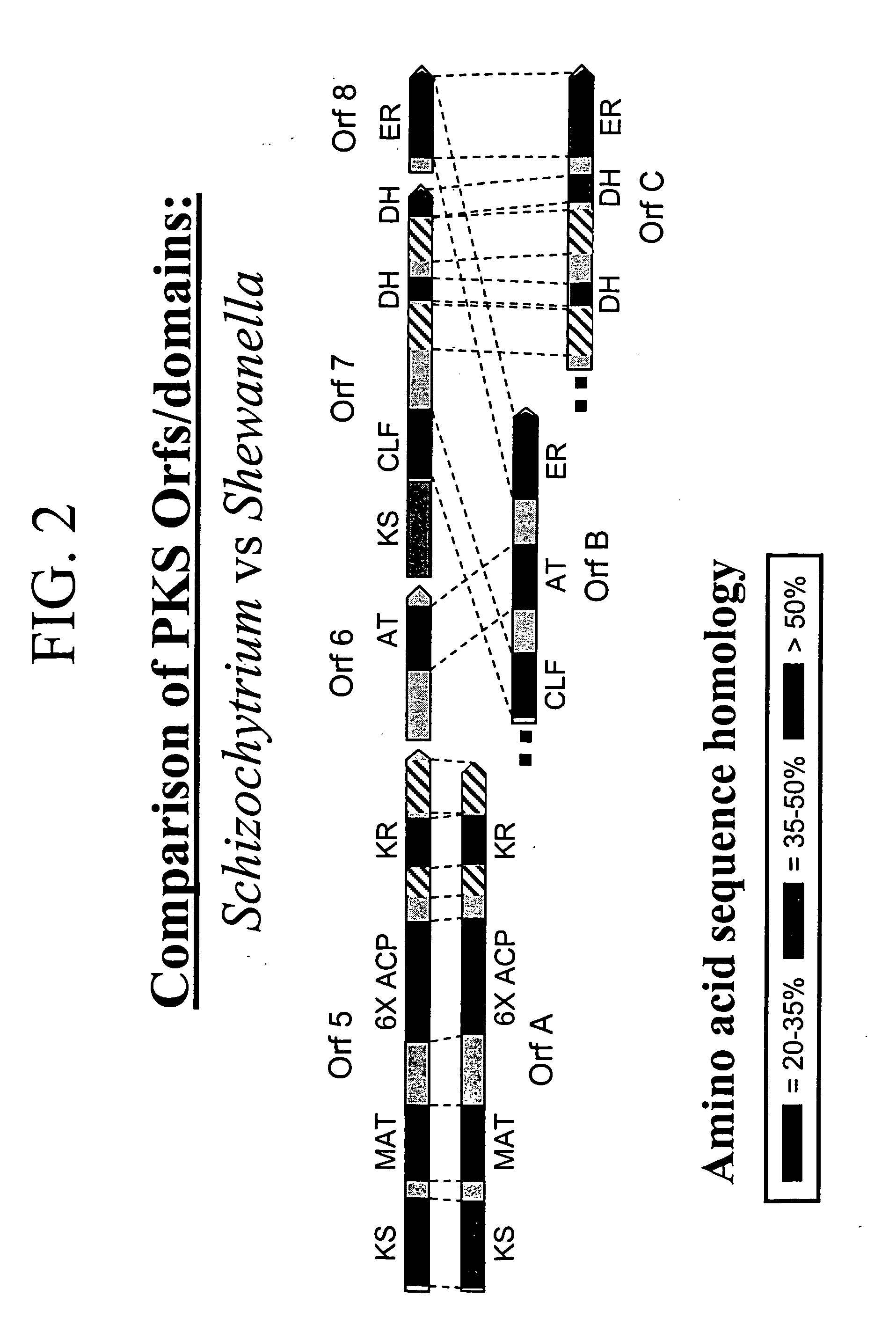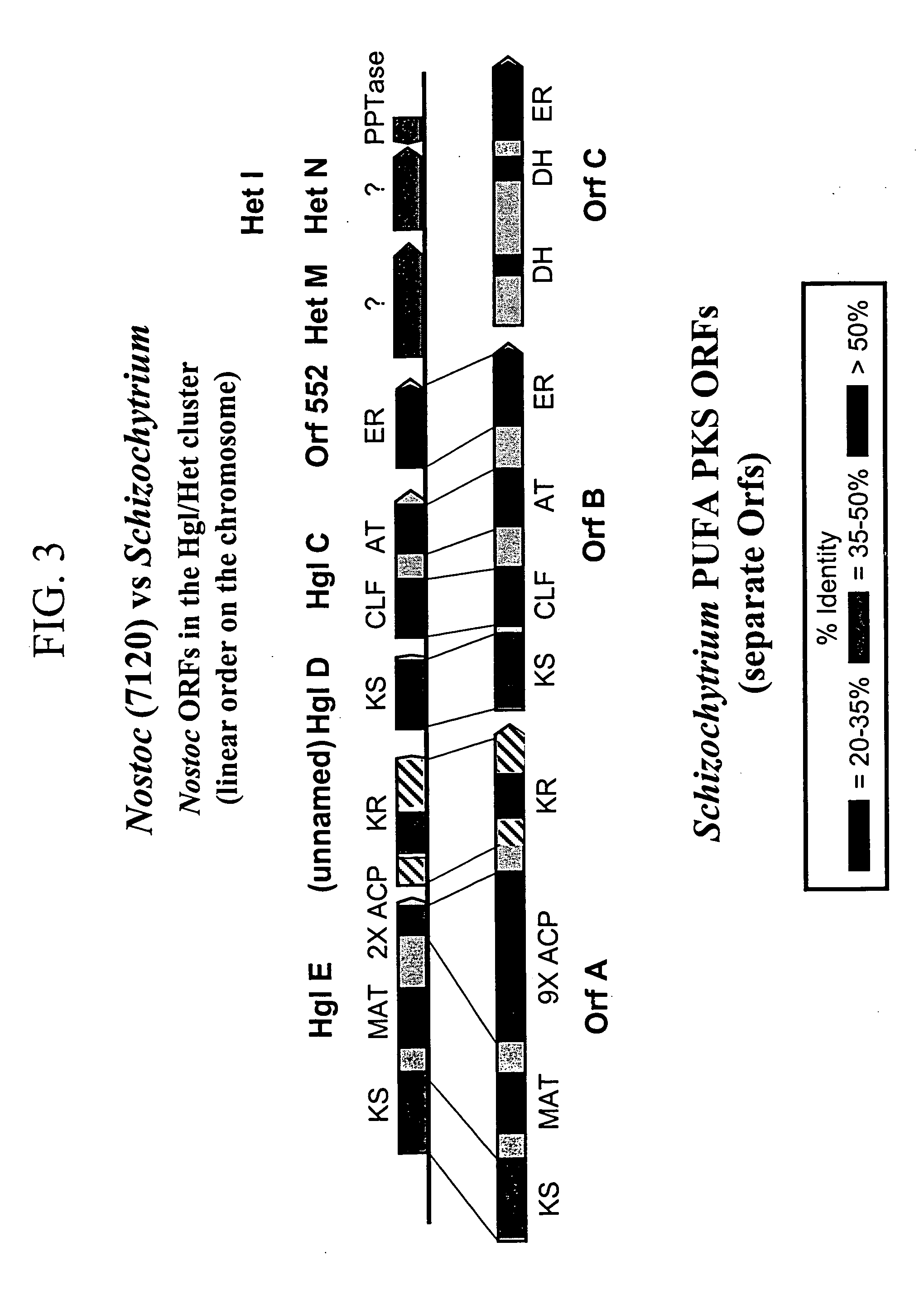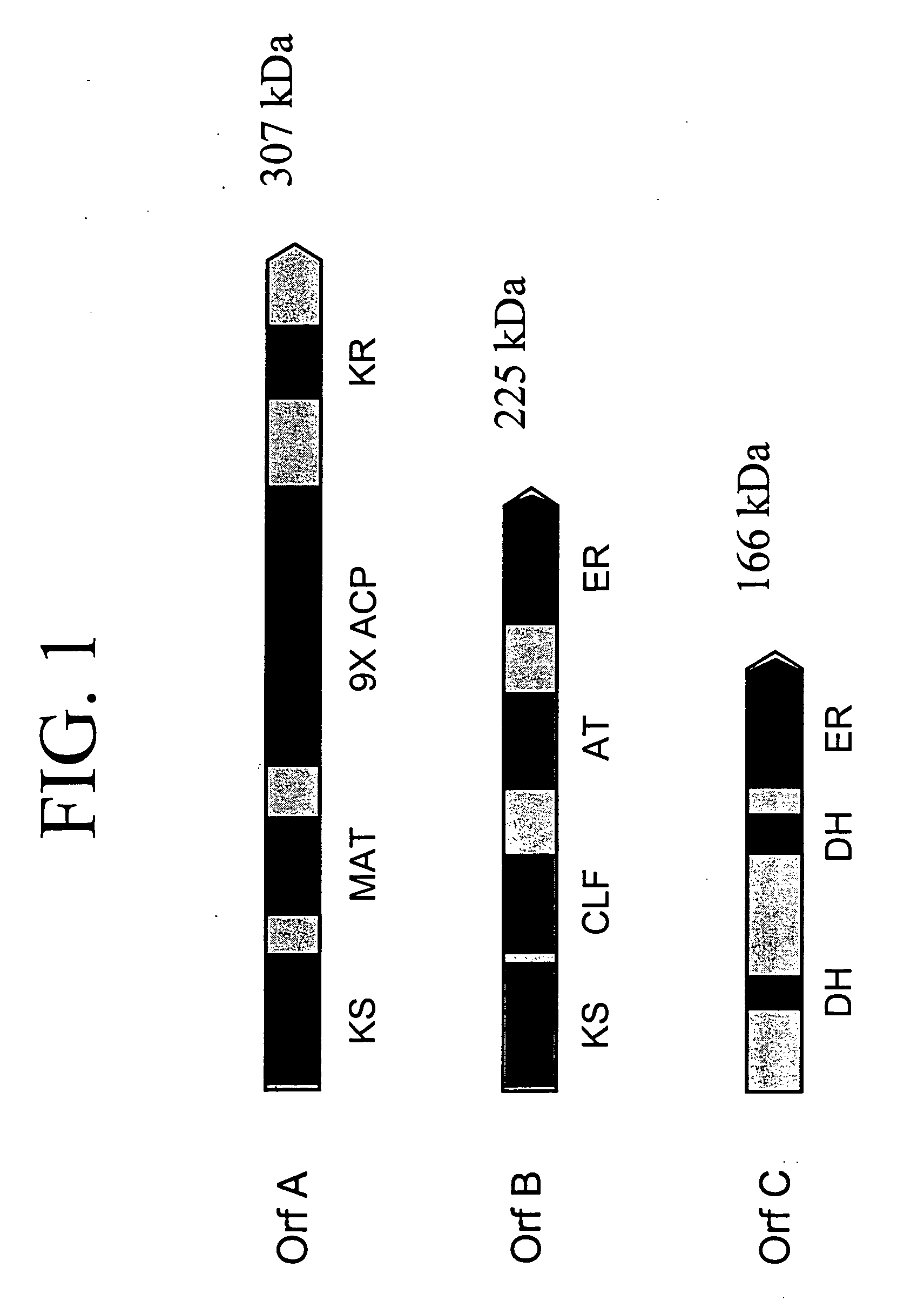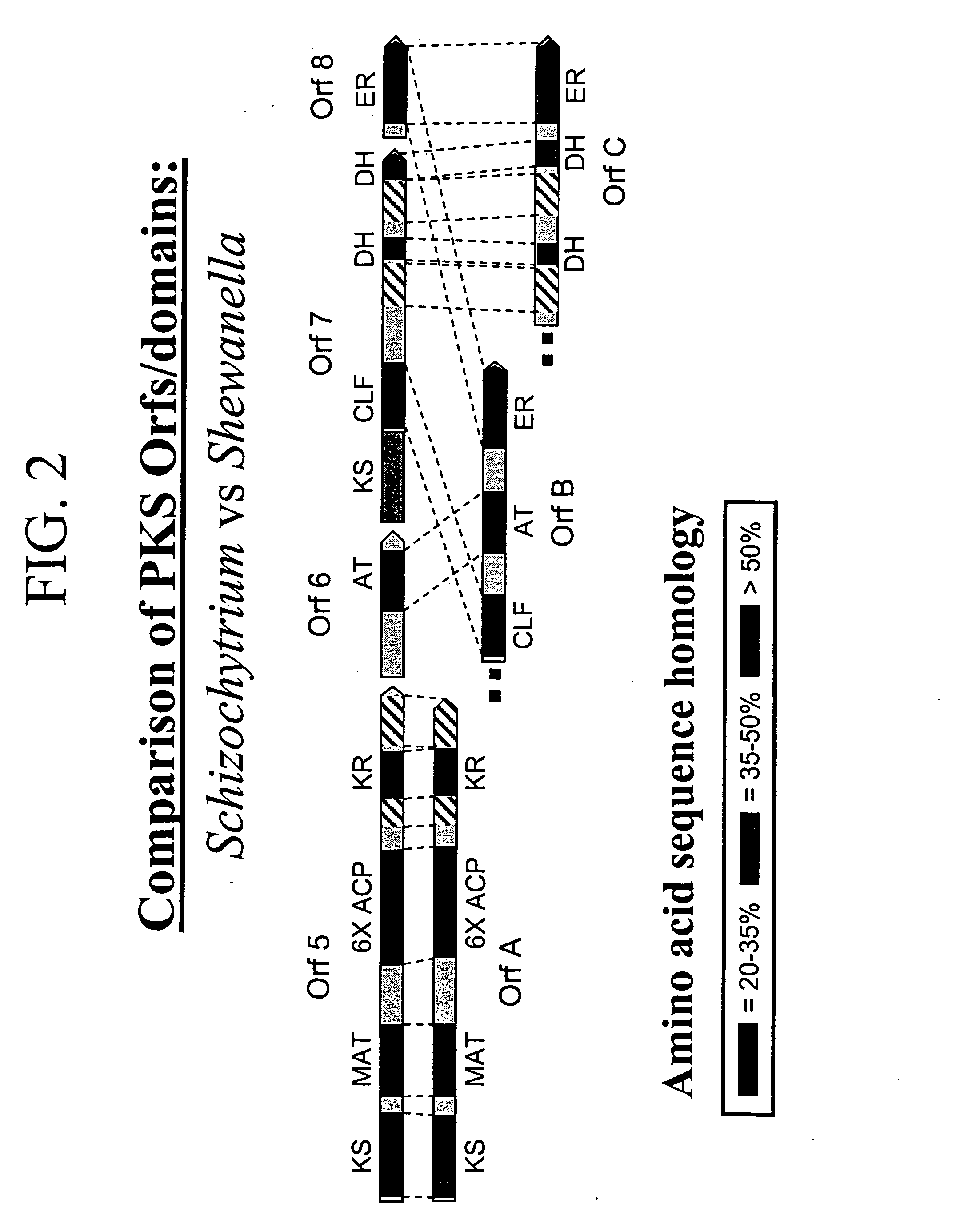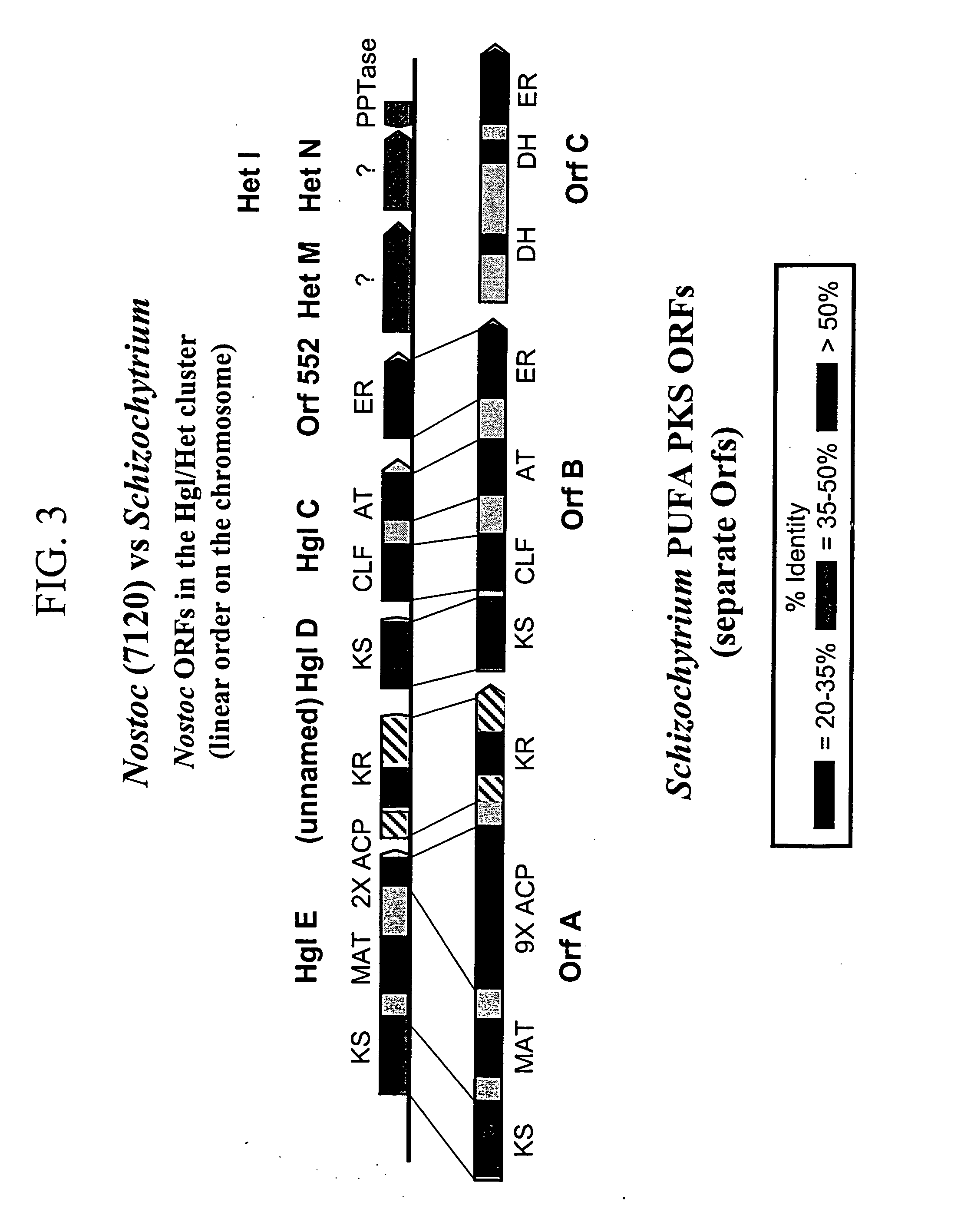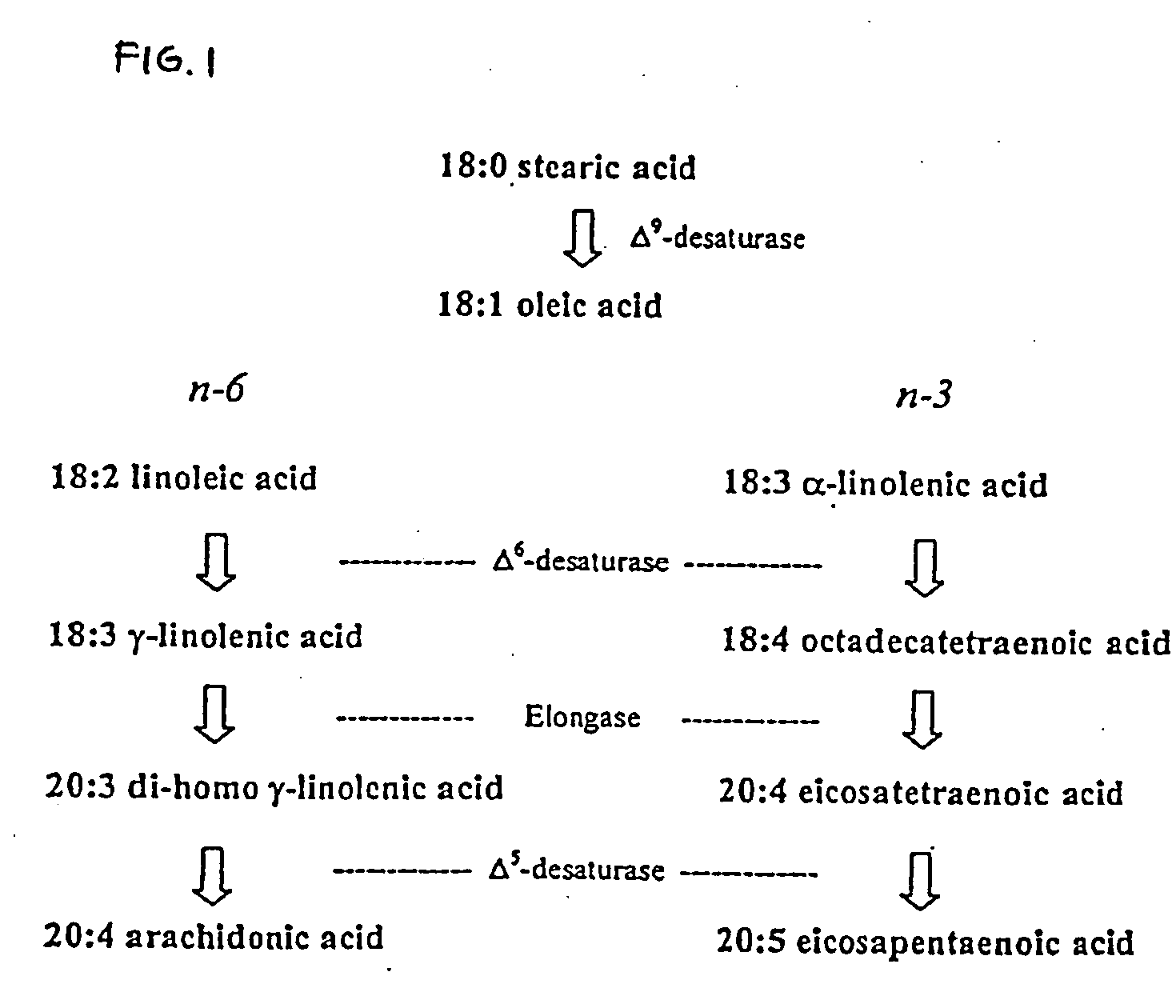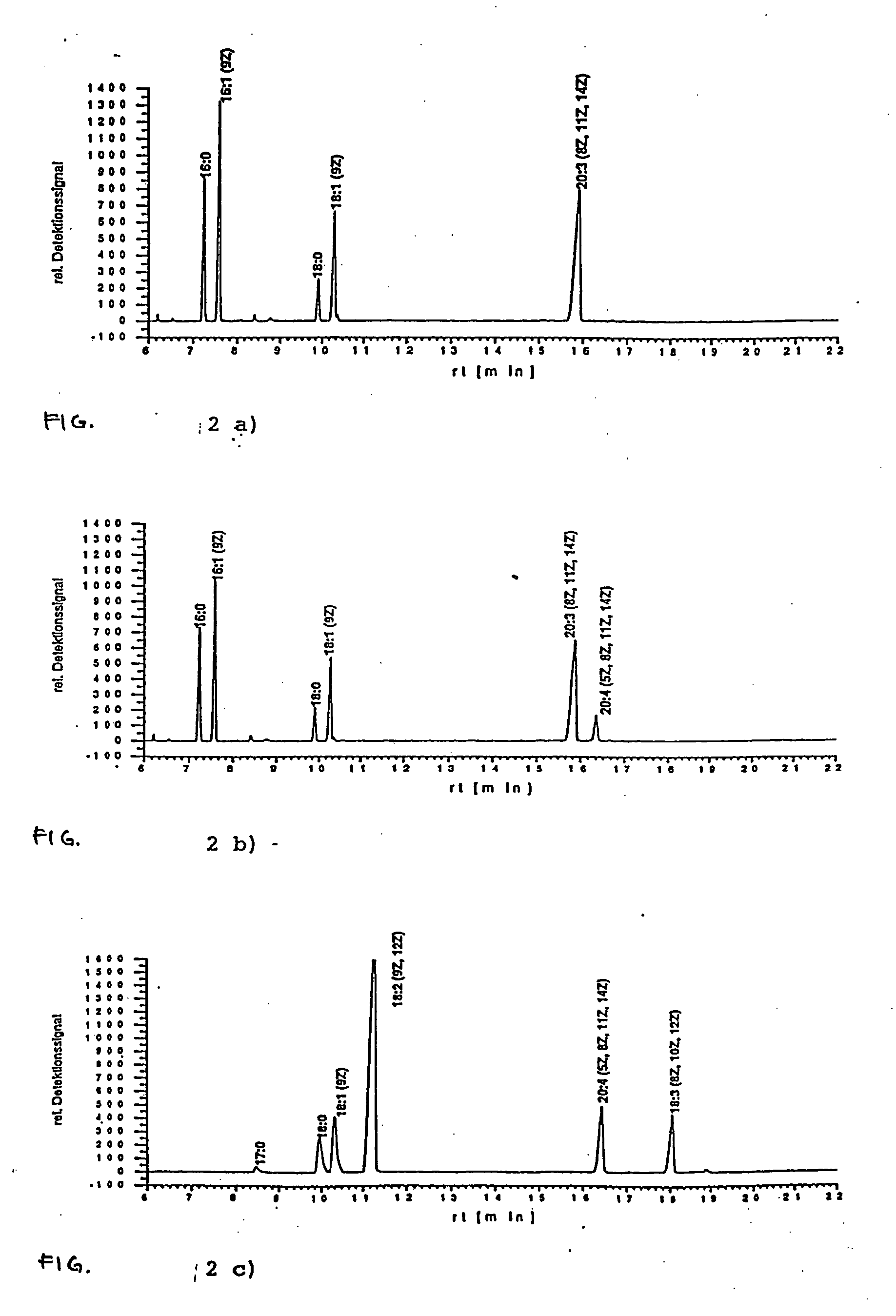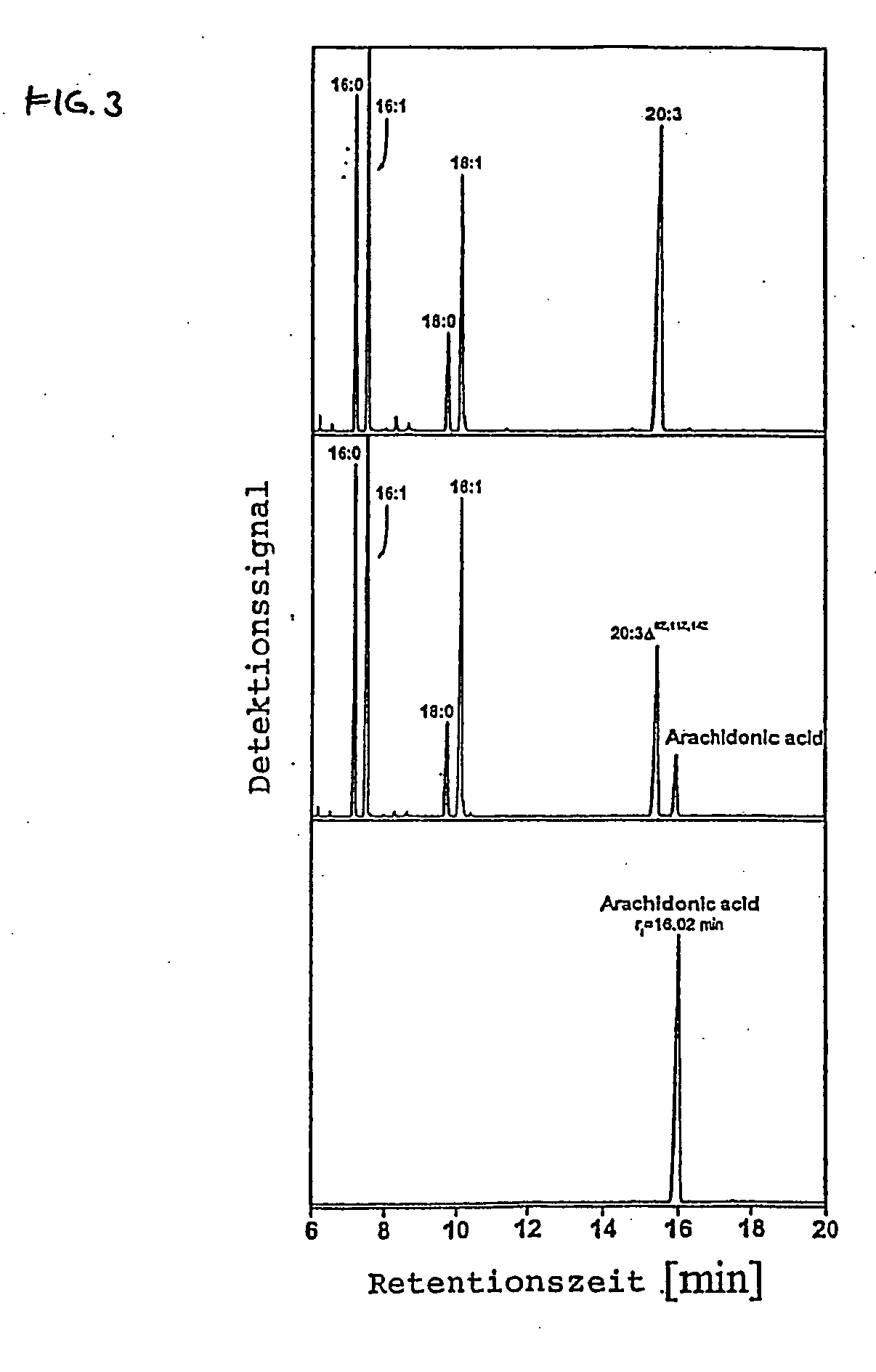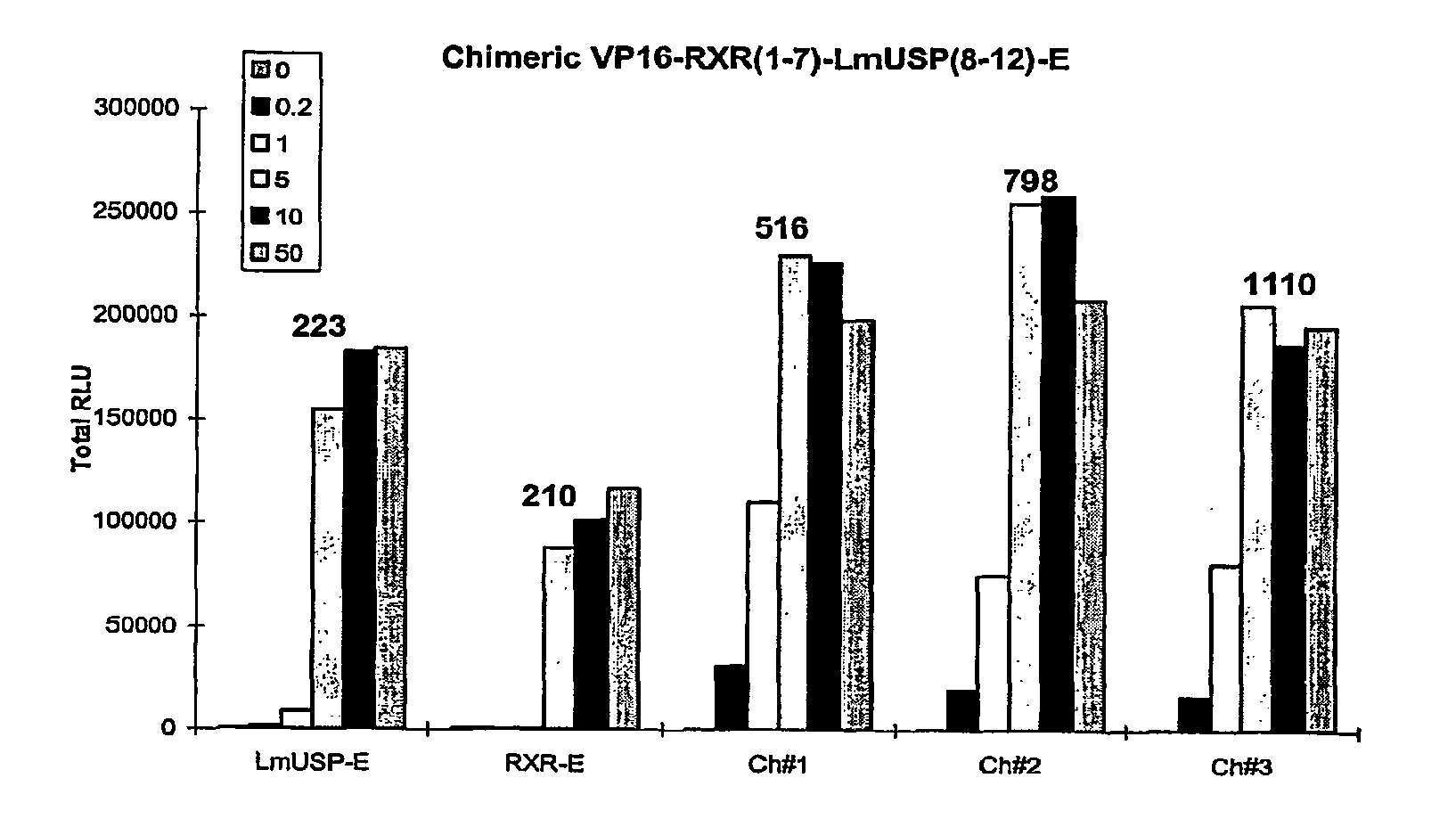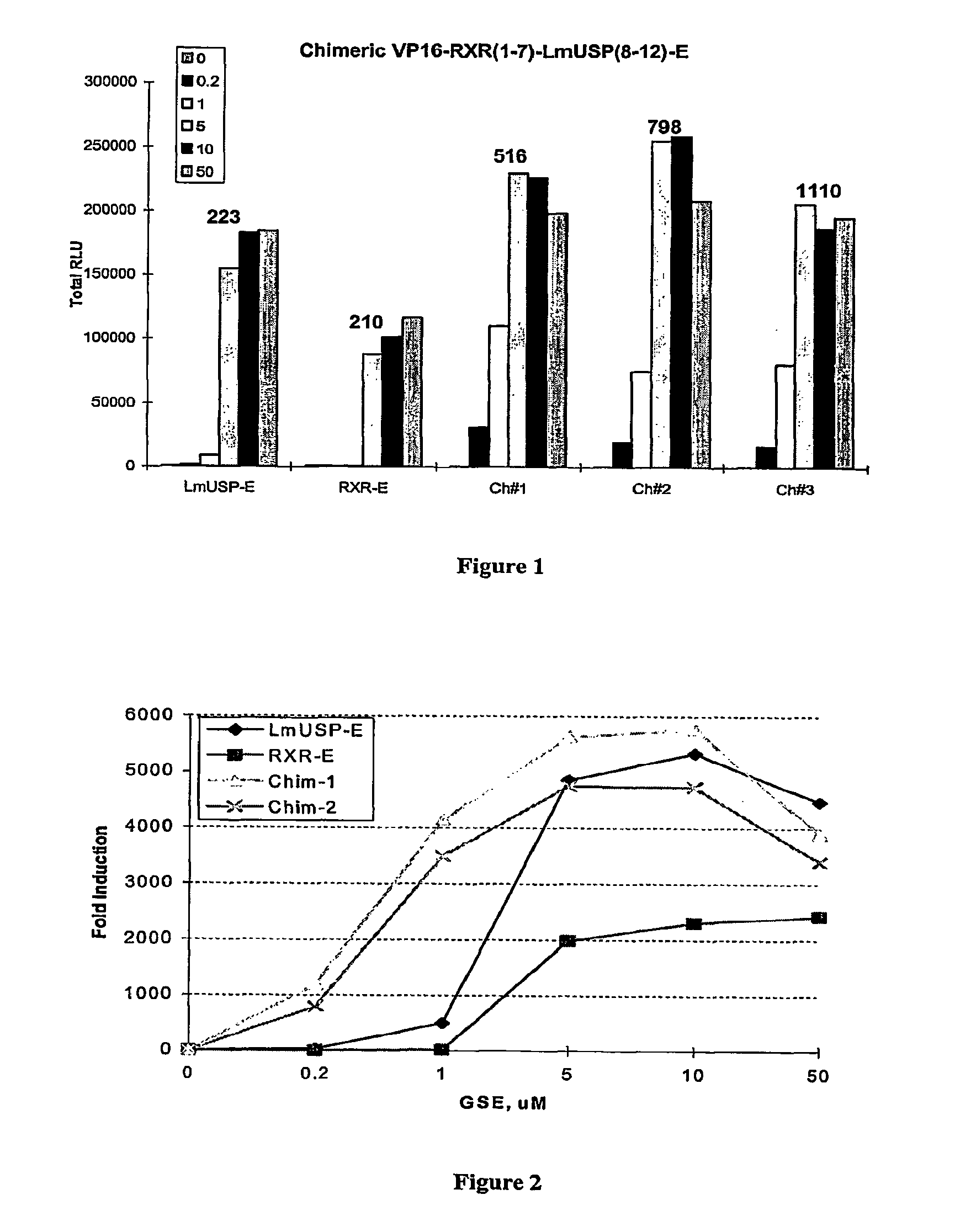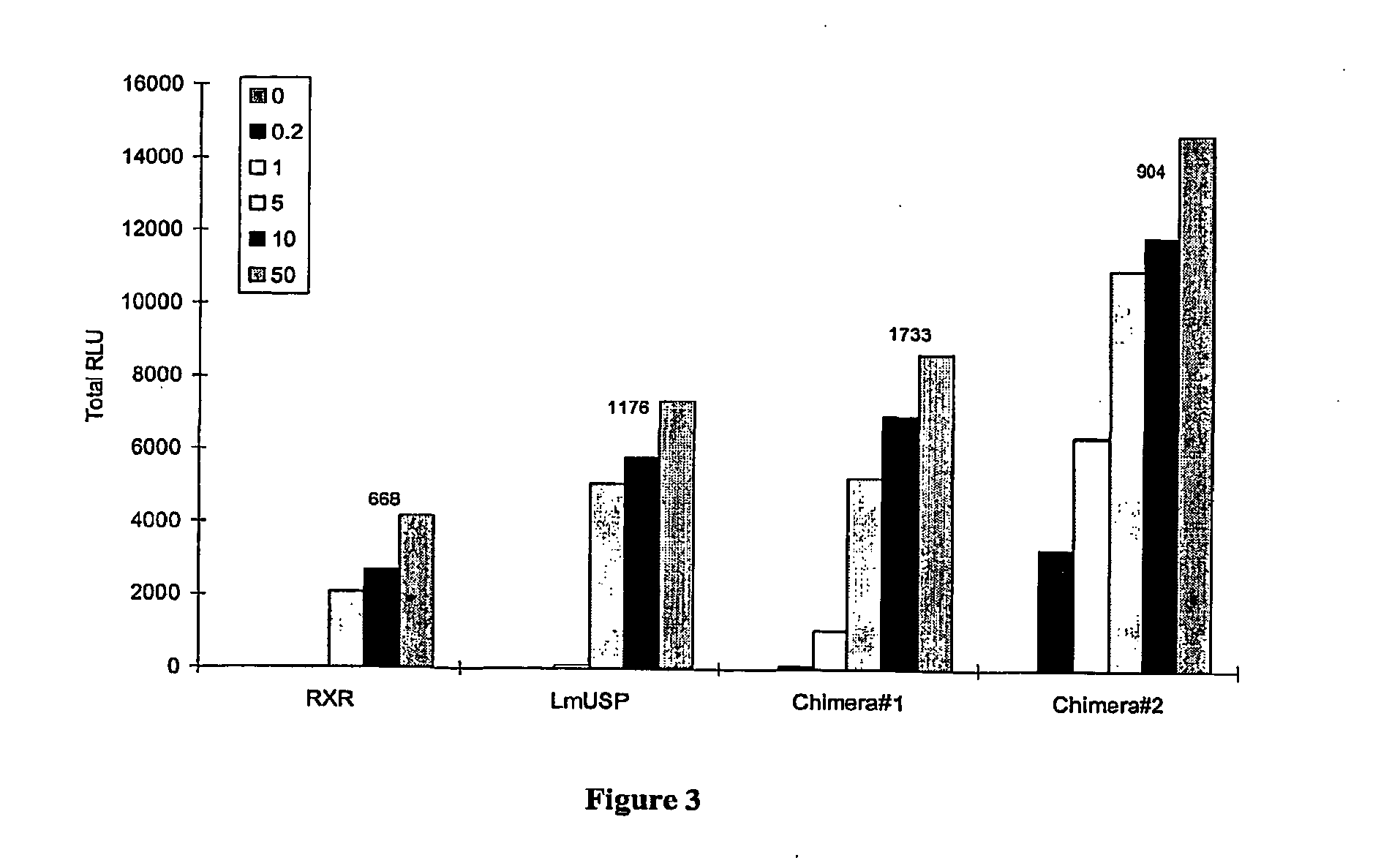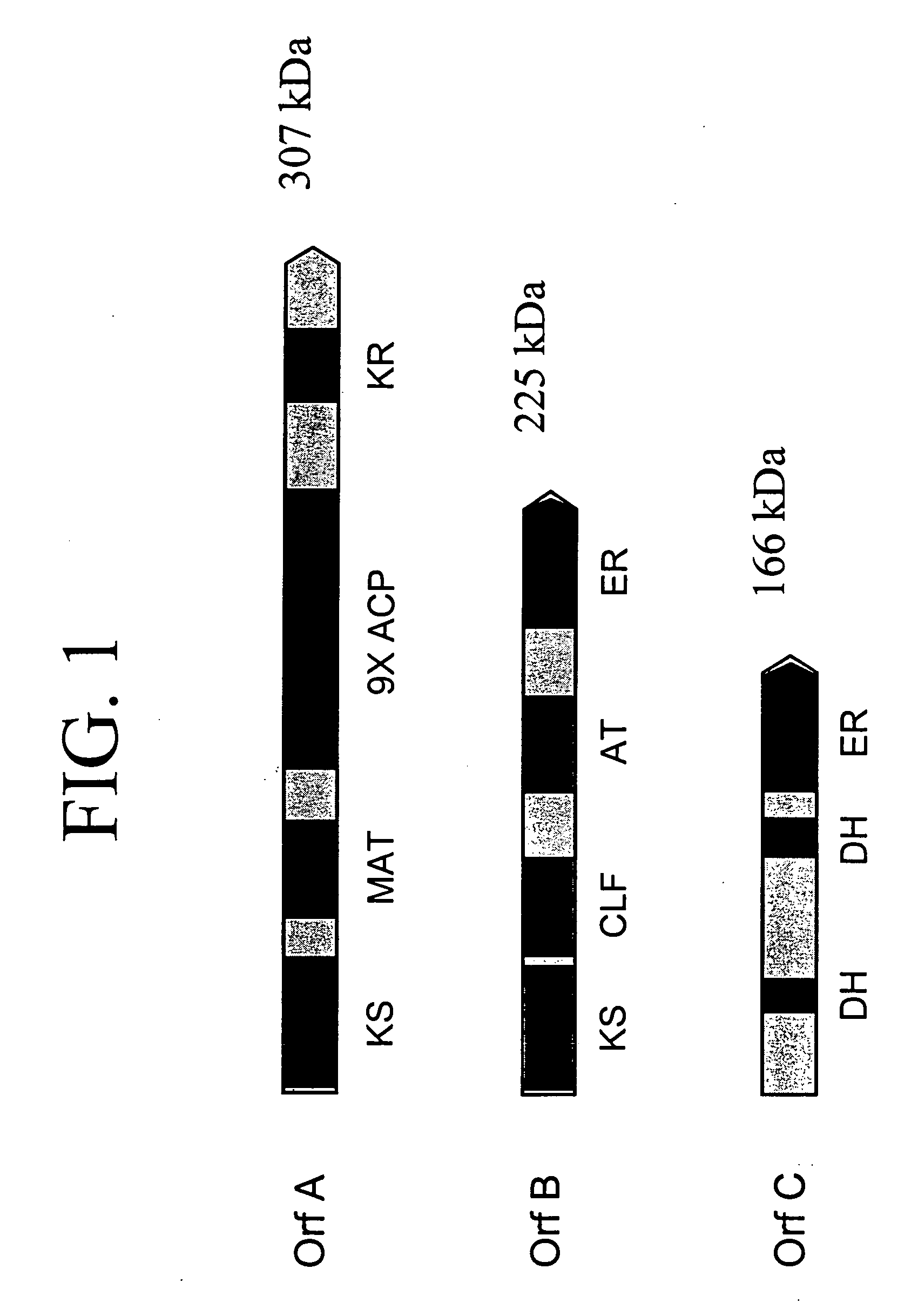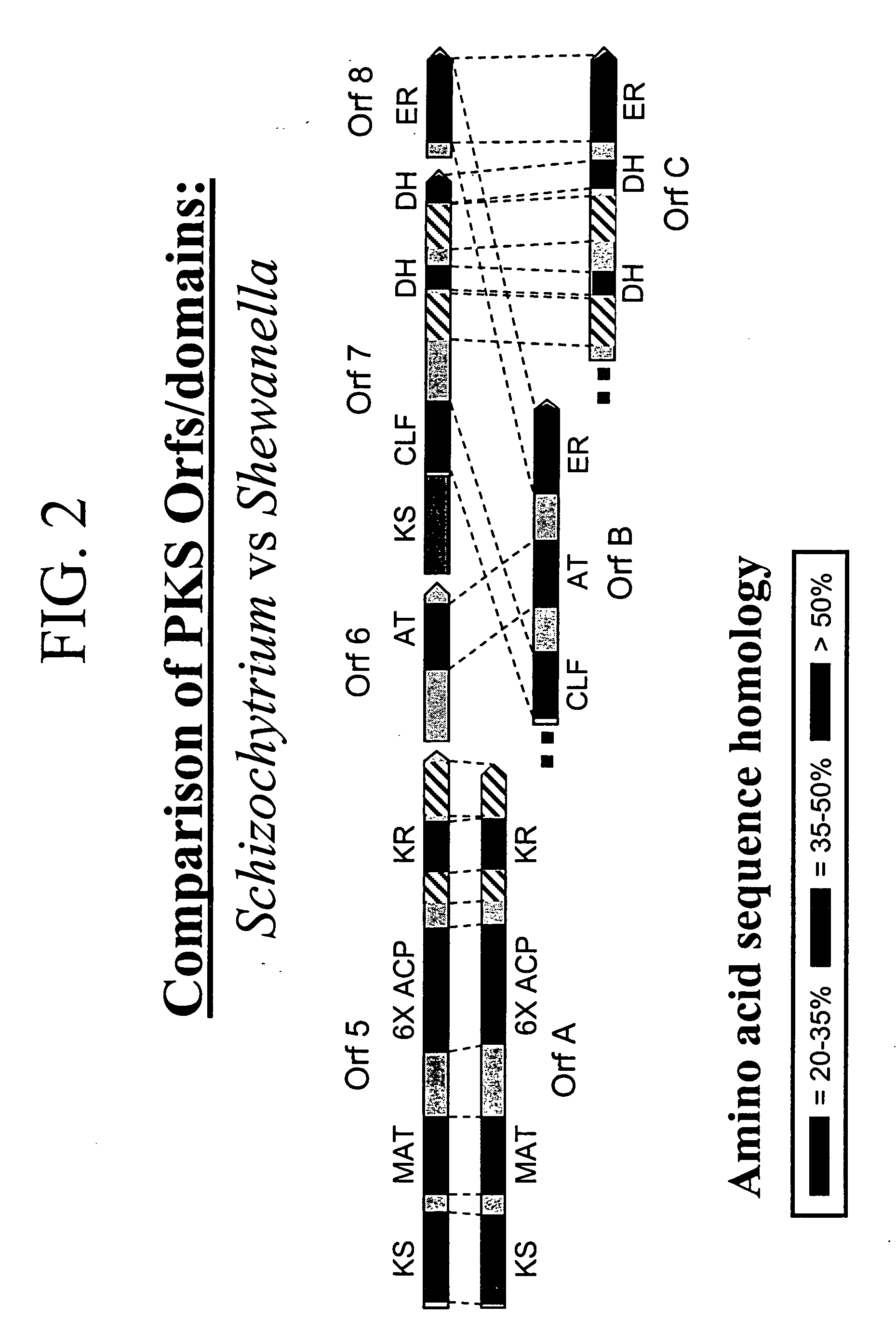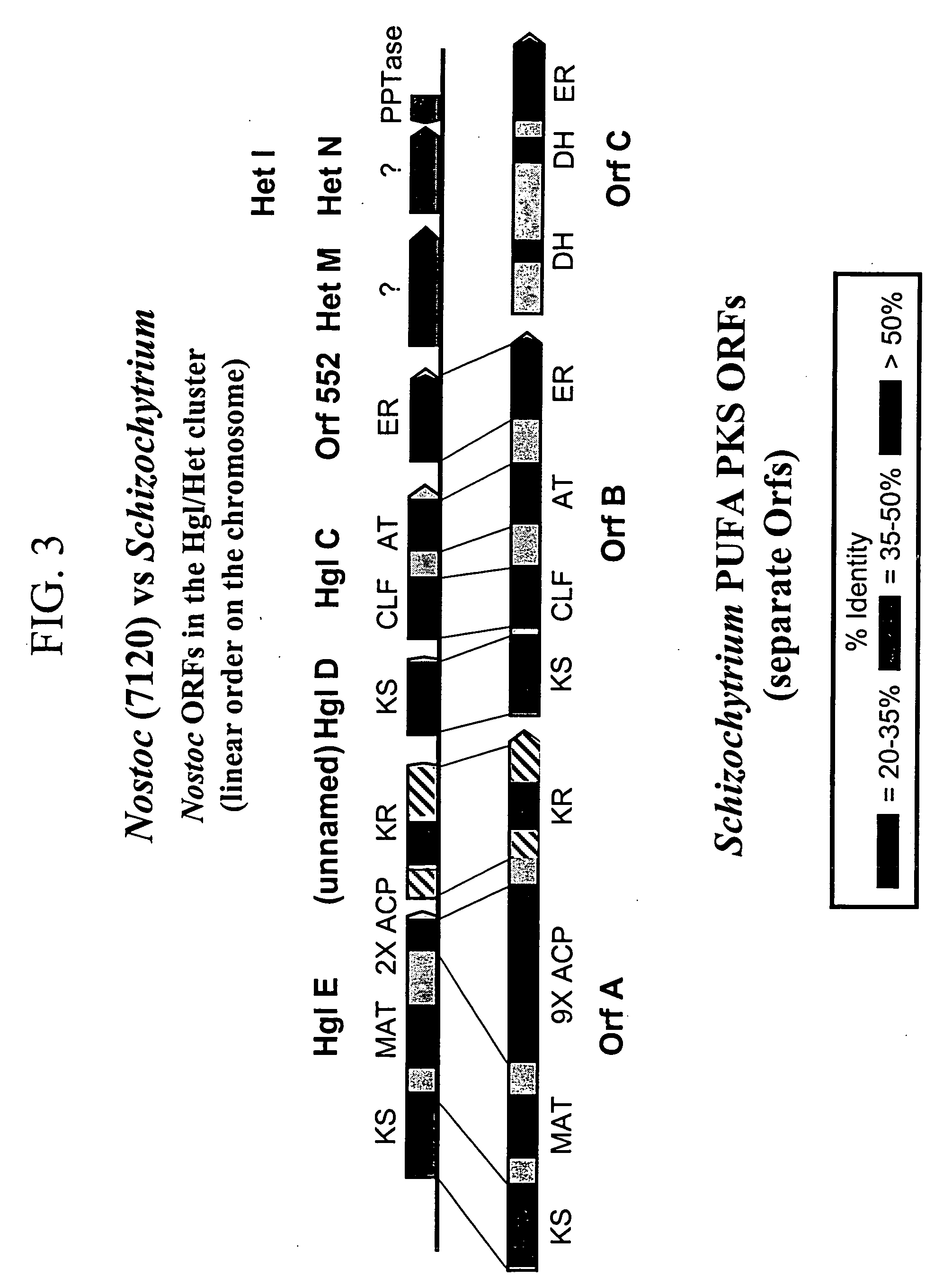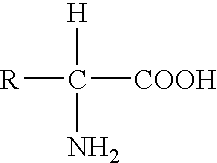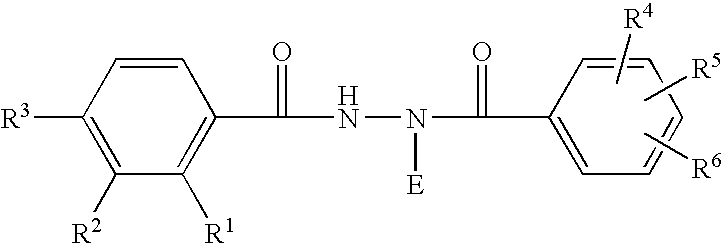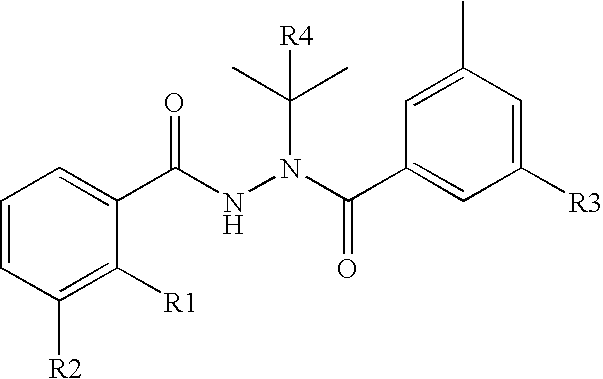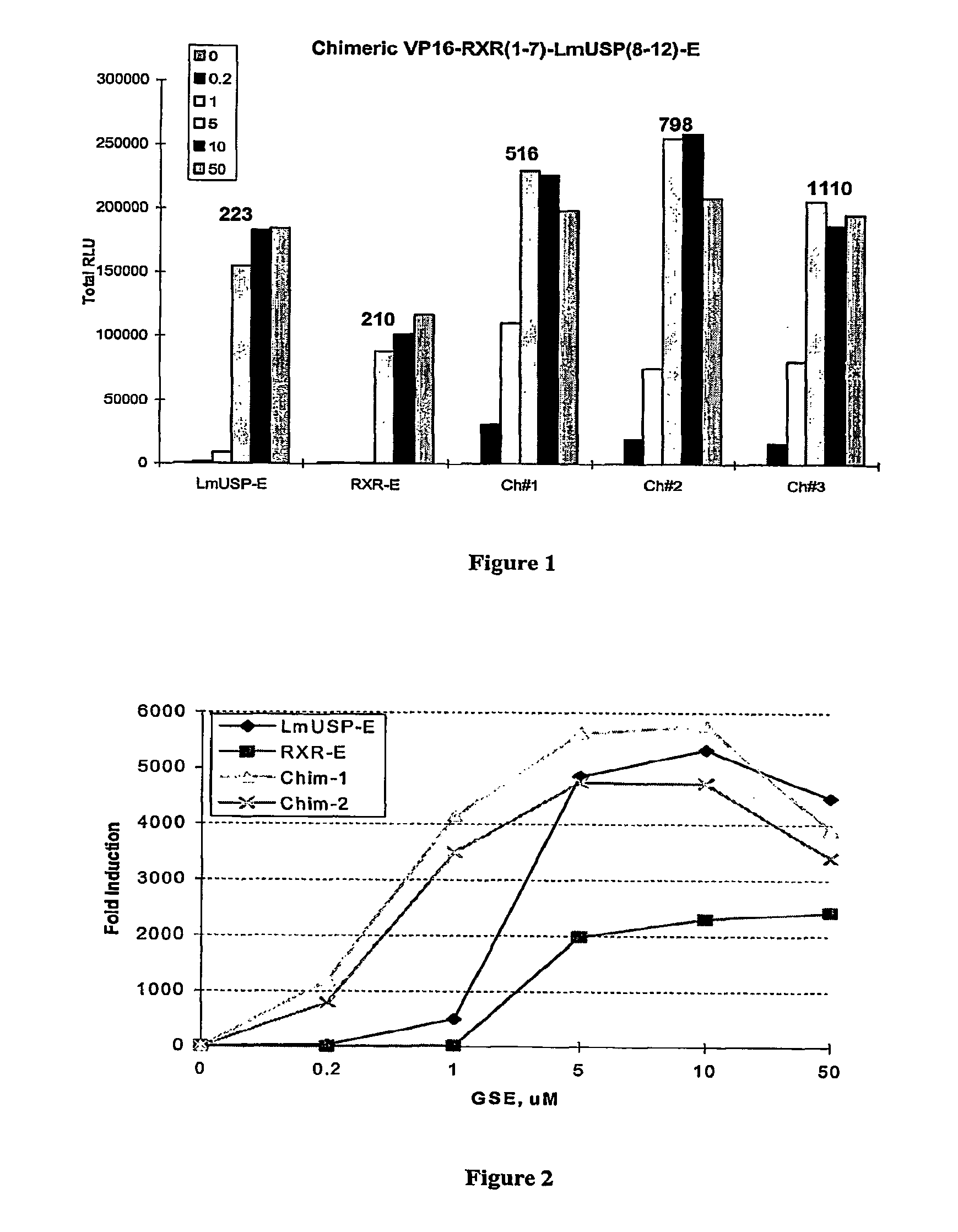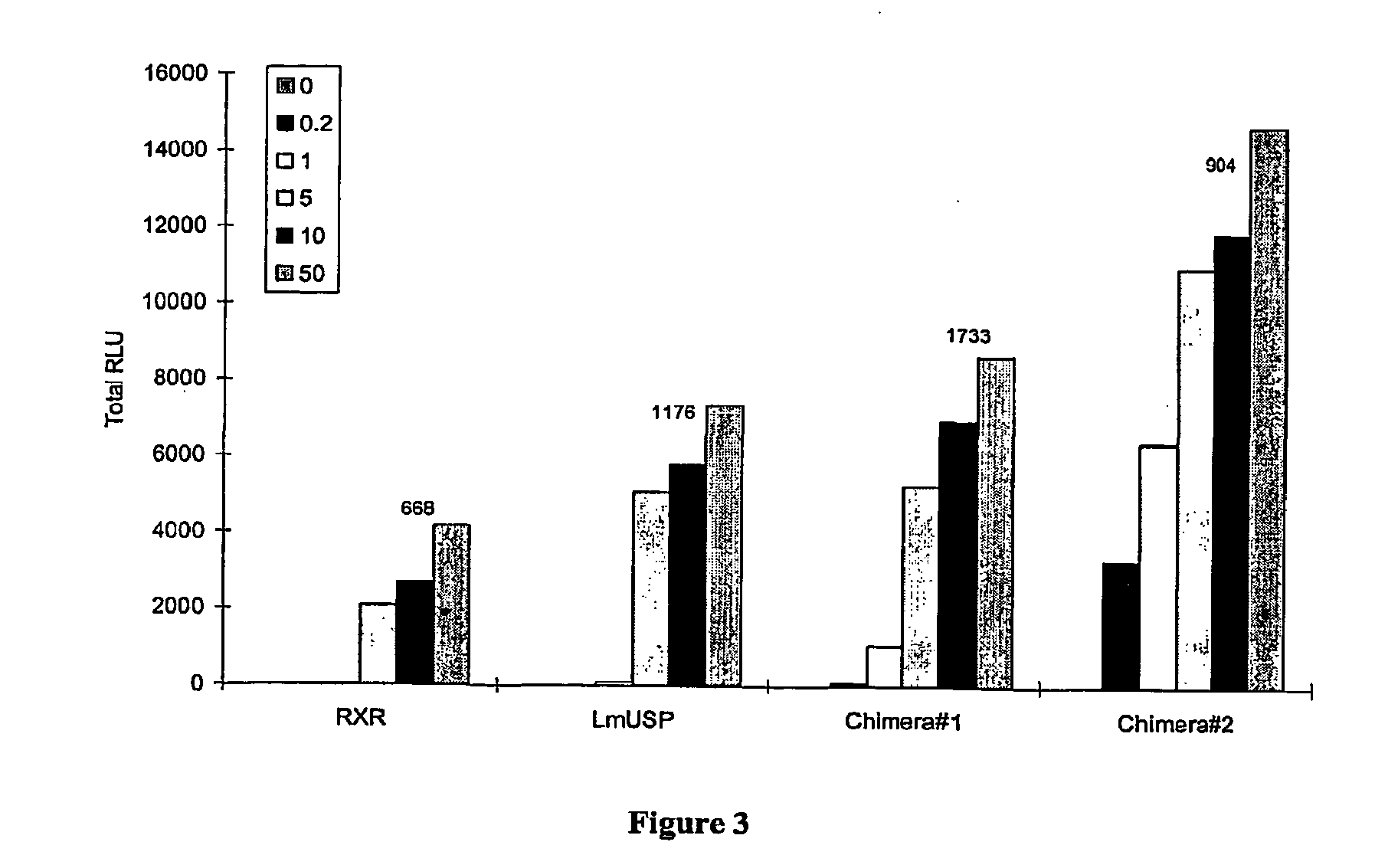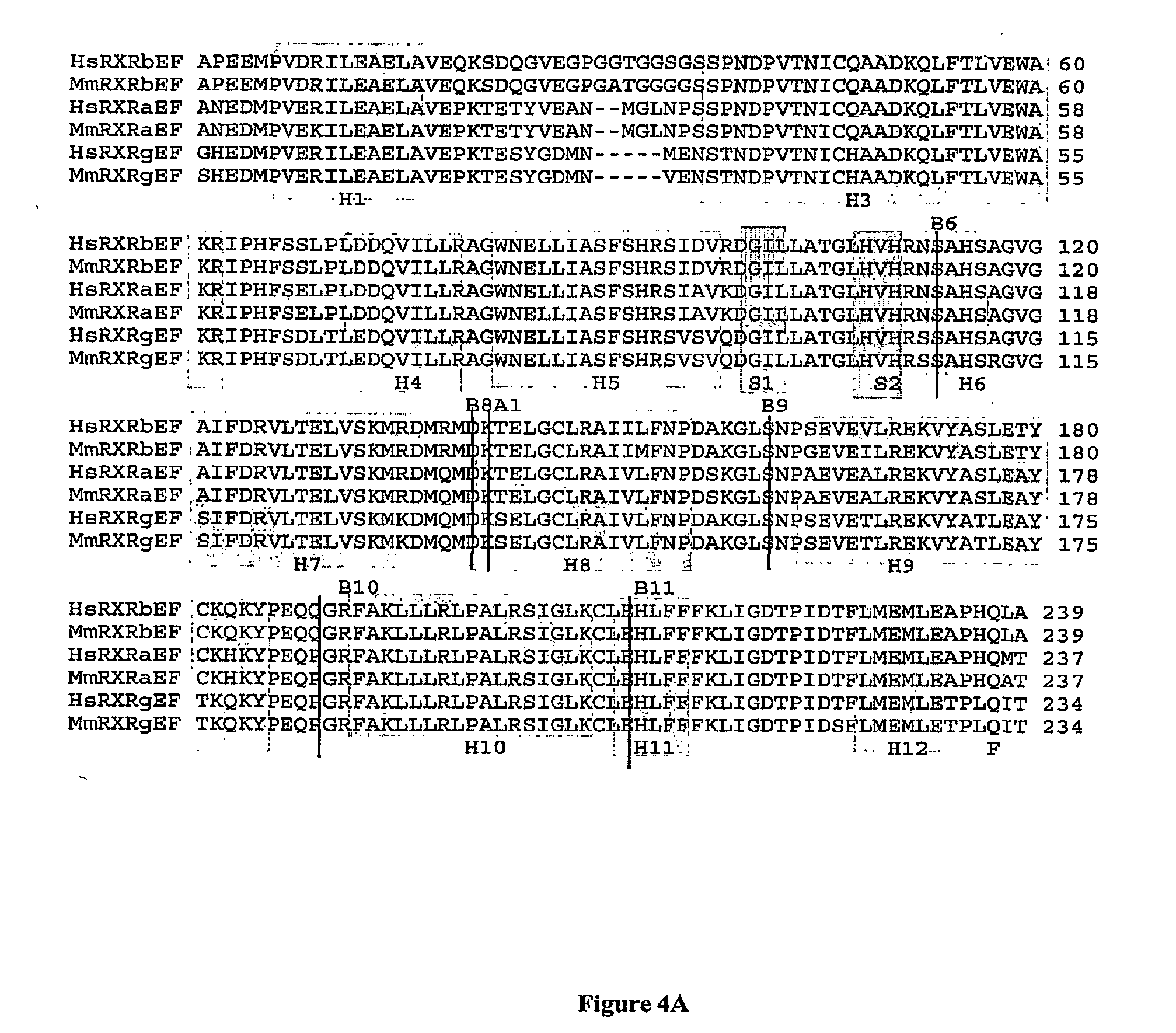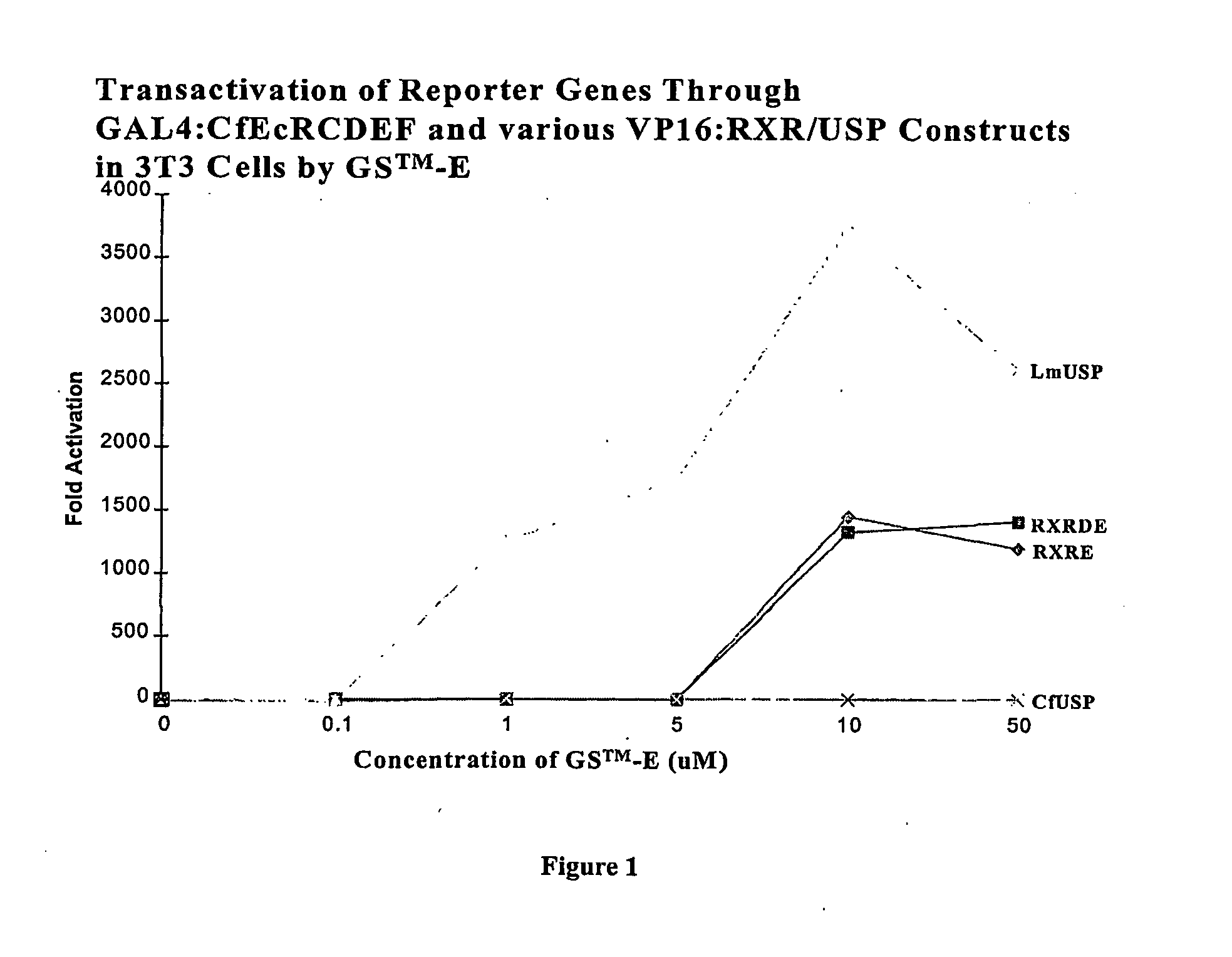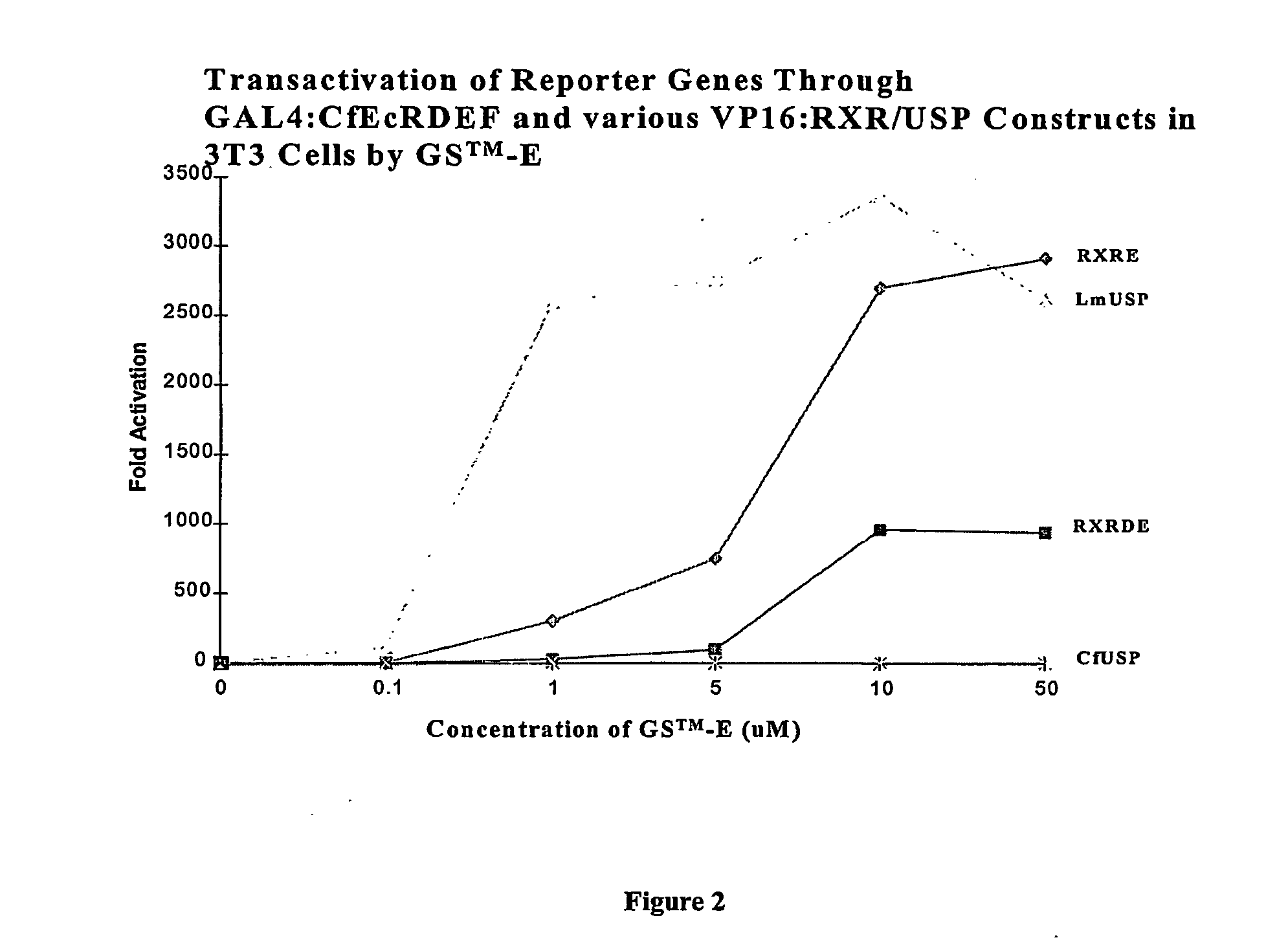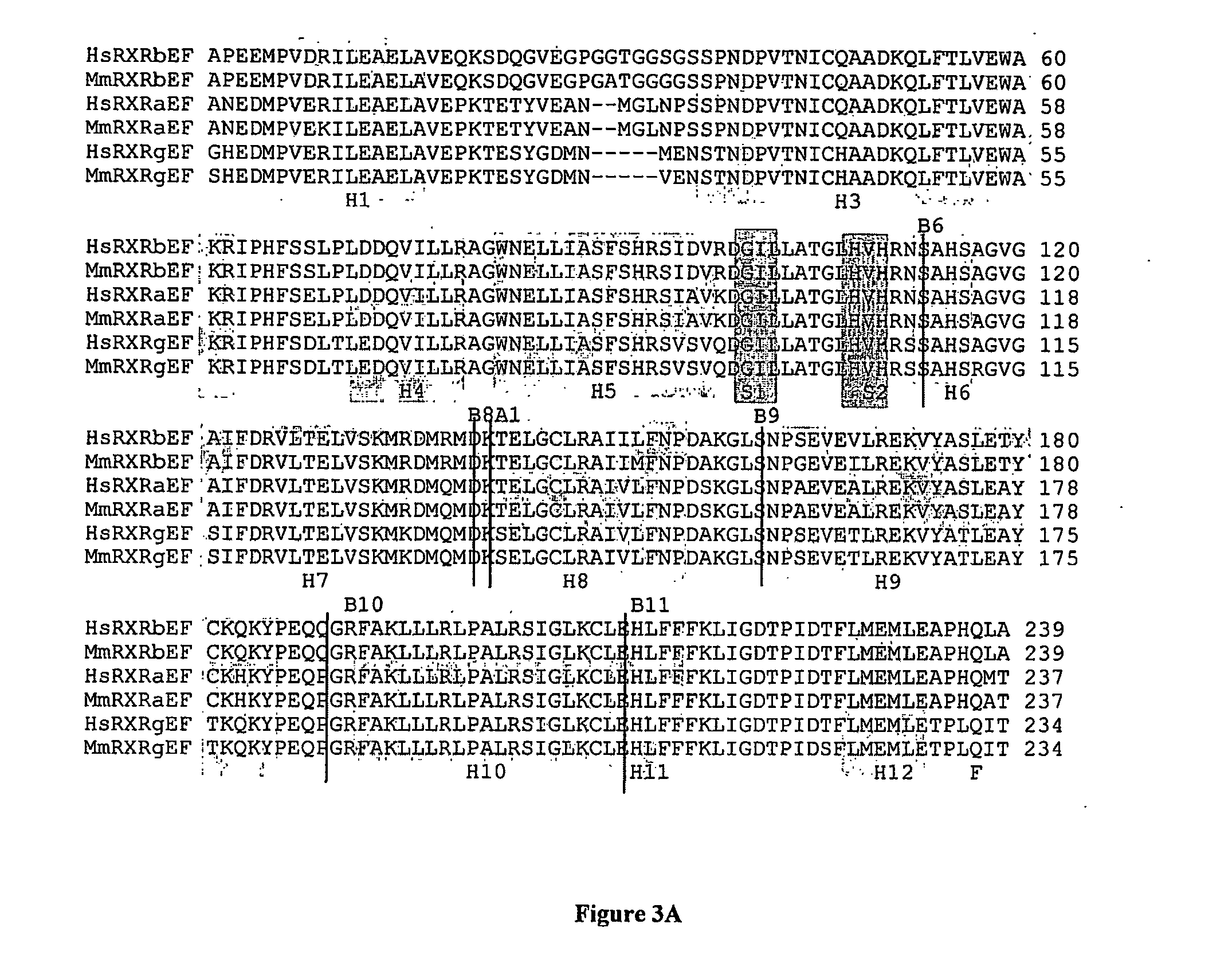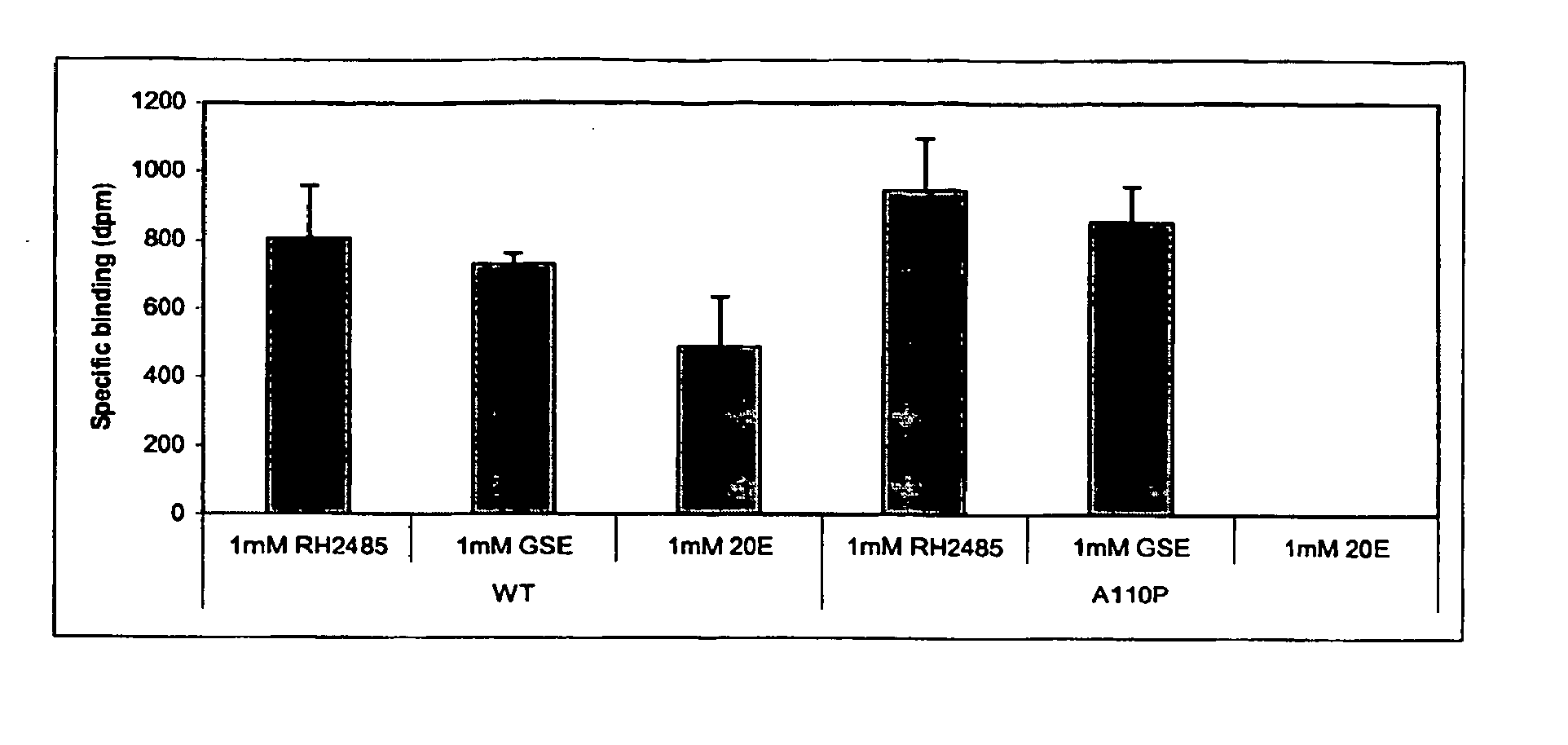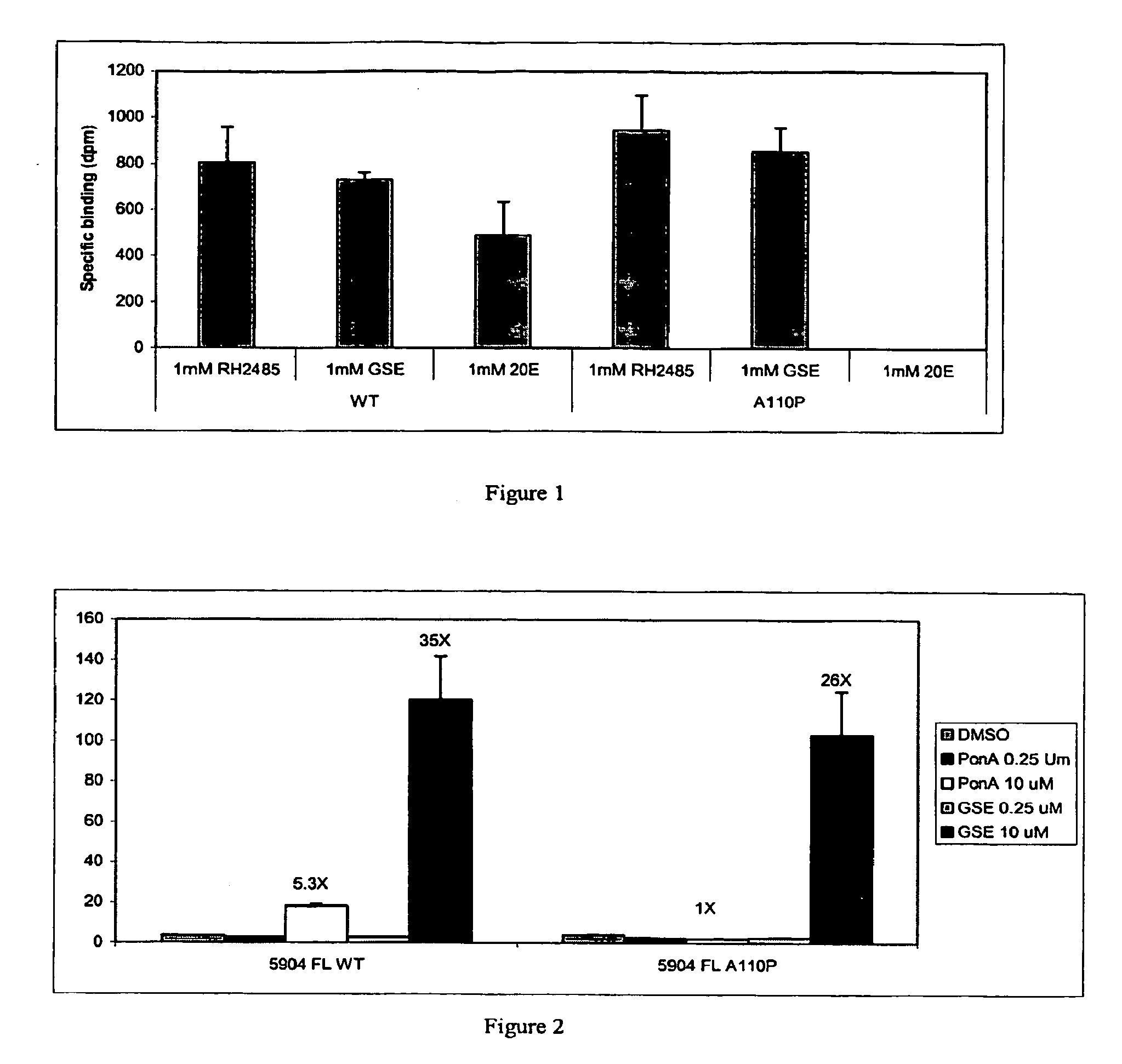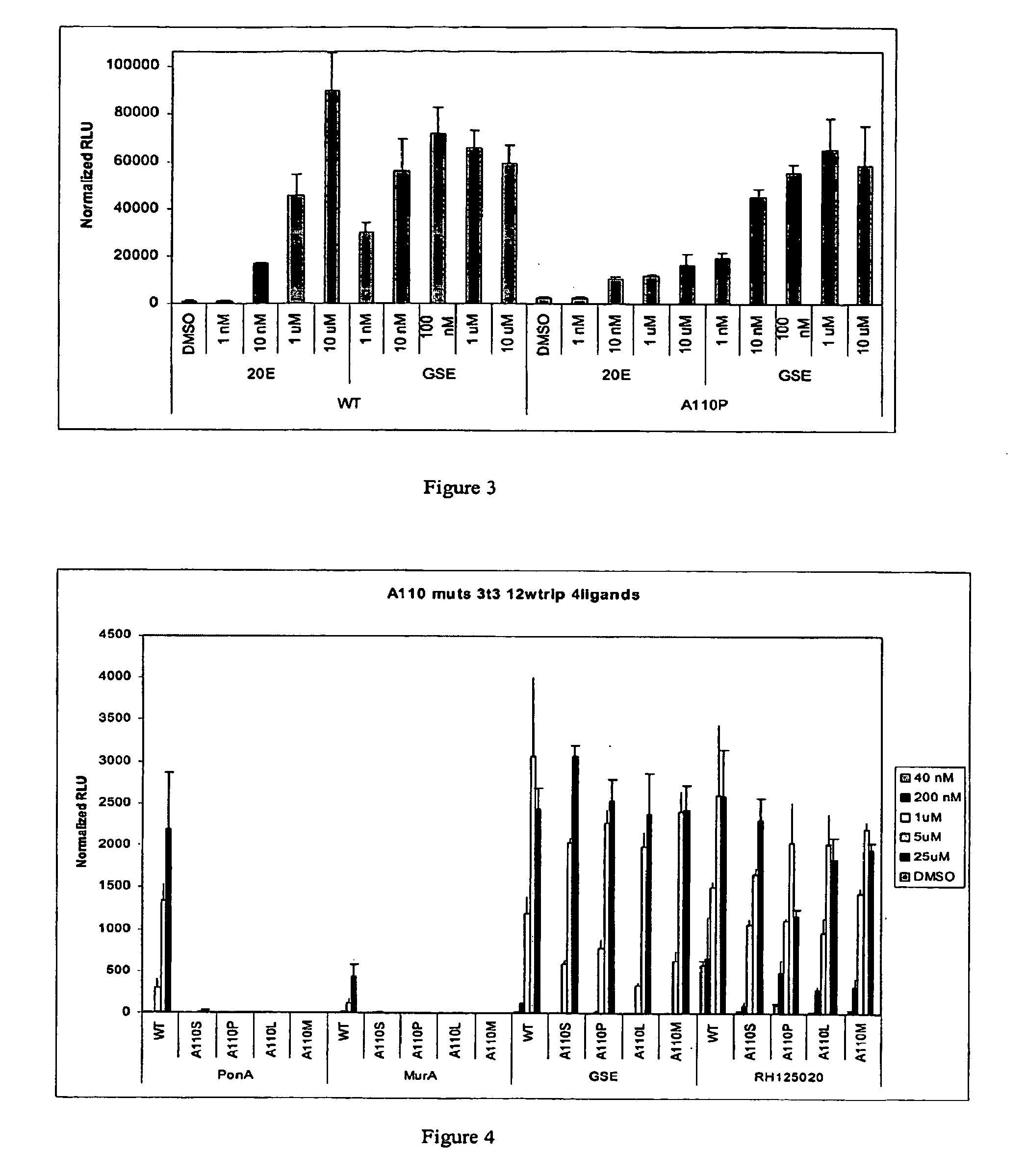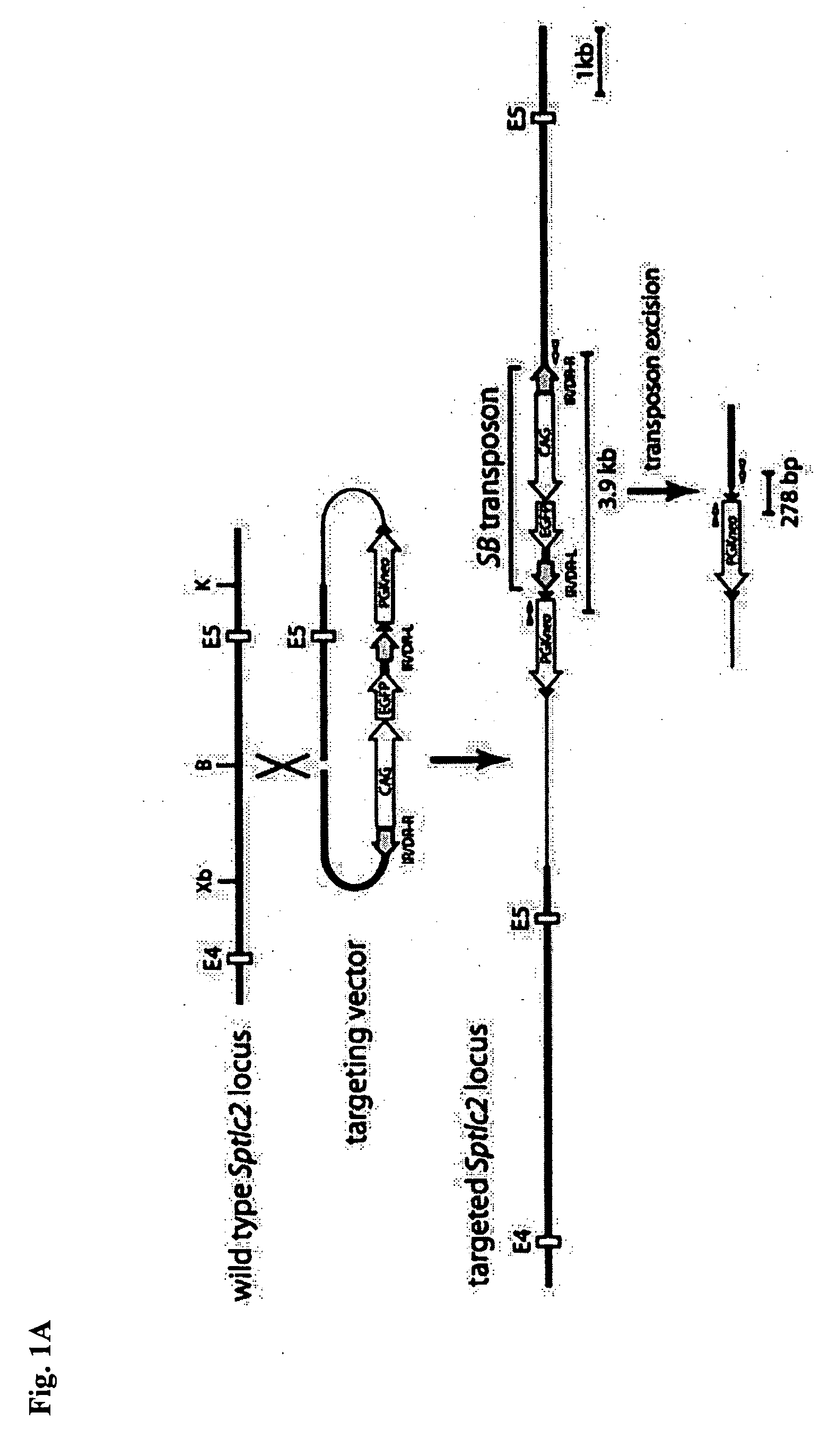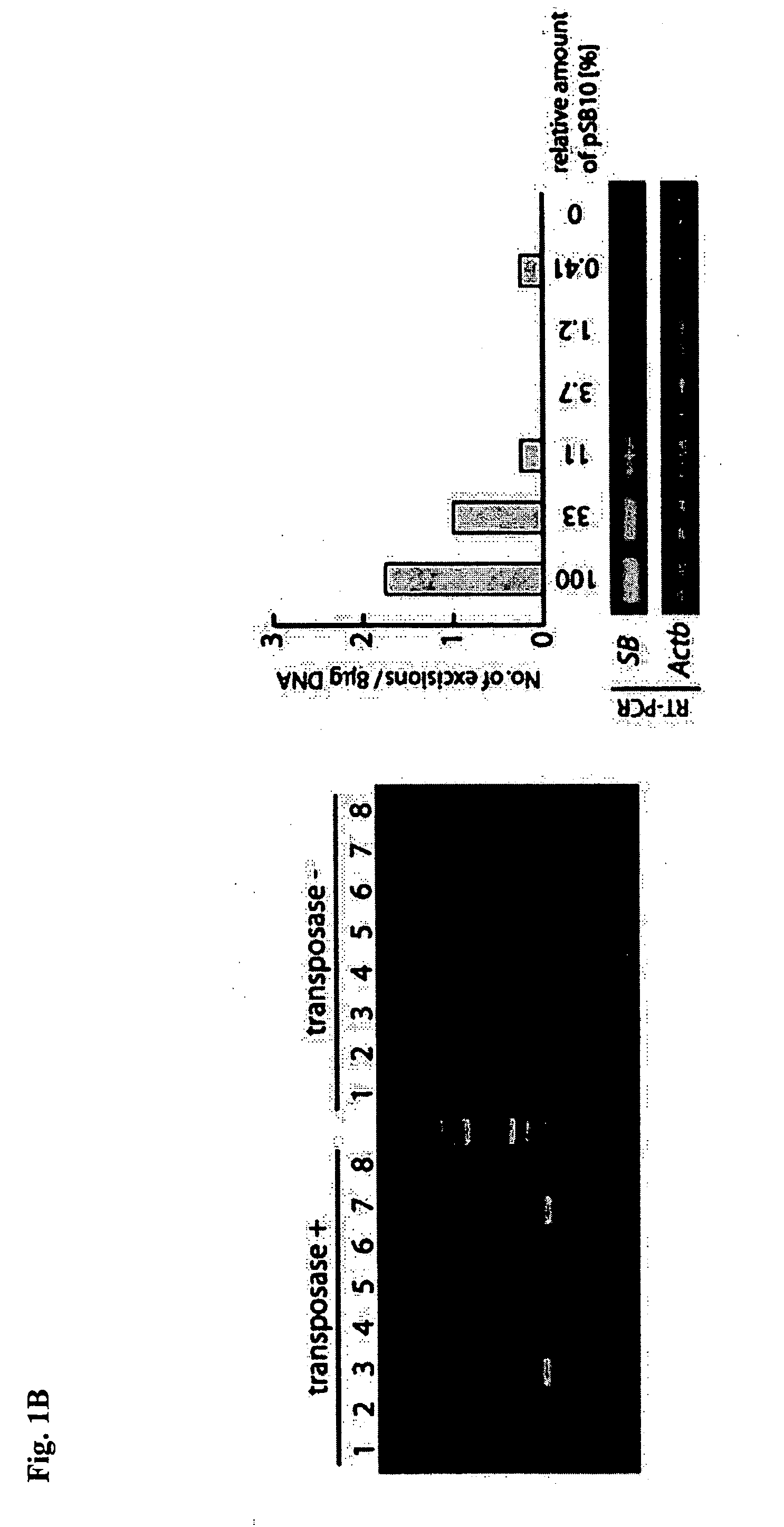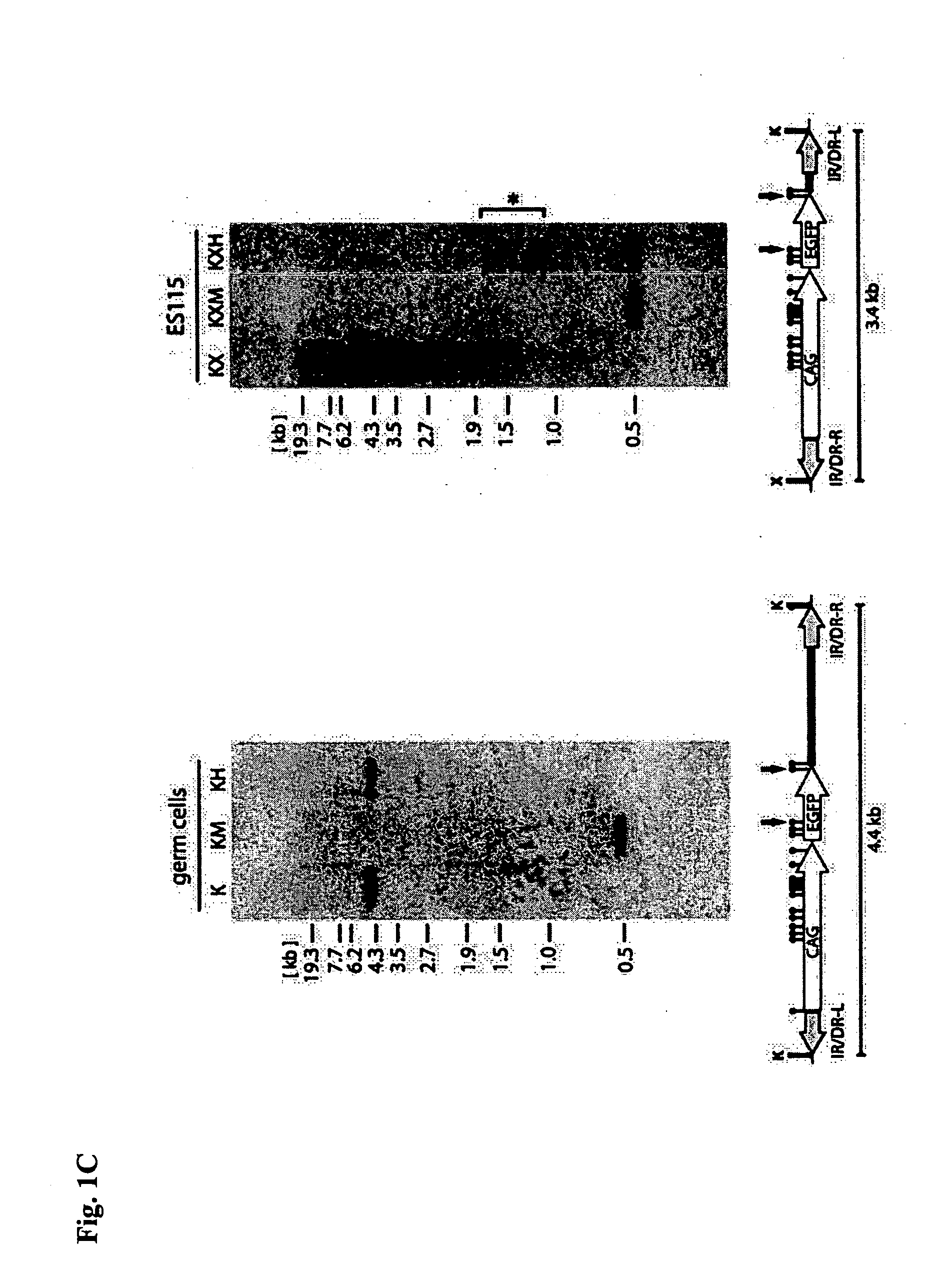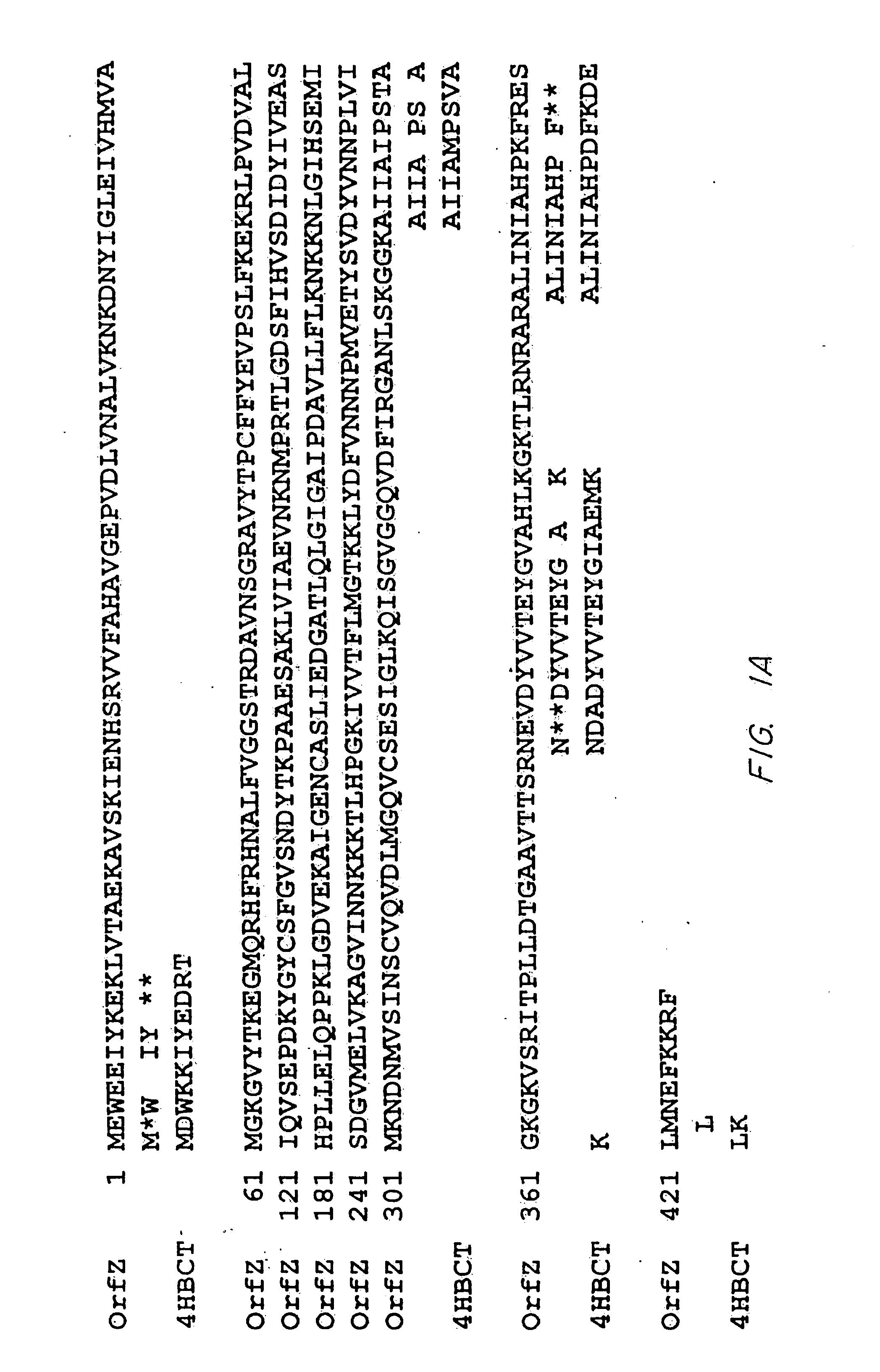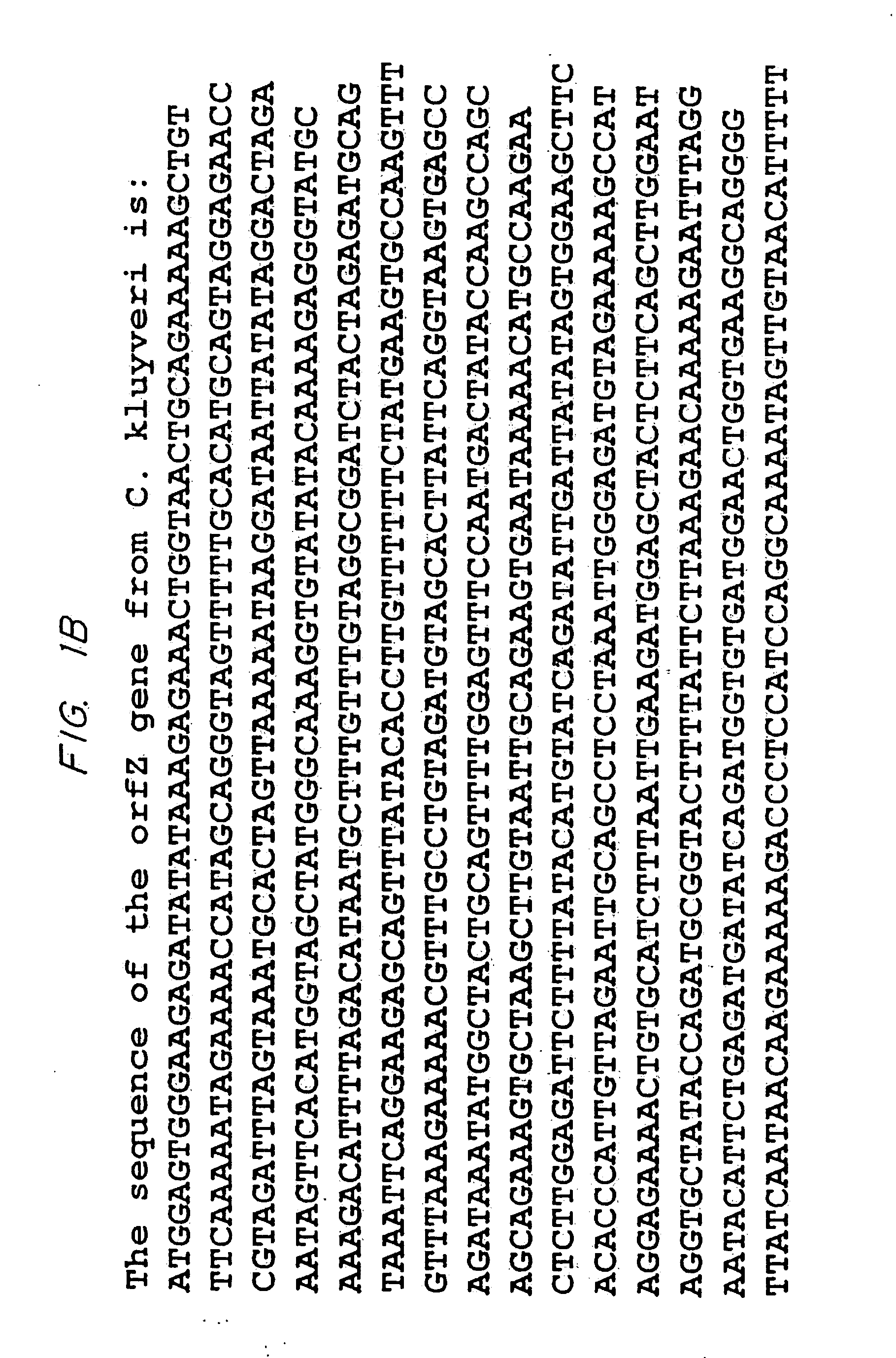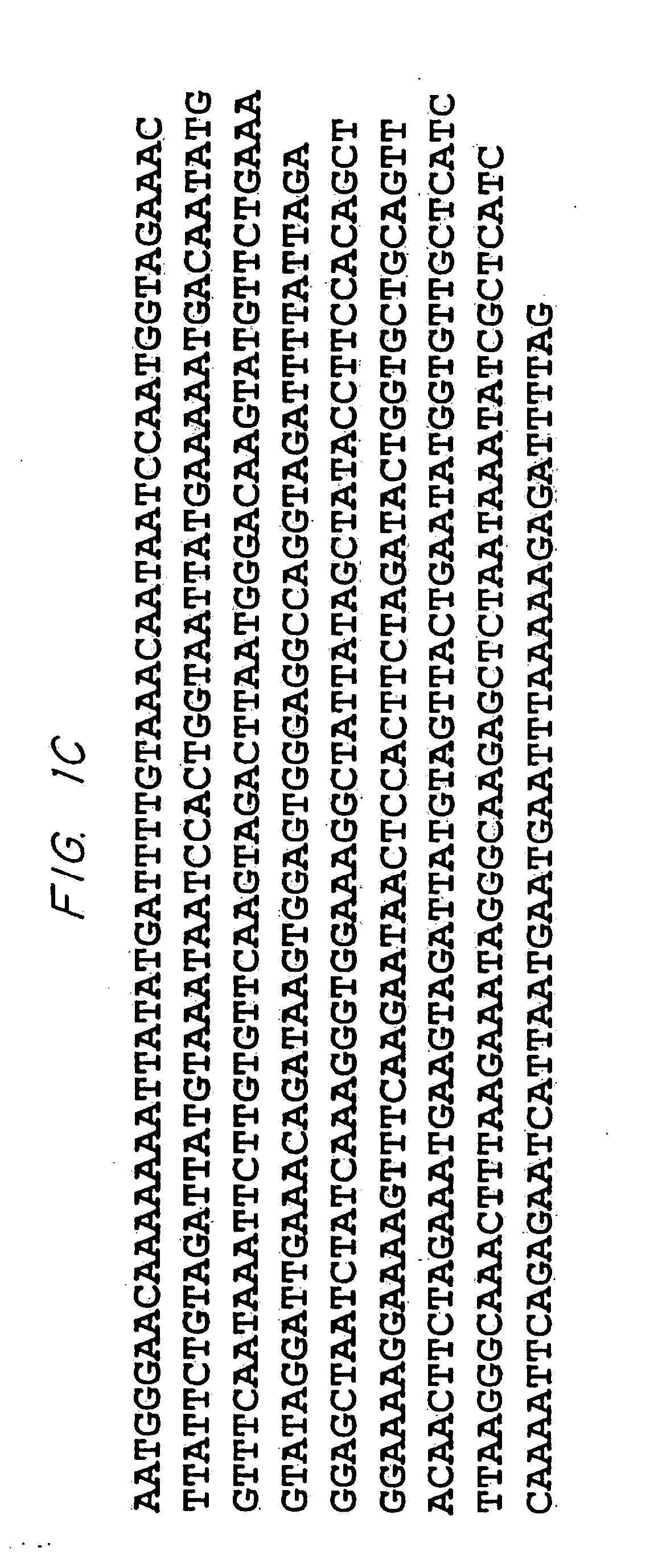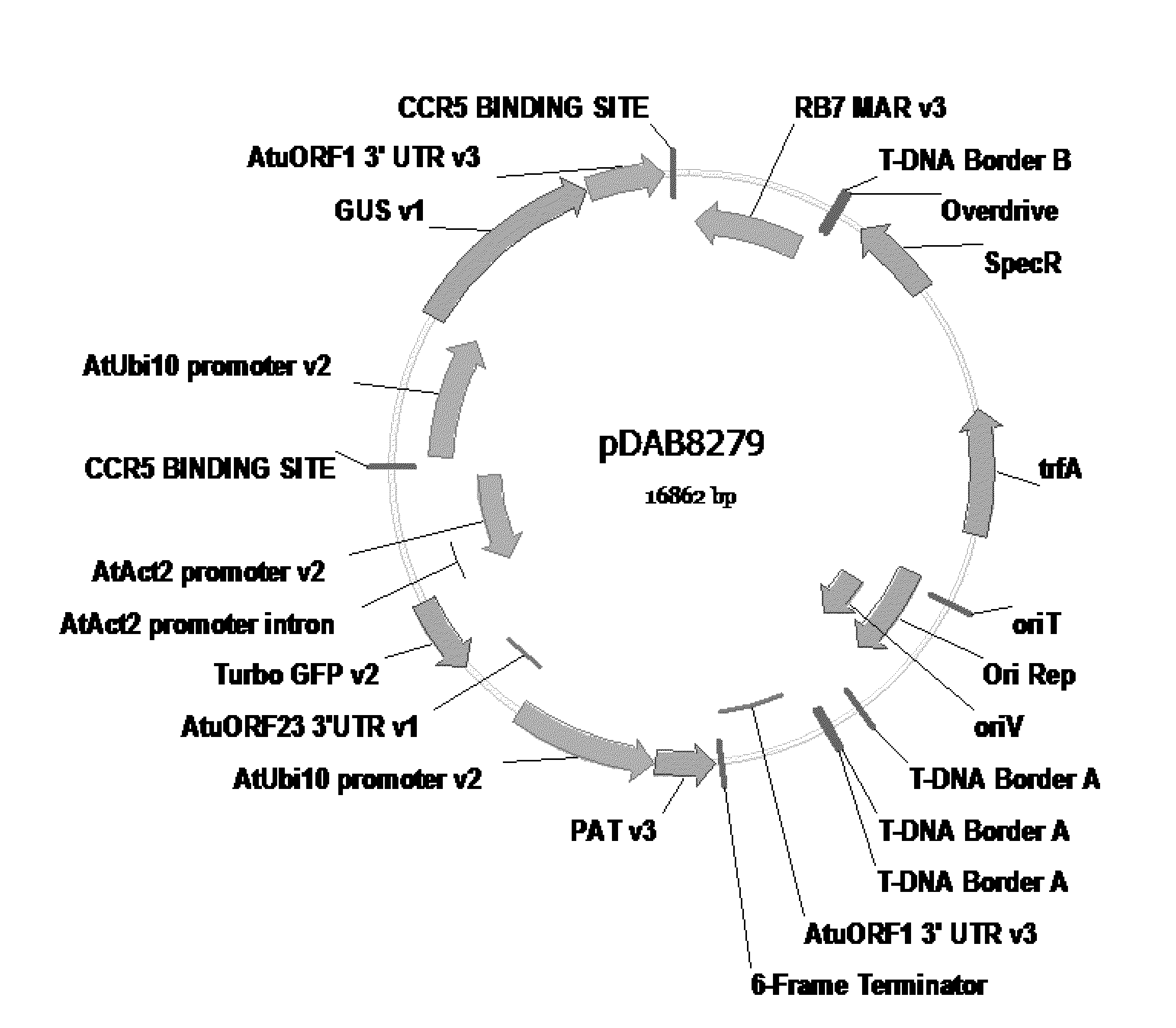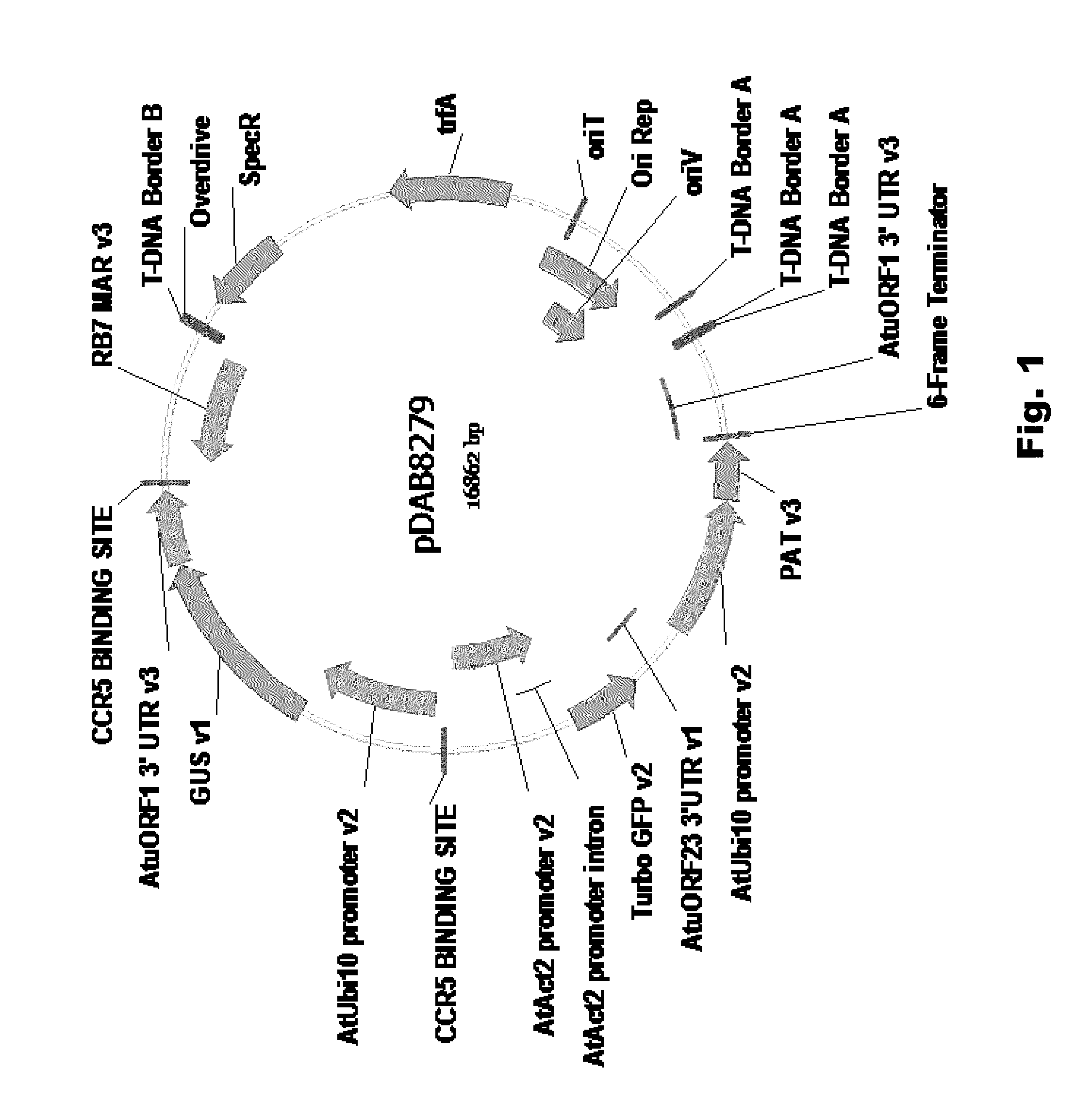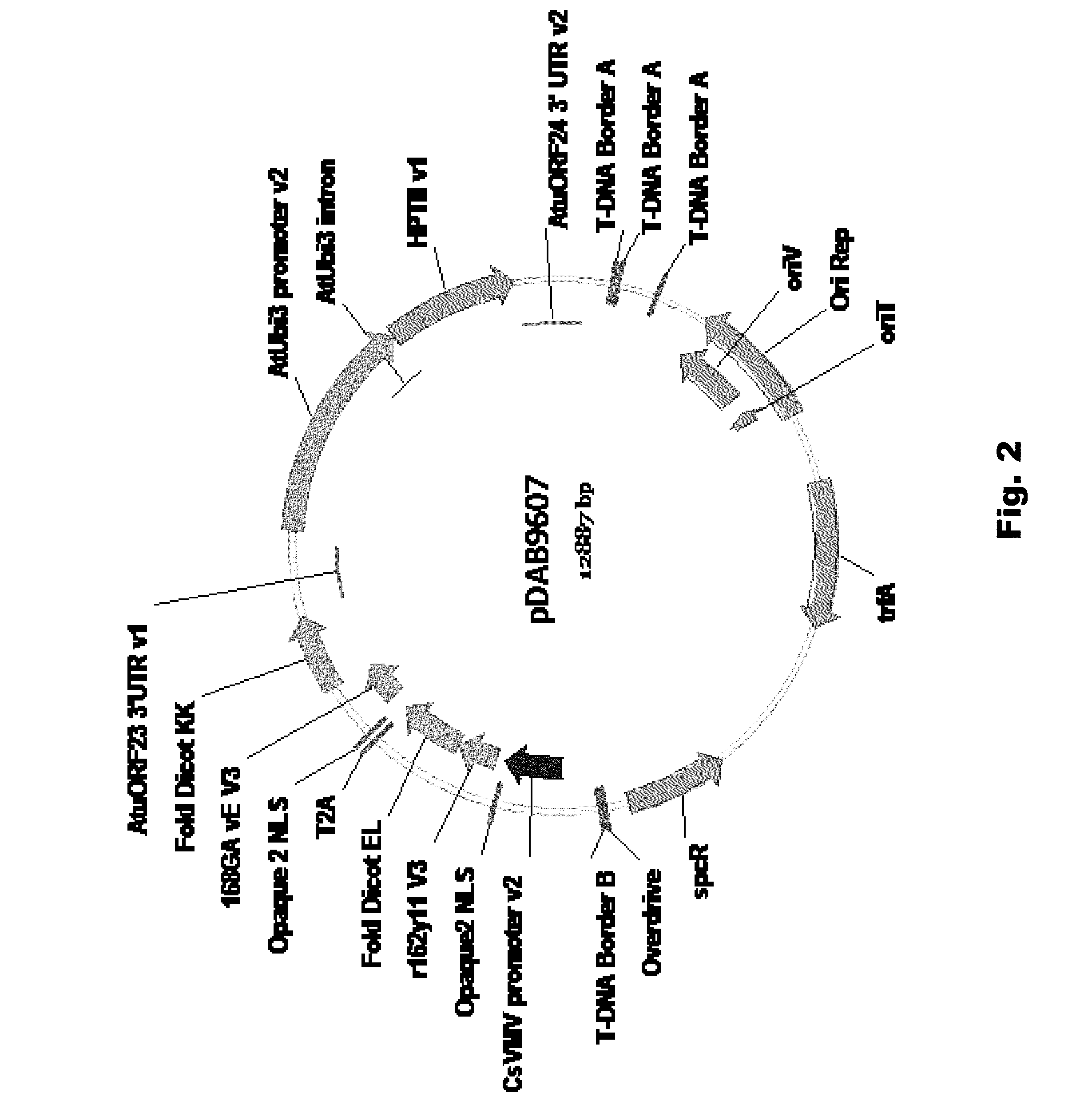Patents
Literature
286 results about "Genetically modified organism" patented technology
Efficacy Topic
Property
Owner
Technical Advancement
Application Domain
Technology Topic
Technology Field Word
Patent Country/Region
Patent Type
Patent Status
Application Year
Inventor
A genetically modified organism (GMO) is any organism whose genetic material has been altered using genetic engineering techniques. The exact definition of a genetically modified organism and what constitutes genetic engineering varies, with the most common being an organism altered in a way that "does not occur naturally by mating and/or natural recombination". A wide variety of organisms have been genetically modified (GM), from animals to plants and microorganisms. Genes have been transferred within the same species, across species (creating transgenic organisms) and even across kingdoms. New genes can be introduced, or endogenous genes can be enhanced, altered or knocked out.
Promoter for regulating expression of foreign genes
InactiveUS7125978B1Regulate expressionSugar derivativesOther foreign material introduction processesOrganismFhit gene
The present invention relates to a promoter for regulating expression of foreign genes in transgenic organisms, which comprises a promoter having the identifying characteristics of a promoter having a sequence selected from the group consisting of sequences set forth in SEQ ID NOS:1 to 3 and functional fragments or derivatives thereof, wherein said promoter is adapted to be operationally located with respect to said foreign gene for expression of said gene.
Owner:MEDICAGO INC
PUFA polyketide synthase systems and uses thereof
The invention generally relates to polyunsaturated fatty acid (PUFA) polyketide synthase (PKS) systems, to homologues thereof, to isolated nucleic acid molecules and recombinant nucleic acid molecules encoding biologically active domains of such a PUFA PKS system, to genetically modified organisms comprising PUFA PKS systems, to methods of making and using such systems for the production of bioactive molecules of interest, and to novel methods for identifying new bacterial and non-bacterial microorganisms having such a PUFA PKS system.
Owner:DSM IP ASSETS BV
Novel substitution mutant receptors and their use in an nuclear receptor-based inducible gene expression system
This invention relates to the field of biotechnology or genetic engineering. Specifically, this invention relates to the field of gene expression. More specifically, this invention relates to novel substitution mutant receptors and their use in a Group H nuclear receptor-based inducible gene expression system and methods of modulating the expression of a gene in a host cell for applications such as gene therapy, large scale production of proteins and antibodies, cell-based high throughput screening assays, functional genomics and regulation of traits in transgenic organisms.
Owner:PRECIGEN INC
Transgenic organism
InactiveUS20090007284A1Efficient productionEfficiency advantageAnimal cellsVectorsNucleotide sequencingPolynucleotide
A method of producing a transgenic cell comprising introducing into a cell a non-primate lentiviral expression vector comprising a nucleotide of interest (NOI). Also described is a method of producing a transgenic cell comprising introducing into a cell a lentiviral expression vector comprising a NOI capable of generating an antisense oligonucleotide, a ribozyme, an siRNA, a short hairpin RNA, a micro-RNA or a group 1 intron. Also described is a viral vector comprising a first nucleotide sequence, wherein said first nucleotide sequence comprises: (a) a second nucleotide sequence comprising an aptazyme; and (b) a third nucleotide sequence capable of generating a polynucleotide; wherein (a) and (b) are operably linked and wherein the aptazyme is activatable to cleave a transcript of the first nucleotide sequence such that said polynucleotide is generated.
Owner:RADCLIFFE PHILIPPA +2
Mutant receptors and their use in a nuclear receptor-based inducible gene expression system
InactiveUS20050266457A1Improve efficiencyGreat degree of sequence similarityBiocideBacteriaHigh-Throughput Screening AssaysGenomics
This invention relates to the field of biotechnology or genetic engineering. Specifically, this invention relates to the field of gene expression. More specifically, this invention relates to novel substitution mutant receptors and their use in a nuclear receptor-based inducible gene expression system and methods of modulating the expression of a gene in a host cell for applications such as gene therapy, large scale production of proteins and antibodies, cell-based high throughput screening assays, functional genomics and regulation of traits in transgenic organisms.
Owner:PRECIGEN INC
System, apparatus and method for marking and tracking bulk flowable material
InactiveUS20010029996A1Seed and root treatmentSausage casingsComputer scienceGenetically modified organism
A method and apparatus are disclosed for identifying a characteristic of a bulk flowable material. An identification marker is inserted into a bulk flowable material. The identification marker carries information identifying a specified property or properties of the material. A marker dispenser can be located at one or more handling sites of the bulk flowable material. The identification markers can be pre-prepared or property-related information can be added to the marker prior to or subsequent to dispensing. The identification markers can be paper-like labels, for example, or more complex devices. The system can be used to track the lifespan of a material or to indicate a property of the material to others, such as whether the material is a genetically modified organism (GMO). A pre-printed marker source containing a single continuous bar code is also disclosed.
Owner:ROBINSON MARTIN C
Novel elongase gene and method for producing multiple-unsaturated fatty acids
InactiveUS20040111763A1Improve efficiencyIncrease productionCosmetic preparationsOrganic active ingredientsElongaseTriacylglycerol VLDL
The invention relates to a novel elongase gene with the sequences stated in sequence SEQ ID NO:1, SEQ ID NO: 3, SEQ ID NO: 5 and SEQ ID NO: 7 or their homologs, derivatives or analogs, to a gene construct comprising this gene or its homologs, derivatives and analogs, and to its use. The invention also relates to vectors or transgenic organisms comprising an elongase gene with the sequence SEQ ID NO:1, SEQ ID NO: 3, SEQ ID NO: 5 and SEQ ID NO: 7 or its homologs, derivatives and analogs. The invention furthermore relates to the use of the elongase gene sequences alone or in combination with further elongases and / or further fatty acid biosynthesis genes. The present invention relates to a novel elongase gene with the sequence SEQ ID NO:1 or its homologs, derivatives and analogs. Furthermore, the invention relates to a process for the preparation of polyunsaturated fatty acids and to a process for introducing DNA into organisms which produce large amounts of oils and, in particular, oils with a high content of unsaturated fatty acids. Moreover, the invention relates to an oil and / or a fatty acid preparation with a higher content of polyunsaturated fatty acids with at least two double bonds and / or a triacylglycerol preparation with a higher content of polyunsaturated fatty acids with at least two double bonds.
Owner:BASF AG
Pufa polyketide synthase systems and uses thereof
The invention generally relates to polyunsaturated fatty acid (PUFA) polyketide synthase (PKS) systems, to homologues thereof, to isolated nucleic acid molecules and recombinant nucleic acid molecules encoding biologically active domains of such a PUFA PKS system, to genetically modified organisms comprising PUFA PKS systems, to methods of making and using such systems for the production of bioactive molecules of interest, and to novel methods for identifying new bacterial and non-bacterial microorganisms having such a PUFA PKS system.
Owner:DSM IP ASSETS BV
Pufa polyketide synthase systems and uses thereof
The invention generally relates to polyunsaturated fatty acid (PUFA) polyketide synthase (PKS) systems, to homologues thereof, to isolated nucleic acid molecules and recombinant nucleic acid molecules encoding biologically active domains of such a PUFA PKS system, to genetically modified organisms comprising PUFA PKS systems, to methods of making and using such systems for the production of bioactive molecules of interest, and to novel methods for identifying new bacterial and non-bacterial microorganisms having such a PUFA PKS system.
Owner:DSM IP ASSETS BV
Pufa polyketide synthase systems and uses thereof
The invention generally relates to polyunsaturated fatty acid (PUFA) polyketide synthase (PKS) systems, to homologues thereof, to isolated nucleic acid molecules and recombinant nucleic acid molecules encoding biologically active domains of such a PUFA PKS system, to genetically modified organisms comprising PUFA PKS systems, to methods of making and using such systems for the production of bioactive molecules of interest, and to novel methods for identifying new bacterial and non-bacterial microorganisms having such a PUFA PKS system.
Owner:DSM IP ASSETS BV
Recombination systems and methods for eliminating nucleic acid sequences from the genome of eukaryotic organisms
The invention relates to recombination systems and methods for eliminating nucleic acid sequences from the chromosomal DNA of eukaryotic organisms, and to transgenic organisms—preferably plants—which comprise these systems or were generated using these methods.
Owner:SUNGENE +1
Biological systems for manufacture of polyhydroxyalkanoate polymers containing 4-hydroxyacids
The gene encoding a 4-hydroxybutyryl-CoA transferase has been isolated from bacteria and integrated into the genome of bacteria also expressing a polyhydroxyalkanoate synthase, to yield an improved production process for 4HB-containing polyhydroxyalkanoates using transgenic organisms, including both bacteria and plants. The new pathways provide means for producing 4HB containing PHAs from cheap carbon sources such as sugars and fatty acids, in high yields, which are stable. Useful strains are obtaining by screening strains having integrated into their genomes a gene encoding a 4HB-CoA transferase and / or PHA synthase, for polymer production. Processes for polymer production use recombinant systems that can utilize cheap substrates. Systems are provided which can utilize amino acid degradation pathways, α-ketoglutarate, or succinate as substrate.
Owner:CJ CHEILJEDANG CORP
Non-disruptive gene targeting
InactiveUS20130280222A1Easy to integrateBiocideFusion with DNA-binding domainDiseaseBiological studies
Compositions and methods are provided for integrating one or more genes of interest into cellular DNA without substantially disrupting the expression of the gene at the locus of integration, i.e., the target locus. These compositions and methods are useful in any in vitro or in vivo application in which it is desirable to express a gene of interest in the same spatially and temporally restricted pattern as that of a gene at a target locus while maintaining the expression of the gene at the target locus, for example, to treat disease, in the production of genetically modified organisms in agriculture, in the large scale production of proteins by cells for therapeutic, diagnostic, or research purposes, in the induction of iPS cells for therapeutic, diagnostic, or research purposes, in biological research, etc. Reagents, devices and kits thereof that find use in practicing the subject methods are also provided.
Owner:THE BOARD OF TRUSTEES OF THE LELAND STANFORD JUNIOR UNIV +1
Methods and compositions for transposition using minimal segments of the eukaryotic transformation vector Piggybac
InactiveUS7105343B1Inserting DNA molecules into cells is enhancedEasy to insertSugar derivativesStable introduction of DNATransformation cellGene transfer
The present invention provides efficient transfer of genes into host cells or embryos to transform the cells or embryos by transposition vectors using the minimal amount of nucleotide sequences in the transposon piggyBac required for gene transfer. The transformed cells or embryos may also be developed into transgenic organisms.
Owner:UNIV OF NOTRE DAME DU LAC
Novel elongase gene, and process for the preparation of polyunsaturated fatty acids
InactiveUS20080160054A1Improve efficiencyIncrease productionOrganic active ingredientsFatty acid chemical modificationBiotechnologyFatty acid biosynthesis
The invention relates to a novel elongase gene with the sequences stated in sequence SEQ ID NO:1, SEQ ID NO: 3, SEQ ID NO: 5 and SEQ ID NO: 7 or their homologs, derivatives or analogs, to a gene construct comprising this gene or its homologs, derivatives and analogs, and to its use. The invention also relates to vectors or transgenic organisms comprising an elongase gene with the sequence SEQ ID NO:1, SEQ ID NO: 3, SEQ ID NO: 5 and SEQ ID NO: 7 or its homologs, derivatives and analogs. The invention furthermore relates to the use of the elongase gene sequences alone or in combination with further elongases and / or further fatty acid biosynthesis genes. The present invention relates to a novel elongase gene with the sequence SEQ ID NO:1 or its homologs, derivatives and analogs.Furthermore, the invention relates to a process for the preparation of polyunsaturated fatty acids and to a process for introducing DNA into organisms which produce large amounts of oils and, in particular, oils with a high content of unsaturated fatty acids. Moreover, the invention relates to an oil and / or a fatty acid preparation with a higher content of polyunsaturated fatty acids with at least two double bonds and / or a triacylglycerol preparation with a higher content of polyunsaturated fatty acids with at least two double bonds.
Owner:BASF AG
Method for the production of polyunsaturated fatty acids
The present invention relates to a process for producing polyunsaturated fatty acids in an organism by introducing nucleic acids into the organism which code for polypeptides having acyl-CoA:lysophospholipid a cyltransferase activity. Advantageously, these nucleic acid sequences may, if appropriate together with further nucleic acid sequences coding for biosynthesis polypeptides of the fatty acid or lipid metabolism, be expressed in the transgenic organism. The invention furthermore relates to the nucleic acid sequences, to nucleic acid constructs comprising the nucleic acid sequences of the invention, to vectors comprising the nucleic acid sequences and / or the nucleic acid constructs and to transgenic organisms comprising the abovementioned nucleic acid sequences, nucleic acid constructs and / or vectors. A further part of the invention relates to oils, lipids and / or fatty acids produced by the process of the invention and to their use.
Owner:BASF PLANT SCI
Acyl-acp thioesterase genes and uses therefor
InactiveUS20110020883A1High activityIncrease volumeSugar derivativesHydrolasesBiotechnologyMicroorganism
The present invention provides novel genes encoding Class II acyl-ACP thioesterases and variants thereof that are active on C8, C10, C12, C14, C16, and C18 acyl-ACP substrates. The thioesterases can be introduced into transgenic organisms, including microorganisms and photosynthetic organisms, for producing fatty acids and fatty acid products.
Owner:SYNTHETIC GENOMICS INC
PUFA polyketide synthase systems and uses thereof
Owner:DSM IP ASSETS BV
Pufa polyketide synthase systems and uses thereof
The invention generally relates to polyunsaturated fatty acid (PUFA) polyketide synthase (PKS) systems isolated from or derived from non-bacterial organisms, to homologues thereof, to isolated nucleic acid molecules and recombinant nucleic acid molecules encoding biologically active domains of such a PUFA PKS system, to genetically modified organisms comprising PUFA PKS systems, to methods of making and using such systems for the production of bioactive molecules of interest, and to novel methods for identifying new bacterial and non-bacterial microorganisms having such a PUFA PKS system.
Owner:DSM IP ASSETS BV
Methods of combined bioprocessing and related microorganisms, thermophilic and/or acidophilic enzymes, and nucleic acids encoding said enzymes
A genetically modified organism comprising: at least one nucleic acid sequence and / or at least one recombinant nucleic acid isolated from Alicyclobacillus acidocaldarius and encoding a polypeptide involved in at least partially degrading, cleaving, transporting, metabolizing, or removing polysaccharides, cellulose, lignocellulose, hemicellulose, lignin, starch, sugars, sugar oligomers, carbohydrates, complex carbohydrates, chitin, heteroxylans, glycosides, xylan-, glucan-, galactan, or mannan-decorating groups; and at least one nucleic acid sequence and / or at least one recombinant nucleic acid encoding a polypeptide involved in fermenting sugar molecules to a product. Additionally, enzymatic and / or proteinaceous extracts may be isolated from one or more genetically modified organisms. The extracts are utilized to convert biomass into a product. Further provided are methods of converting biomass into products comprising: placing the genetically modified organism and / or enzymatic extracts thereof in fluid contact with polysaccharides, cellulose, lignocellulose, hemicellulose, lignin, starch, sugars, sugar oligomers, carbohydrates, complex carbohydrates, chitin, heteroxylans, glycosides, and / or xylan-, glucan-, galactan, or mannan-decorating groups.
Owner:BATTELLE ENERGY ALLIANCE LLC
Method for producing arachidonic acid in transgenic organisms
InactiveUS20050089879A1Increase contentSugar derivativesMicrobiological testing/measurementPlant cellA-DNA
The invention relates to a method for the production of arachidonic acid in transgenic organisms, especially in transgenic plants and yeasts. The invention also relates to DNA sequences coding for a protein with enzymatic activity of a Δ5-desaturase from Phytophthera megasperma. The invention further relates to transgenic plants and plant cell and transgenic yeasts containing a nucleic acid molecule comprising a DNA sequence according to the present invention and having, on the basis thereof, an enhanced arachidonic acid synthesis in comparison with wild-type cells. The invention also relates to harvest products and propagating material of transgenic plants.
Owner:INST FUR PFLANZENGENETIK & KULTURPFLANZENFORSCHUNG
Chimeric retinoid x receptors and their use in a novel ecdysone receptor-based inducible gene expression system
InactiveUS20080263687A1FungiFusion with DNA-binding domainHigh-Throughput Screening AssaysBiotechnology
This invention relates to the field of biotechnology or genetic engineering. Specifically, this invention relates to the field of gene expression. More specifically, this invention relates to a novel ecdysone receptor / chimeric retinoid X receptor-based inducible gene expression system and methods of modulating gene expression in a host cell for applications such as gene therapy, large-scale production of proteins and antibodies, cell-based high throughput screening assays, functional genomics and regulation of traits in transgenic organisms.
Owner:RHEOGENE INC DE
PUFA polyketide synthase systems and uses thereof
The invention generally relates to polyunsaturated fatty acid (PUFA) polyketide synthase (PKS) systems isolated from or derived from non-bacterial organisms, to homologues thereof, to isolated nucleic acid molecules and recombinant nucleic acid molecules encoding biologically active domains of such a PUFA PKS system, to genetically modified organisms comprising PUFA PKS systems, to methods of making and using such systems for the production of bioactive molecules of interest, and to novel methods for identifying new bacterial and non-bacterial microorganisms having such a PUFA PKS system.
Owner:DSM IP ASSETS BV
Mutant receptors and their use in a nuclear receptor-based inducible gene expression system
ActiveUS20080145935A1Improve efficiencyGreat degree of sequence similarityPeptide/protein ingredientsTissue cultureHigh-Throughput Screening AssaysGenomics
This invention relates to the field of biotechnology or genetic engineering. Specifically, this invention relates to the field of gene expression. More specifically, this invention relates to novel substitution mutant receptors and their use in a nuclear receptor-based inducible gene expression system and methods of modulating the expression of a gene in a host cell for applications such as gene therapy, large scale production of proteins and antibodies, cell-based high throughput screening assays, functional genomics and regulation of traits in transgenic organisms.
Owner:PRECIGEN INC
Chimeric retinoid x receptors and their use in a novel ecdysone receptor-based inducible gene expression system
This invention relates to the field of biotechnology or genetic engineering. Specifically, this invention relates to the field of gene expression. More specifically, this invention relates to a novel ecdysone receptor / chimeric retinoid X receptor-based inducible gene expression system and methods of modulating gene expression in a host cell for applications such as gene therapy, large-scale production of proteins and antibodies, cell-based high throughput screening assays, functional genomics and regulation of traits in transgenic organisms.
Owner:RHEOGENE INC DE
Novel ecdysone receptor/invertebrate retinoid X receptor-based inducible gene expression system
This invention relates to the field of biotechnology or genetic engineering. Specifically, this invention relates to the field of gene expression. More specifically, this invention relates to a novel ecdysone receptor / invertebrate retinoid X receptor-based inducible gene expression system and methods of modulating gene expression in a host cell for applications such as gene therapy, large-scale production of proteins and antibodies, cell-based high throughput screening assays, functional genomics and regulation of traits in transgenic organisms.
Owner:PRECIGEN INC
Novel substitution mutant receptors and their use in a nuclear receptor-based inducible gene expression system
This invention relates to the field of biotechnology or genetic engineering. Specifically, this invention relates to the field of gene expression. More specifically, this invention relates to novel substitution mutant receptors and their use in a Group H nuclear receptor-based inducible gene expression system and methods of modulating the expression of a gene in a host cell for applications such as gene therapy, large scale production of proteins and antibodies, cell-based high throughput screening assays, functional genomics and regulation of traits in transgenic organisms.
Owner:RHEOGENE INC DE
Method of preparing transgenic organism with use of methylation and system therefor
InactiveUS20070022485A1Improve conversion efficiencyEfficient productionAnimal cellsHydrolasesGene conversionOrganism
A technique for efficiently introducing a foreign gene into cells with the use of transposons. In particular, a technique for efficiently preparing a transgenic organism with the use of a transposon having its transposition activity strikingly enhanced through methylation of a sequence containing the transposon. The methylation is retained even after incorporation in a genome, and now can be utilized in actual gene incorporation in a genome. This technique can realize strikingly efficient gene transformation as compared with the a method of preparing a transgenic organism with the use of conventional transposons.
Owner:JAPAN SCI & TECH CORP
Biological systems for manufacture of polyhydroxyalkanoate polymers containing 4-hydroxyacids
InactiveUS20060084155A1Increase productionHigh activitySugar derivativesBacteriaBiotechnologyDegradation pathway
The gene encoding a 4-hydroxybutyryl-Co A transferase has been isolated from bacteria and integrated into the genome of bacteria also expressing a polyhydroxyalkanoate synthase, to yield an improved production process for 4HB-containing polyhydroxyalkanoates using transgenic organisms, including both bacteria and plants. The new pathways provide means for producing 4HB containing PHAs from cheap carbon sources such as sugars and fatty acids, in high yields, which are stable. Useful strains are obtaining by screening strains having integrated into their genomes a gene encoding a 4HB-CoA transferase and / or PHA synthase, for polymer production. Processes for polymer production use recombinant systems that can utilize cheap substrates. Systems are provided which can utilize amino acid degradation pathways, α-ketoglutarate, or succinate as substrate.
Owner:CJ CHEILJEDANG CORP
Excision of transgenes in genetically modified organisms
Owner:CORTEVA AGRISCIENCE LLC
Features
- R&D
- Intellectual Property
- Life Sciences
- Materials
- Tech Scout
Why Patsnap Eureka
- Unparalleled Data Quality
- Higher Quality Content
- 60% Fewer Hallucinations
Social media
Patsnap Eureka Blog
Learn More Browse by: Latest US Patents, China's latest patents, Technical Efficacy Thesaurus, Application Domain, Technology Topic, Popular Technical Reports.
© 2025 PatSnap. All rights reserved.Legal|Privacy policy|Modern Slavery Act Transparency Statement|Sitemap|About US| Contact US: help@patsnap.com
